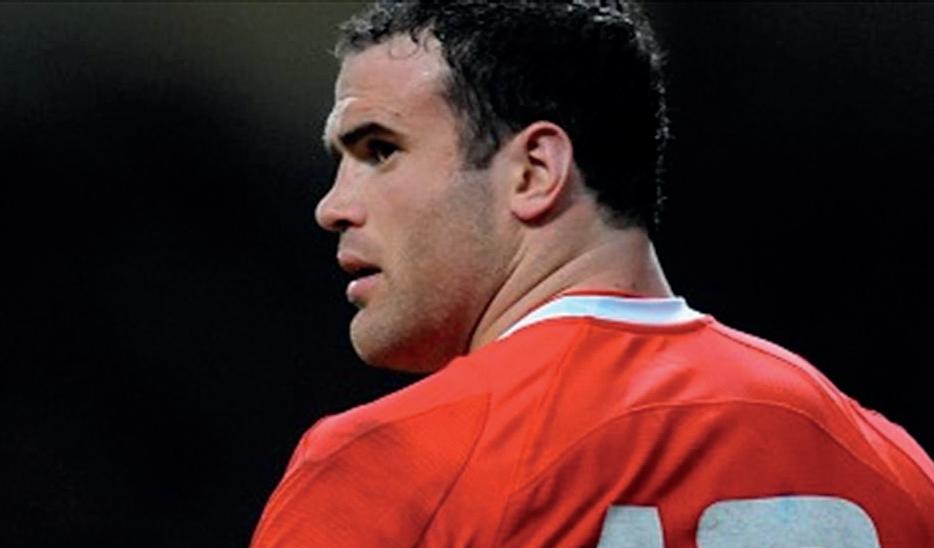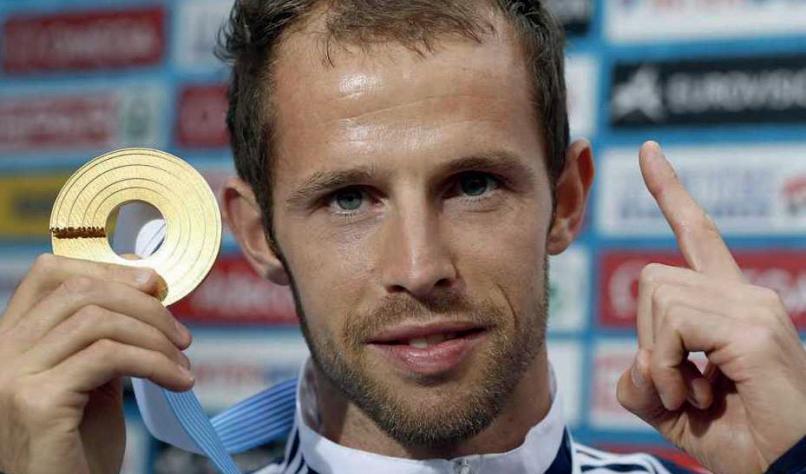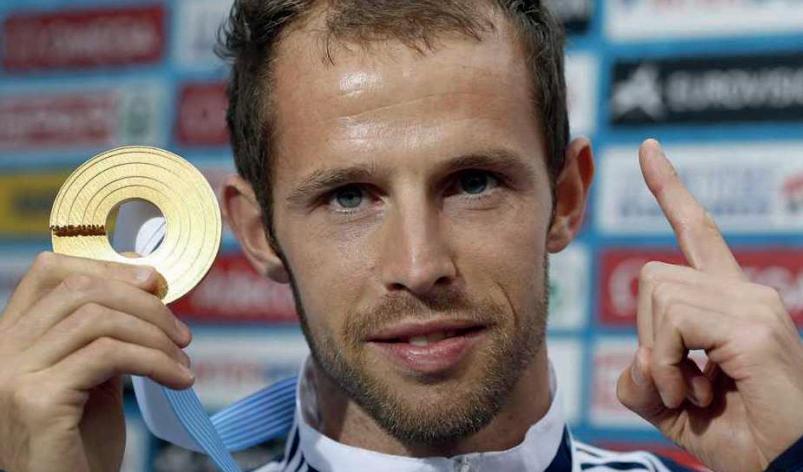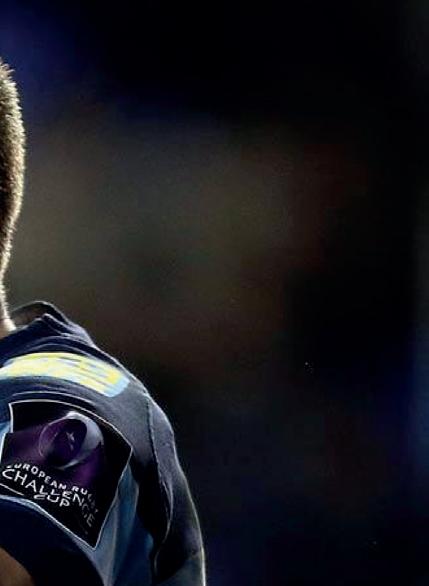gair rhydd



In this week’s issue: What you missed during the Christmas recess, an interview with Plaid’s Cardiff Central candidate, diversity at the Oscars and the great Sun page 3 switcheroo







In this week’s issue: What you missed during the Christmas recess, an interview with Plaid’s Cardiff Central candidate, diversity at the Oscars and the great Sun page 3 switcheroo



Cardiff University claims to have “broken into the golden triangle” of Britain’s leading research universities on the back of its results in the national Research Excellence Framework (REF) rankings.
e institution placed fifth overall in the UK in terms of quality and impact – and sixth in terms of the percentage of its research (40.5%) categorised as world-leading.
However, closer investigation has revealed that the precise scale of the university’s achievement is open to debate.
Cardiff University submitted units




for just 738 of its 1,182 academic staff, meaning that only 62% of eligible research was sent for assessment.
is means that the institution submitted 292 fewer works than at the last assessment in 2008, coinciding with a rise from twenty-second to fifth in the overall rankings. is is the lowest submission rate of any institution ranked in the top forty. It pales in comparison to the mean 87% submission rate achieved by the nine other institutions in the top ten UK universities. is top ten is based on the highest proportions of 4*

(world-leading) rated research excluding institutions with fewer than three departments submitted.
e figure has provoked concerns that the sample submitted by Cardiff is not wholly representative of its research portfolio.
According to the Times Higher Education, Cardiff University falls from sixth place to 50th when the GPA is multiplied by the fraction of eligible staff submitted. is fraction is calculated by dividing the actual number of staff submitted by the number eligible to be submitted.
e contentious outcome of the £60m REF assessment led the academic community to issue a spate of self-congratulatory messages on social networks and in press releases this month.
87% of Cardiff University’s submitted research was categorised in the upper two tiers of star rated research – a figure bettered only by the London School of Economics, Oxford, Cambridge and Imperial College London. is figure compares favourably with the UK average of 76% world class research.

Continued on page 4


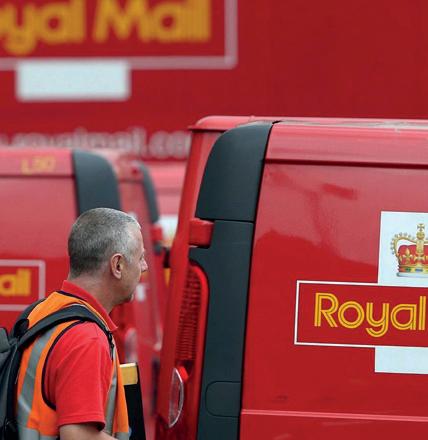





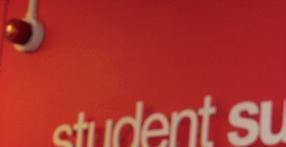

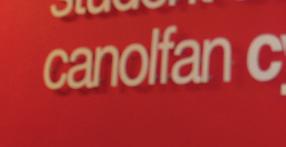









EDITOR
Michael O’Connell-Davidson
DEPUTY
EDITOR
Georgia Hamer
GAIR
RHYDD CO-ORDINATOR
Elaine Morgan
NEWS
Georgia Hamer
Katie Evans
Alexander Norton
Anna Lewis
ADVICE
Kirsty Fardell
COMMENT
Anne Porter
Olivier van den Bent-Kelly
COLUMNIST
Jason Roberts
POLITICS
Carwyn Williams
Lauren Boyd
Rhiannon Tapp
SCIENCE
Shanna Hamilton
Meryon Roderick
SOCIETIES
Hannah Sterritt
PARK LIFE
Tim Nagle
TAF-OD
Steffan Bryn Jones
Morgan Owen
SPORT
David Hooson
Rory Benson
Joe Atkinson
PRODUCTION
EDITOR
Sum Sze Tam
DIGITAL EDITORS
Jordan Adams
Gregory McChesney
Want to join the team?
Editorial conferences are each monday at 5PM. Proofreading takes place on Thursdays at 6PM in the media office during print weeks.
Write us a letter letters@gairrhydd.com Tweet us: @gairrhydd Online at: gairrhydd.com
I’m not so sure
At Gair Rhydd we take seriously our responsibility to maintain the highest possible standards. Sometimes, because of deadline pressures, we may make some mistakes. If you believe we have fallen below the standards we seek to uphold, please email editor@gairrhydd.com. You can view our Ethical Policy Statement and Complaints Procedure at cardiffstudentmedia.co.uk/complaints
Opinions expressed in editorials are not reflective of Cardiff Students’ Union, who act as the publisher of Gair Rhydd in legal terms, and should not be considered official communications or the organisation’s stance. Gair Rhydd is a post office registered newspaper.
There are few things I could say that would add to the discussion surrounding Charlie Hebdo in any meaningful sense, and I say this as somebody who normally speaks without hesitation.
Instead, this issue’s editorial will try and grapple with some of the issues surrounding this trade that have been pushed into the spotlight following the tragedy in Paris.
It’s fallen upon many Editors and Reader’s Editors across the country to explain the way they’ve covered the Charlie Hebdo massacre and the surrounding events; whether or not they ran the cartoons that are alleged to have instigated the attacks, how they depicted imagery from the scene, and why, if at all, they printed the subsequent cover of the magazine.
We didn’t have to make these calls, so we don’t need to print any justifications. Gair Rhydd wasn’t going to print over this period, and, while our website is in the process of being refurbished, we lacked the online presence to make any serious coverage worthwhile.
But while we have nothing to justify, we have a responsibility to acknowledge the tragedy in Paris and talk about what it means to us as journalists. Whenever someone in this trade is killed, it sends shockwaves through newsrooms; I was privileged (if privileged is a tasteful word) to be sat in a Guardian editorial meeting the morning after James Foley was murdered by the so-called ‘Beatle’ Jihadi John. Few, if any, of those in the room met Foley. But everybody understood the risks that people who go to warzones such as Syria engage in, and everybody understood how essential their work is and continues to be.
Compared to the length of time in a single night, I have had a great deal of time to process the events surrounding the massacre in Paris. We had a discussion, internally, over the holidays; some shared their discomfort surrounding the magazine’s content, which strayed away from what they thought was pro-
portional or tasteful. Others believed that some of those saying Je Suis Charlie had no right to be saying it at all, and I’d be inclined to agree.
Solidarity marches in Paris saw attendees like the President of Jordan and Turkey’s Premier Recep Erdogan, whose administration arrested a former Miss Turkey model who criticized the prime minister online. Those people are not Charlie; they may be in a position to acknowledge tragedy, and I’m sure they see the jihadist threat as clearly as anybody else, but their attendance devalues any message in service of free speech. They also have security forces who monitor their safety around the clock.
Equally, some newspapers written by or intended for students have said that they would not be scared away from reporting following the attacks in Paris. But in truth, I’m not sure that’s a meaningful statement -- not because freedom of speech is something to be taken for granted, or because there is no terrorist threat -- but because all too often these are publications which don’t take risks that would make them a target, or they are publications that support campaigns to restrict freedom of speech that their editorial team is uncomfortable with.
Even at Gair Rhydd, which is, I think, one of the most liberal student publications in the country, we play it very safe. It would make me deeply uncomfortable to try and absorb the tragedy in Paris as my own, when I am part of a team that is as cautious as it is appropriate to be. Yet I have seen publications which trade almost exclusively in top ten lists do just that. While the present day is one of the most difficult times to be a journalist that there has been throughout history, I am not entirely sure an individual exposes themselves to any danger by sharing the Top 10 Freshers’ Mistakes and other pieces along similar lines.
An overactive imagination is one of the most dan-
gerous things during the period of time that follows an attack like this. You see threats in every shadow, and enemies within every person you might be inclined to label as “the other”. But truth be told, I think the risk to those working on student papers (indeed, most national papers) is minimal, and essentially equivalent to the net risk somebody on the street might experience. There were no significant risks shouldered by those whose lives were taken during 7/7, neither was there a significant risk shouldered by shoppers at the Parisian Kosher supermarket that was attacked on the same day Charlie Hebdo was; I am no more one of them than I am Charlie or anybody else.
I empathise whenever anybody loses their life too soon, regardless of the reason. One member of the Gair Rhydd team condemned the cartoonists at the Charlie, describing the publication as broadly racist to the point of inciting hatred -- but we both agreed that what happened in Paris is a tragedy. Nobody deserves to lose their life before their time for any reason, whether it be in service of free speech or simply because somebody happens to be in the wrong place at the wrong time.
So it is, then, that I say this: I am not Charlie, and I’m not sure anybody here is. To say I that am, when I live a life that is relatively free of risk, is as absurd as me saying Je Suis Stephen Sotloff. I don’t stick my neck out the way some do, and while printing offensive comics shouldn’t be met with death, it’s not a trade I partake in, nor a trade I am in any way associated with.
The attacks in Paris weren’t just a tragedy, they were an intentionally constructed outrage. But I can’t share in the plight of those who risk their lives each day when I know for a fact that I don’t. It doesn’t only overstate my own importance -- it overstates the threat.
So, it’s 2015 -- new year, new you, and all that nonsense. I know a lot of you are entering your final semester, and I know that’s terrifying for all sorts of reasons. I live with some really lovely people who I met during the 2012 Freshers’ Week, and it’s hard to face up with the fact that after three years I won’t be living with them again after July. Equally, I know some people are possessed by the desire to be a Fresher forever -- a dream will come to an abrupt end when the exam season hits in a few months. Don’t worry, Freshers - you’ll prefer living in a house to halls, and that enough is to make you feel a little better about your grades actually having an impact on your degree.
I can’t help you subvert the flow of time and alleviate the heartbreak that
comes with finishing a year of university. What I can help you with is learning to ply the journalistic trade, and, as far as I’m concerned, there’s never been a better time to get involved with Gair Rhydd and do just that.
We’ve got about two thirds of this academic year’s issues left, which means there are plenty of opportunities to get writing and fatten your portfolio. We solicit contributions from people of all levels of ability, because if you were professional standard, there wouldn’t be a massive reason to get involved; with that in mind, we’d like to extend an invitation to anybody who’d like to learn new skills outside of their degree.
Varsity is set to be a massive event for us this year. I’ve been speaking to
In issue 1038, dated 24th November 2014, it was claimed that Cardiff student Nasser Muthana had applied and been accepted to Cardiff University. Despite a number of sources claiming the contrary, the University has disputed this claim, denying any relationship between the institution and Mr. Muthana. We are happy to reflect their standpoint, and have updated online copies of this article to do so.
Any readers with information about Nasser Muthana relating to his alleged relationship with Cardiff University are invited to contact the Gair Rhydd newsdesk at editor@gairrhydd.com
my sports team about organising a varsity pull-out, and devoting a whole eight pages in the centre of the paper to the Cardiff/Swansea face-off (maybe more, if Varsity Canoe Polo turns out to be the riot it sounds like). If that sounds exciting to you, you can get in touch with Gair Rhydd sports and pitch them ideas. It’s never too early to start planning, and Varsity isn’t all that far away. Remember, this year’s events kick off on the 22nd of April.
We’ve also been chatting about the Students’ Union elections in advance, and I think the reason a lot of the drama surrounding elections comes to pass is because Gair Rhydd has been very coy about reporting on things in previous years, leading people to seek out information from less scrupulous sources. Being passive or bland isn’t a way to get people engaged in the debates that need to happen when deciding the future of the Union, so we’ve been talking to the student voice team on and off about how we might go about covering election week without prejudicing the process. If you’ve got any ideas about this, or if you’re interested in helping us cover the event and you’re not planning on running for any positions, then get in touch with me at editor@gairrhydd.com, as the
whole event promises to be super exciting.
On the subject of elections, the General Election is on the way, and it’s hard to convey how important it is that you vote. Our General Election coverage is set to be some of the content we enter when national award season comes rolling around, and there’s little doubt in our mind that we’ll invest more effort in this than anything else. If you’re a politics keeno who can put their own views aside and get to the heart of why people are voting, we don’t just want you to get involved -- we need you to get involved. Politics isn’t about the view of any one individual, so the more voices and feet on the ground we have, the better our coverage is likely to be.
Even if the above events don’t pique your interest, we’ve got myriad issues between then and now where we’ll be covering all sorts of things, so come along to our Monday meetings (5PM in the CSM office on the third floor of the students’ union) and join our contributor’s group on Facebook to get involved. What you’ll gain from working with us will extend far beyond bullet points on your CV, so give us a chance to prove it to you - I’ve yet to meet anybody who regrets joining the team.
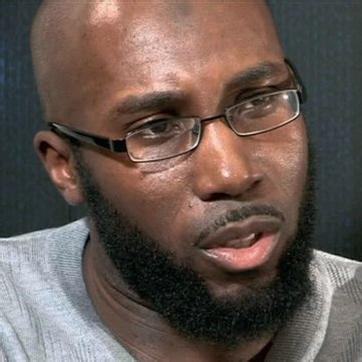 Joe Atkinson
Joe Atkinson
In response to recent malicious and off-the-mark rumours, we can confirm that page 3 of Gair Rhydd will continue to run Campus in Brief despite accusations of it being out-of-touch and misogynistic. Anyway, while we were all away from Cardiff (or still here, whatever), Christmas and New Year happened again, while the University jumped up to fifth in the national rankings of universities in terms of quality of research, a result that Gair Rhydd has investigated this week.
A study found that the amount of students seeking counselling at Cardiff University has increased by 32 per cent from 2011/12, with 1,494 students using the guidance and counselling services provided in the Student Support Centre in the last academic year.
In the New Year’s Honours, Cardiff Academic Professor eresa Rees was awarded with a damehood for her services to Social Science, while alumni of the University Rosaleen Moriarty-Simmonds (services to equality and the rights of disabled people) and Tina Donnelly (services to nursing) were awarded an OBE and CBE respectively.
Meanwhile, Vice-Chancellor of Cardiff University has come under scrutiny for spending over £1,000 of expenses on taxis, hotel rooms, rail tickets and hospitality despite earning more than the Prime Minister. Accounts also revealed that in 2013 and 2014, nine members of Cardiff University staff had been paid over £800,000 between them following voluntary redundancies.
In more heart-warming/less annoying-to-peoplewith-impending-massive-debt news, members of Cardiff ’s Law School, including students, overturned a murder conviction. 30 year-old Dwayne George, who served twelve years of a life sentence for the shooting of an 18 year-old in 2002, saw his conviction quashed after work from the Innocence Project and Pro Bono Unit at the university.
General Election season has begun in earnest, meaning the number of ad hominem attacks in the
news have soared; Ed Miliband and David Cameron’s back-and-forth over the PM’s refusal to take part in TV debates not involving the Green Party being a perfect example.
Cameron’s misgivings come after the Greens experienced a surge in membership that has seen them overtake the Liberal Democrats and UKIP, while they have also become the second most popular party among students, which may or may not have something to do with their vow to cut tuition fees.
e NHS, one of the key battlegrounds of the coming election, is in the midst of a winter of discontent with growing concerns over the condition of A&E units up and down the country, as spending cuts continue to put stress on staff and the services they provide.
Another story gathering pace revolves around underage sex allegations concerning Prince Andrew, who was ‘holed-up’ in his multimillionpound Swiss chalet at the time the allegations were made. Andrew and the Palace have, in lieu with other royal scandals, strongly denied the claims.
Ched Evans seems to be unable to escape the ‘convicted rapist’ tag that has permanently latched itself onto his name in any media report concerning the Welsh footballer. Evans looked set to join Oldham Athletic before threats to members of the club’s executive board scuppered plans to sign the forward.
Snow report: In some places it snowed more than it did in other places. One of those places where it didn’t snow much was Cardiff, where it snowed so little that no one even commented in surprise and joy on the novelty that is snow. It snowed more up North, where it is generally colder. But don’t worry snow lovers of Cardiff ; it may yet snow!
There seems to have been so much written about the Charlie Hebdo tragedy that there isn’t much left to say. The offices of the French satirical
magazines were attacked by gunmen for their publication of cartoons depicting the Prophet Muhammad, with twelve innocent people losing their lives and prompting further attacks across the city.
The response to the attacks was heartening and centred around the importance of free speech, with millions marching across France and cities around the world in solidarity with the murdered journalists, and against extremism.
The reaction against Islam was predictably reasoned and sensible on the Fox News Network, with American ‘Terrorism commentator’ Steven Emerson claiming that Birmingham is a “Muslimonly city” where non-Muslims “don’t go”. The city of Birmingham demonstrated its British-ness by opting not to sue Fox, but to call the comments “bonkers”, before leaving it at that.
The Pope was a massive lad this week but also denounced free speech, for which he lost lad points. On people insulting religion, he said: “if [someone] says something bad about my mother, he can expect a punch”, while feigning to punch one of his aides.
The bizarre and self-destructive tendencies of Nazi-sympathisers to dress up as Adolf Hitler struck again as the leader of an ‘anti-Islamisation’ group ‘Pegida’ in Germany stood down after being photographed of himself styled as his nation’s World War II leader.
Seth Rogen likened the newly released Clint Eastwood-directed blockbuster American Sniper to a Nazi propaganda film, literally a month after Rogen himself directed and starred in The Interview, a film which revolved around an attempt to assassinate North Korean leader Kim Jong-Un, and to bring democracy to the country.
Before its eventual release, The Interview itself was initially scrapped by producer Sony after its servers were hacked and information about upcoming films released, including the next Bond film Spectre. The US blamed North Korea for the hack, but there have been doubts as to the validity of those claims.
Dwayne George, who was freed thanks to the efforts of Cardiff University law students (Photographer: BBC)
tweet us @gairrhyddnews
email us news@gairrhydd.com or visit us online at gairrhydd.com/news

In the fields of Engineering (97% world class), Psychology (92%), Media Studies (89%), Sociology (86%) and Modern Languages (84%), Cardiff placed in the top three institutions in the UK – results that form the basis of the “golden triangle” claim.
However, the University has failed to excel in key areas. Mathematical Sciences, Politics and Public Health are amongst the Cardiff modules to fall outside the top ten in the UK.
Furthermore, there have been suggestions that the emphasis on re-
search rankings is actually detrimental to the academic experience.
“As a young researcher, I find the academic environment very intimidating. There are huge pressures to publish outstanding work and meet ref standards,” a student told Gair Rhydd.
“It’s putting me off staying in research, and I’m not even half way through my PhD.”
The pressure surrounding research rankings stems from the fact that they are used to determine government-al-
located research funding for the next few years.
Yet despite its relatively strong performance, Cardiff does not feature in the top ten universities by projected research funding for 2015-18.
In response to the above claims, Vice-Chancellor Colin Riordan insisted that: “We decided from the outset that our goal was to be in the top 10 universities when measured on grade point average.”
He also said: “In keeping with our transparent approach, we have also
been clear with our academics that anybody who is producing or is capable of producing high-quality research will be supported, irrespective of whether their work was included in REF 2014.
“REF stands for ‘research excellence framework’, not ‘research intensity framework’ or ‘research power framework’. The latter ranking favours larger institutions; the former relies on separate data external to the REF whose accuracy is in some cases open to question.”
Cardiff University’s ViceChancellor has found himself in hot water after a Freedom of Information request revealed how he racked up over a thousand pounds in expenses each academic year dating from 2012.
Professor Colin Riordan (who reportedly earns in excess of £250,000) has claimed expenses totalling over £2,300 since his investiture as President and Vice-Chancellor in 2012.
Amongst the more contentious claims are the elusive ‘subsistence’ expenses, as well as numerous reimbursed taxi fares, one of which, ironically, the Vice-Chancellor claimed for while attending the Equality Challenge Unit Conference in Nottingham back in 2012, an organisation working alongside universities and colleges to challenge work-place glass ceilings.
An analysis of his reimbursed expenses shows two separate claims of £194 and £288.60 for two overnight stays in London in October 2013 and September 2012.
In regards to Prof Riordan’s £194 accommodation bill, a Cardiff University spokesperson said: ‘This specific claim relates to an unplanned overnight stay due to a meeting and dinner of the Russell Group in Central London. All of the Vice-Chancellor’s overnight accommodation is usually booked well in advance to ensure the most cost effective booking.’
The spokesperson for Cardiff University maintained that the ViceChancellor’s expenses are a necessary expenditure, commenting: ‘As head of Wales’s leading research intensive University it’s vital our Vice-Chancellor represents us at major meetings in Wales, the UK and internationally.’
The spokesperson added: ‘All employees are entitled to reclaim legitimate expenses incurred in the course of their duties,’ adding ‘all claims for expenses are approved by a higher budgetary authority than the claimant […] the University has clear guidelines to ensure that all legitimate personal expenditure incurred by staff on University business can be claimed.’
Speaking to WalesOnline, Lee Canning, Wales’ co-ordinator for the TaxPayers’ Alliance, said: “Overall, these expenses don’t appear to be incredibly excessive, especially when compared
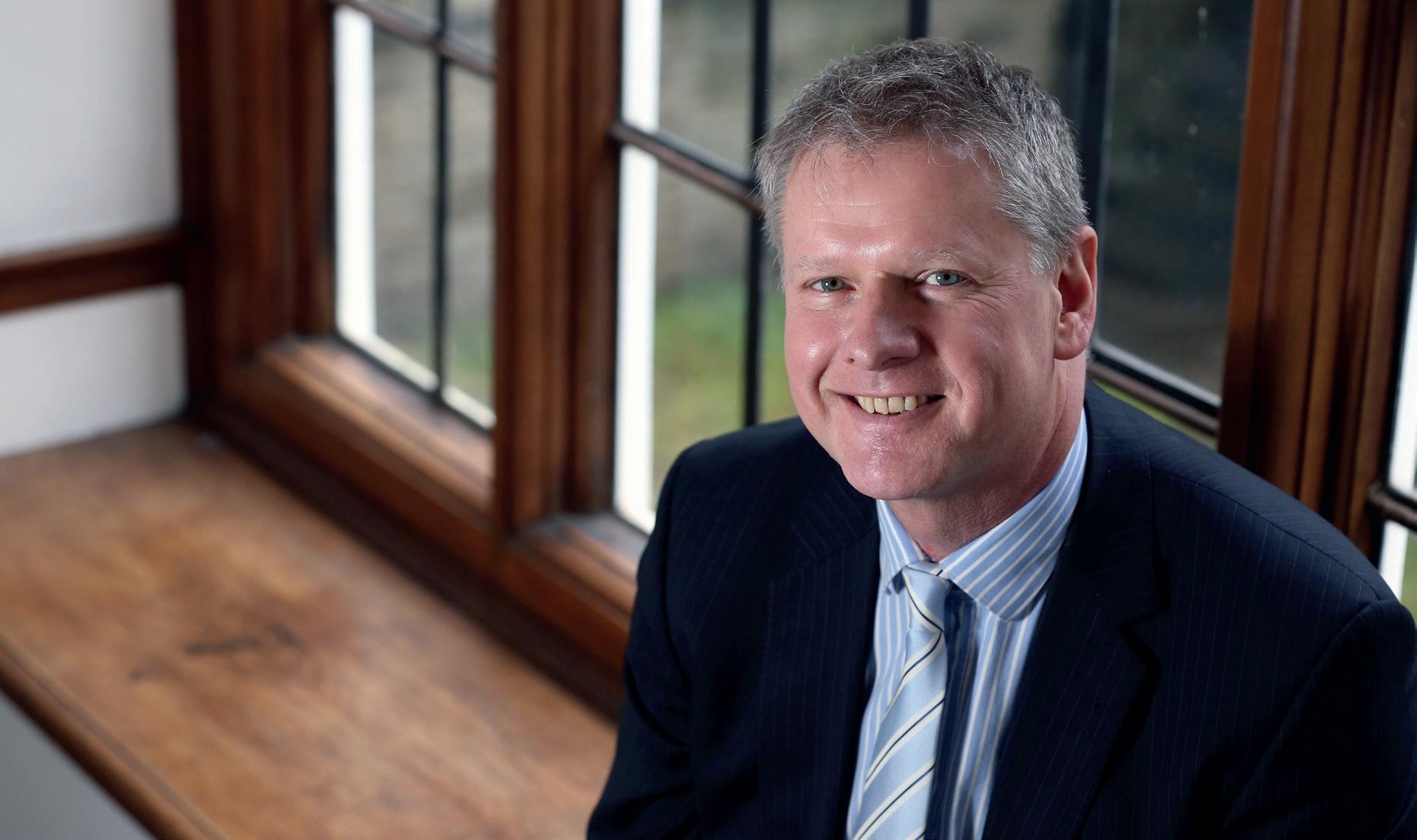
to aspects of the public sector.
“However, most taxpayers would agree that £252,000 is more than enough and surely an individual on that salary doesn’t need to claim £6 from university funds for a taxi ride.”
The figures have come to light against a larger backdrop of staff union negotiations for increased wages as well as wider staff and budget cuts across universities nationwide.
Following staff cuts, published accounts for 2013/14 revealed that over the period nine employees at the Cardiff University received a staggering £800,000 between them after applying for voluntary redundancy.
It was also noted that the University had a total of 129 employees earning more than £100,000.
In response to the payments, Plaid Cymru education spokesman Simon Thomas, a regional AM for Mid & West Wales, said: “These payoffs do seem excessive looking at the accounts.
“I’d like to see the justification from Cardiff University’s remuneration committee for compensation pay at these levels, particularly when we face continued cuts for universities and other Welsh public services because of a culture of austerity from Westminster.”
Cardiff University were quick to defend their actions. In response to
criticism, a University spokesperson said: “The university’s voluntary severance scheme and its terms were made publicly available: staff at any level leaving the University on this voluntary basis have been paid the equivalent of one year’s salary.”
A separate FOI released the expense claims of Deputy Vice-Chancellor, Prof Elizabeth Treasure, who over the same two-year period was reimbursed £854.50. In 2011/2012 Prof Treasure claimed a total of £1,214.69 in expenses, of which over £800 was spent on a trip accompanying the First
Minister to India. Her claims, dating from 2011 when she took up the position, reveals how she was reimbursed £62.96 for ‘Accessories and Business Apps’ for her university-supplied iPad and a £9.10 car park fee.
By comparison, a similar FOI request was made for the expenses of Swansea University’s Vice-Chancellor, Professor Richard B. Davies, dating from 2010 to 2013. His claims amounted to a fraction of Riordan’s, totaling a mere £335.11 over the space of three years.
• Vice-Chancellor Colin Riordan racked up over £2,300 in expenses claims over 2 years
• Claims include £194 and £288.60 overnight stays in London despite salary of over £250k
• Deputy Vice-Chancellor Elizabeth Treasure reimbursed £62.96 in ‘Accessories and Business Apps’ for her university-supplied iPad
• Swansea University Vice-Chancellor’s expenses approximately 10% of Colin Riordan’s
Amongst the more contentious claims are the elusive ‘subsidence’ expenses, as well as numerous reimbused taxi fares
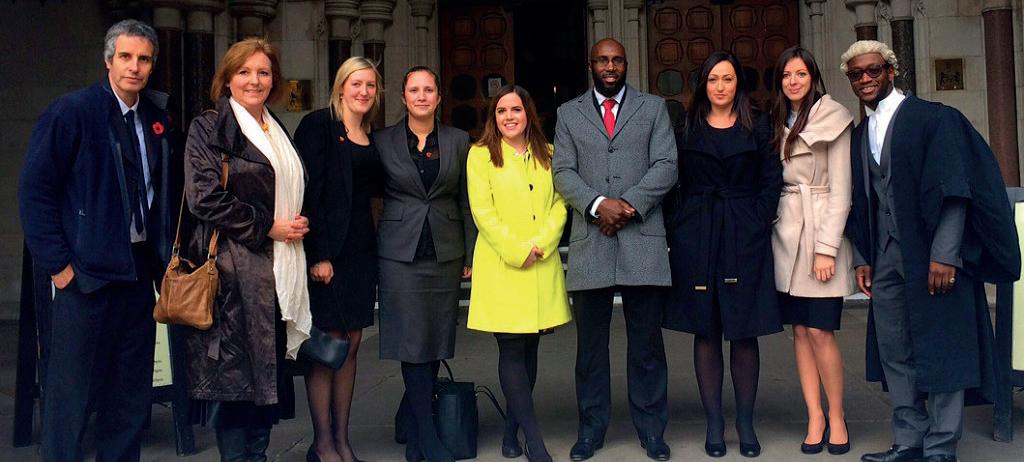
Aman jailed for 12 years has had his murder conviction overturned thanks to the diligent investigative research work conducted by Cardiff University law students.
Dwaine George, now 30, was accussed of the murder of 18-year old Daniel Dale in Manchester in 2001. Dale was shot dead a few days before he was due to testify in court in the case of his friend’s homicide in a street attack earlier in the year.
The law students were working as part of the University’s Innocence Project, which seeks to review and investigate open-and-shut cases
that were suspected miscarriages of justice.
George was sentenced to a lifetime in prison in 2002 and served 12 years behind bars on the basis of evidence which was later discredited by the students’ research. According to the prosecution lawyer, George and another man, Ryan Brown, had used a Walther PPK selfloading pistol to kill Dale, but this was proven with a miniscule amount of gunshot residue found on a black Henri Lloyd hooded jacket found under the stairs at George’s home. The law students consulted Dennis McGuire, a US-
Recent figures have shown that more students than ever are seeking counselling from the University’s Student Services.
According to recently revealed statistics, 1,494 students sought counselling from the University support service during the last academic year, a rise of 32 per cent from 2011/12 and six per cent from 2012/13.
Of those, 941 students sought counselling for depression and anxiety, compared to 611 in 2011/12.
The University Counselling, Health, and Wellbeing Team helps students who are having trouble
with depression, anxiety or any other mental health issues. They offer counselling sessions and resources in order to help to students with mental health issues.
Hannah Maynard, secretary of Student Minds Cardiff, speculates that ‘there are a number of possible explanations for why there appears to be an increase in the number of students seeking counselling and university support.
‘As a result of mental health awareness and anti-stigma campaigns from mental health charities, there may be less stigma associated with mental health difficulties, meaning
based gunshot residue expert, who was instrumental in changing the trajectory of the case proceedings. George, who always maintained his innocence, expressed gratitude to the students, pro-bono lawyers and professors who helped set him free: “First and foremost, my thoughts go out to Daniel Dale’s family. He lost his life in this tragic event and I always said I wasn’t responsible for that.
“Today I have got the result I wanted – I have lost a lot of my life that I can’t get back, but I just want to get on with my life now. I hope the Cardiff Innocence Project will
get all the recognition it deserves for this. I want to thank all those who helped me – the students and staff at Cardiff, my solicitor David McCorkle, James Wood QC and Tunde Okewale from Doughty Street Chambers”. Cardiff University is one among a handful of higher education institutions that work on potential miscarriage of justice cases with the potential of over turning a verdict. Professor Julie Price, who heads the Innocence Project, proudly stated that students had spent “hundreds of hours” on this case alone to get this man his much deserved justice.

students may feel more comfortable seeking support’
She also suggests that ‘there may be greater awareness of the services available which could have led to a greater increase in the number of students seeking support.
‘It may also be that there is actually an increase in the number of students who are dealing with mental health problems.’
A Third-year ENCAP student said: “The University’s support service was my first port of call when I began to struggle with my work load.
“The counsellors I saw were extremely friendly and helped to put me
at ease, reassuring me that what I was feeling was perfectly normal. They directed me to numerous workshops and resources that could help me and with their support I was able to get back on track.”
According to NUS Wales President, Beth Button, ‘an increase in students seeking counselling at certain universities could be down to a number of reasons, including increased awareness of services for mental health and greater use of services on offer.’
The rise of students seeking counselling has been seen nationwide, with a national rise of 9 per cent last year from the 2012/13 academic year.
[George] served 12 years behind bars on the basis of evidence which was later discredited
The rise of students seeking counselling has been seen nationwide. NUS Wales President Beth Button “ “
tweet us @gairrhyddnews
email us news@gairrhydd.com
or visit us online at gairrhydd.com/news

Asenior member of staff at Wales’ largest hospital has suggested that working at the facility’s Accident and Emergency department is a more stressful experience than her time in Iraq.
The nurse made the claim in a letter presented in a management meeting, in which she detailed a number of harrowing cases that saw patient care fell well below the expected standard.
These included the case of a pregnant woman who miscarried on the floor and a patient suffering a suspected heart attack whilst waiting for treatment in a public waiting room.
The letter was intended to remain in-house, but was attached
to a staff noticeboard and subsequently leaked to local media outlets.
The nurse claimed that such experiences caused her to “get into bed and sob my heart out” at the end of her shift.
She suggested that less experienced staff – potentially including those on placement from Cardiff University’s School of Medicine –were subject to “risks” and responsibilities that they were “too junior to carry”.
“We cannot, as a senior nursing team, continue to put our staff and our patients at this heightened risk any longer,” the unnamed sister concluded.
University Hospital of Wales,
“ worse than
”
Nurse details harrowing cases which see patient care fall well below the expected standard
which is the primary teaching hospital for Cardiff University students, has endured a difficult twelve months.
In October, Gair Rhydd reported that medical students felt unable to freely speak over an alleged lack of contact hours and one-to-one teaching out of fear of damaging their career prospects.
Waiting times have come under fire as part of a wider attack on the performance of the Welsh NHS, with more than 44 per cent of the institution’s ambulances missing their target response time of eight minutes for critical callouts.
Last November, two organ transplant patients at the hospital were found to have died as a result of re-
ceiving infected kidneys – whilst an elderly man died after falling from a campus structure in December.
Those working towards a career in medicine are likely to have been part of a team that is threatened with “facing higher levels of stress than we ever did [in the Second Iraq War]”.
First Minister Carwyn Jones confirmed that “The account that was given by the nurse is correct.”
However, Gaynor Jones – chair of the Royal College of Nursing in Wales – claimed that she had “never experienced anything like what this nurse has described.”
Cardiff University were unable to provide comment as we went to print.
Cardiff University certified as a top LGB
Cardiff University has been awarded its highest ever rankings in Stonewall’s employer’s table, with one of its professors recognized as an esteemed Role Model.
Moving up 28 places from its position at 52nd last year, the gay rights charity placed the University 24th in the UK for its commitment to equality for its gay, lesbian and bisexual employees. Marking the only Welsh University to be placed within the top 100 employers, Cardiff also remained the highestranking University listed by Stonewall within the Russell Group.
Professor Inaki Garcio-Blanco, from the school of Journalism, Media and Cultural Studies was also named as one of Stonewall’s 2015 role models. Talking about his position as a role model, he explained: ‘The fact that I’m gay always has an impact, which I believe is positive; “it’s someone I respect and who’s gay”. We need to start normalising the narrative, it doesn’t need to get better, it can be good from the start.
‘We have LGBT role models at every single level of the university.
My students value that, they see it’s not just a discourse: gay people are accepted, respected and promoted here.
‘For certain students who are ahead of the general state of things in their countries, it’s confirmation they’re right; “it’s ok, nothing happens, the world is not crumbling when gay people get married”.’
According to Karen Cook, Chair of the University’s LBGT+ network, Stonewall’s Top 100 Employers table is a benchmark for measuring the University’s commitment to equality. Established in 2006, Enfys aims to raise awareness of LGBT+ issues throughout campus in order to promote equality and diversity.
‘To have remained in the Top 100

for a 5th year and to have climbed 28 places is an incredible achievement and highlights the work we have done but also the work that remains’ she said.
Stonewall’s Top 100 Employers List is based on their Workplace Equality Index 2015, listing more than 800 major employers. Rankings are made on the effort of employers to tackle discrimination and create inclusive workplaces for gay, lesbian and bisexual employees.
The achievement was also praised by Vice-Chancellor, Professor Colin Riordan, who commented: ‘The Workplace Equality Index is designed to challenge and stretch employers and demonstrates how we remain committed to equality at work.
‘I would like to thank all staff for contributing to this recognition and in particular our LGBT+ staff network that work so hard to ensure that the University continues to be an exemplar organisation.
‘It is right that Wales’s leading university takes a lead and I hope we continue to build upon our success.’
‘We have LGB role models at every single level of the university. My students value that.’ Inaki GarcioBlanco
Anna Lewis C
ardiff University has been slated for its poor ranking in the first University Global Health Research League Table, placing 22nd out of 25 universities across the UK.
Described as ‘investing very little in global health research’, the University was given a D+ grade overall with a Dstatus for a lack of innovation.
The table included the 25 top-funded universities in the UK, with grades determined by research funding, output and investment in global health research in neglected diseases.
According to Medsin-UK and Universities Allied for Essential Medicines (UAEM), it was revealed that Cardiff spends just 0.11% of their research funding towards health research in developing countries, and 0.98% towards neglected diseases. National averages stand at 2% and
1.7% respectively.
The University was also one of 18 institutions criticized for failing to make their discoveries accessible in developing countries. However, it was graded at a C- standard for the accessibility of its research with 84% of work freely available online.
The findings follow an announcement made by the University last year that thanks to investment in a planned research facilities campus, Cardiff can expect to produce ‘world-leading research into solutions to pressing problems facing society and the world.’
Co-leader Dzintars Gotham said: ‘most universities are not doing enough to tackle the needs of the poorest. Universities should take seriously their ability to do work in areas that are neglected by profit-seeking companies.
‘Despite most research funding coming from government grants, medicines developed in universities can be priced out of reach of patients in the developing world. Policies on how discoveries are patented are crucial in avoiding this. Universities have a duty to maximise the effects of cutting-edge research performed by our best scientists.’
According to Jonathan Meldrum, coordinator of the University Global Health Research League Table, university policies play a key role in making medicines affordable in developing countries. This is due to the potential to use socially responsible licensing to lower the price of vaccines and diagnostics, whilst maintaining profit incentives.
Policies for using this approach have been adopted by over 40 univer-
sities worldwide, including Harvard, MIT and, most recently University College London.
In response to Cardiff University’s poor ranking, a spokesperson for the University said: ‘It is our view that the methodology used in this report is fundamentally flawed and does not fairly reflect the manifold ways in which the University positively impacts on global health.’
The University emphasized their recent recognition by the 2014 Research Excellence Framework (REF), where they were ranked second in the UK for their research in fields including psychiatry and neuroscience.
They added that with 87% of research praised by REF, University research projects continue to address ‘global health challenges that are indiscriminate of borders in their effect.’
Cardiff University achieved shockingly low scores in People and Planet’s University League 2015 for carbon reduction, carbon management, water reduction and sustainable energy sources, despite being given an overall 2:1 classification.
The University ranked 46th out of 151 universities – 27 places behind neighbouring university, Cardiff Metropolitan, one of 30 ‘First-Class’ universities.
Plymouth University topped the tables, closely followed by the University of Worcester and Manchester Metropolitan University.
A breakdown of the statistics reveals that Cardiff University scored a perfect 100% for its Environmental Policy. Student campaign group, People and Planet, commended the University for its publicly available environmental policy which is accompanied by an action plan outlining specific, time bound targets for reducing the University’s environmental impact.
At the other end of the spectrum, Cardiff achieved a 0% for score for Carbon Reduction and 25% for Carbon Management, areas cited by the survey as ‘required to avert catastrophic global climate destabilisation’.
This follows an investigation, featured in Gair Rhydd last month, which revealed that Cardiff University holds a number of assets in the petrochemical industry valued at over £2.5 million.
The University was shown to have links with nine companies in the sector, including BP, Tullow Oil, Shell and Rio Tinto – all of which deal in allegedly environmentally damaging practices in the trade of non-renewable energy sources.
In light of the figures, a motion was passed at the Student Senate calling for an endorsement of the Fossil Free UK campaign, as well as quarterly updates on the University’s investments,
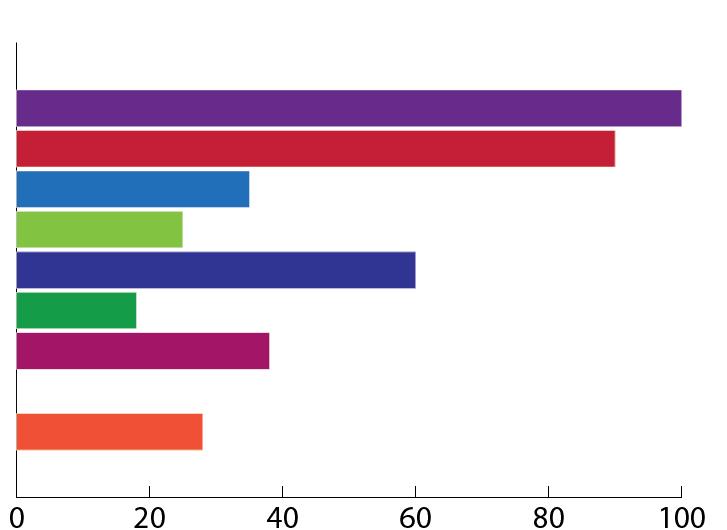
a student presence on investment committees and future divestment from fossil fuels. However, it remains unclear whether the Students’ Union Board of Trustees will uphold the decision.
When approached for comment a Cardiff University spokesperson stated that they “do not consider that the university divestment from the fossil fuel industry to be the answer.”
The breakdown of scoring by People and Planet’s University League revealed that Cardiff University fails to conduct any assessment of the carbon intensity or climate change risks within its portfolio and has no strategy for managing these risks. It was also noted that the University has made little or no progress towards decreasing its investment in assets considered as ‘high climate change risks’ – including fossil fuels -
within the last financial year and has failed to invest ‘positively for social environmental goals’.
In terms of renewable energy sources, Cardiff University generates renewable electricity equivalent to 0.01% of the grid electricity it consumes.
In response to this a member of People and Planet Cardiff commented: “This shows that the University needs to divest from fossil fuels. They are clearly not doing enough, if anything, to reduce carbon emissions.”
The University also scored relatively low for recycling and reusing and was awarded 13 points out of a possible 50. Statistics revealed 43.51% of waste at the University is recycled, composted or anaerobically digested.
Speaking to Gair Rhydd, a Cardiff University spokesperson said: “As a research-intensive University with
many old buildings we continue to face many environmental challenges. It’s against this wider context that it’s so pleasing to see we have recorded such a significant rise in the latest People and Planet University League. Alongside our research, staff and students across the University are working hard to ensure our day-to-day operations are generating less waste and are more efficient.
Acknowledging that there is still a lot to be done they added: “What we’ve achieved is something to be proud of, but as a University we need to take the next step. We must work hard to ensure sustainable practices and principles become embedded in our everyday culture.
“Our aspiration must be to become one of the greenest universities in the UK, one that sets the standard for other institutions and organisations.”
Results: A selection of the key results noted by People and Planet’s University League 2015
Welcome to our Advice section, where we bring you tips for surviving Cardiff university life email us: advice@gairrhydd.com
If you haven’t been swept in by the mythical rush to get a house before Christmas, then perhaps you’ve started to feel the pressure to get one now. It is a good time to start looking – a lot of letting agents have added many houses to their lists in January, so there are plenty of options. Perhaps you’re desperate to get out of your current house due to a long list of typical student-house problems, so here is a run-down of everything you need to know and some advice on solving housing problems.
Consider the number of people you want to live with
Having a nice house is one thing, but the people that fill it will make all the difference. In first year you find yourself flung together with a random group of people and you all seem to get along splendidly – but cracks start to show as time goes on. You’re never going to find the perfect housemates, or be a perfect housemate, but you need to be honest with yourself on who you can actually stand to live with.
If you’re extremely tidy then choose the people who are similarly tidy, and if mess doesn’t bother you then it’s best to avoid the inevitable arguments and not live with the neat freaks. Always think ahead – perhaps next year you don’t want to go out all the time or don’t want another year of your housemate’s partner practically living at your house, so definitely be fussy about who you agree to live with.
will make everything a bit cheaper. So its important to pick the right people, and the right number, that suits you. The winter months are a good time to find a house because the condition of a house is most tested during the cold. Mould and condensation problems, heating problems and leaking issues will all show themselves around this time of year.
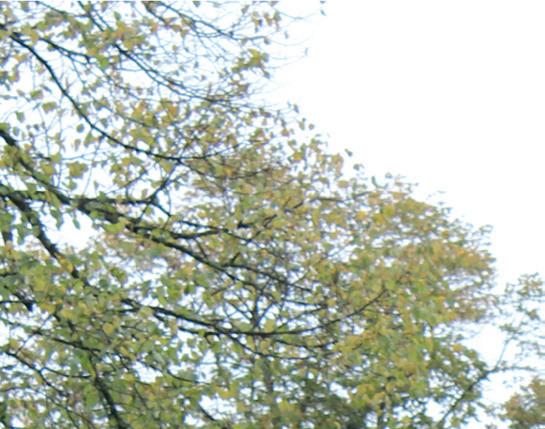


What do you think? Have your say: advice@ gairrhydd. com
Another important thing to consider when choosing housemates is the number of people you want to live with. Living in a house with just two of you sounds relaxed and easy, but it does work out more expensive. Most two-bed houses charge full rent during the summer as they are usually rented to professionals who would be there, and the bills are only split between two. Large houses mean that inevitably there are going to be diverse living habits - some may go out a lot more than you do and cause you to miss your 9am lectures for lack of sleep, there are more people to make a mess or steal your food and there are more chances of waiting for the bathroom. However when renting large houses the rent can often include all bills which means no arguments about turning the heating on, or discouraging people from having a bath. If they’re not included, splitting bills between 6 or more people
When looking around a house, make sure you are really inspecting everything. Around windows or in bathrooms are the key places to find mould and condensation, and a lack of a tumble-dryer or ventilation will only add to the problem. A lot of big houses have basement conversions that look great, but in reality they can be poorly ventilated or easily flooded by rain, which we happen to get a lot of in Cardiff. Don’t be afraid to snoop around –check that the bedroom doors have locks, test the power of the shower, see how much space the fridge and freezer really offer. The best way to get a true representation of the house is by asking the current tenants what its like and if there are any problems. If your keen on a particular house book a revisit, especially if the tenants aren’t in the first time, so you get the opportunity to ask them what it’s like to live in. Ask about the landlord, find out if they’re problems have been solved – you will also get an idea on the reliability of the letting agents.
It is also important to consider the bedroom sizes. Some can vary in size quite a lot, so it is best to discuss who would have what bedroom before signing for a house, and perhaps arranging a staggered rent for those with the smallest and biggest rooms. If you just can’t agree then keep looking, you will be able to find a house that has similar room sizes that won’t cause disagreements.
Finding the perfect house will be difficult, and if there are just a few problems or amendments you want made to a house it is worth asking the letting agents if these can be written into your contract to be done before your arrival. This means that the landlord will have to add those locks, or treat the mould, before you move in, and this will be part of your contract agreement.
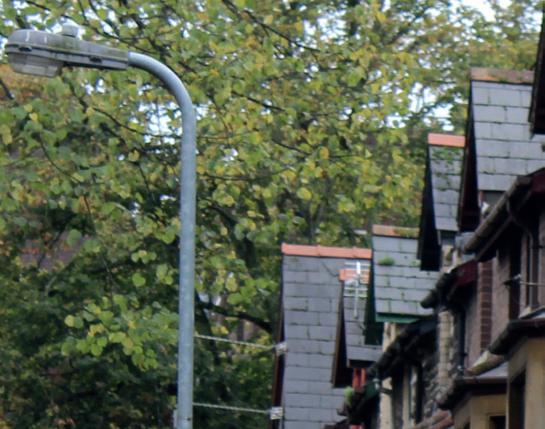

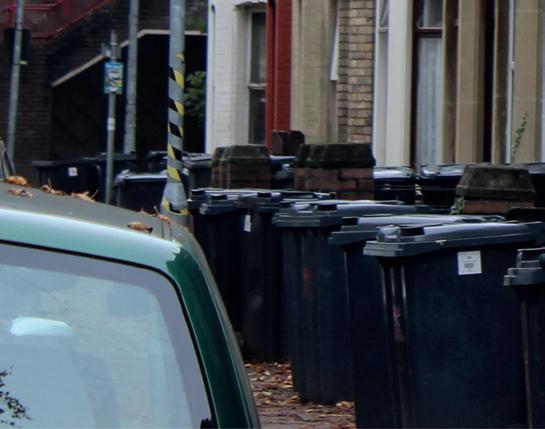



One of the most common problems for student houses is the complaint of mould. Condensation can be the reason for mould building up on your walls, and will appear black. Condensation is caused when water vapour in the air lands on cold surfaces and condenses to form dampness or water droplets, so is most likely to be found on windows or external walls.
As a tenant it is your responsibility to try and prevent this in your house and there are a few easy ways to do this. Having the heating on for a few hours everyday during the winter will warm up the cold surfaces so reduce the condensation forming, so it is important to turn it on. When condensation forms on your windows, use an old towel to wipe it away – this will reduce the amount of vapour in the air. Dry your clothes in the tumble dryer as often as you
can. If you have to use a clotheshorse or radiator, leave your window open while it is drying or turn on a dehumidifier to take the moisture out of the room. Some rooms are fitted with a small vent, which should also always be left open.
Even during the winter months try and open your windows for some time every day - this will allow the water vapour in the air to escape and reduce the amount that lands on cold surfaces. If water vapour repeatedly lands on the same cold surfaces it will start to produce black mould. Think about the things that produce water vapour – having a shower or bath, drying your hair, cooking or boiling a kettle will all add to it. So during each of these work out a way to ventilate the rooms they happen in. Open the window after your shower or bath and while drying your hair, keep pots covered with a lid and open the window while you are cooking. These will all allow the warm water vapour air to escape and stop it from landing on cold surfaces and condensing.
Condensation is caused by water vapour in the air landing on cold surfaces
Pictured: A typical Cathays street.Continued from the previous page >>
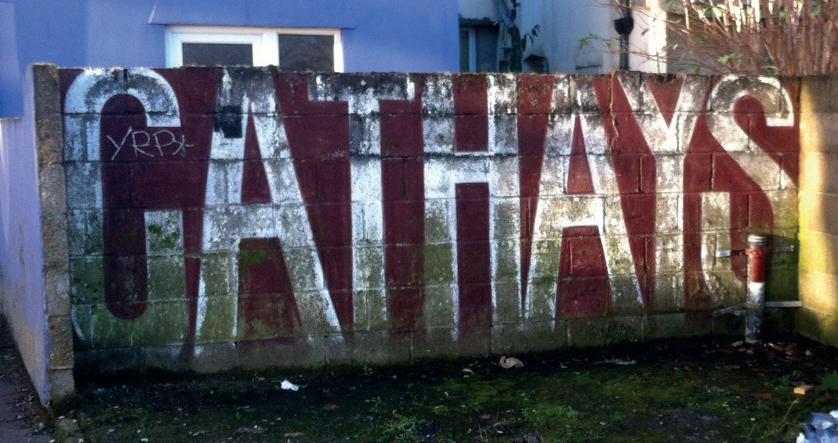
The police have reported an increase in the amount of student burglaries, so although defence strategies have already been outlined in a previous issue of Gair Rhydd, it is worth including advice directly from the police. Insecure doors and windows are the most likely way a burglar will gain access to your property, so they advise that you close all your curtains and leave a light on when you go out in the evening, and ensure
that you have properly locked everything before leaving. They are also holding a large property-marking event on Friday 29th January in the Cardiff University Main Building , VJ Gallery from 10am-3pm. It is a free propertymarking event for all your valuables, so bring your phones, laptops, tablets and pedal cycles, or anything else of value. Dr. Bike will be in attendance from 11am-3pm to provide free bike maintenance. Visit their website at www.cardiffnightline.wix. com/cardiff-nightline
Two of Cardiff ’s leading student services and how to get involved
Here is information on two of Cardiff ’s leading student led services. Cardiff student minds is one of the great services our Student’s Union offers. It is aimed at providing students with mental health issues support, with weekly self-help group sessions in the union. ese sessions are run by Cardiff University Students as well as trained group facilitators, and all are volunteers. ey aim to create a safe environment for pro-recovery discussion.
roughout the year they host a number of events and campaigns in order to raise awareness of mental health and the services they provide. Some of these are specific to eating disorders and others involve other mental health problems. For example, last week they hosted an information talk by a clinical psychologist on mental health in general and eating disorders more specifically. Some of the events for next term include a talk on self-harm as part of Self Harm Awareness Day (3rd March) and a week of activities for Eating Disorders Awareness Week (Feb 23rd - 27th).
ey also try to host a number of ‘fun’ events to engage more people, such as giving out free head massagers as part of National Stress Aware-
ness Day last month and a Clothes Swap next term. ere was also a Christmas party in Koko Gorilaz last ursday with a number of Cardiff Uni societies performing. All of their events can be found on their Facebook page (www.facebook.com/studentmindscardiff ).
More specifically to their support groups, they provide weekly support groups for students with eating disorders. Students do not need to be diagnosed with an eating disorder and can be from any stage of recovery, but their approach is very pro-recovery. ese groups take place every ursday between 6.15 - 7.15pm in the Boardroom in the SU. e aim of these groups is to provide a safe and non-triggering environment for attendees to discuss any difficulties they are experiencing. ese difficulties may be directly related to their eating disorder or it could be more general, for example, experiencing difficulties with housemates. Each month a different topic is used as a guideline, for example this month is ‘Returning home for Christmas’, but the discussion is open to whatever the attendees would like to talk about. e groups hope to help attendees to seek support and advice from each other, and they can engage with as much or as little with the
group discussion depending on how comfortable they feel, and may bring along a friend for moral support.
Cardiff nightline is a confidential student led phone service, open every night during term time between 8pm-8am, including weekends. ey are there as a service to provide an ear for any problems or worries you might have and pride themselves as listening, not lecturing. It is a nondirective and non-judgemental service, that do not give advice and work with two-way anonymity – they won’t know you and you won’t know them. eir volunteers are students who are fully trained and receive ongoing training throughout the year, giving them an insight to any potential issues among the student population. ese could include mental health issues, loneliness, problems with housemates, alcohol, drugs or problems with a degree scheme.
You’re also able to become a volunteer, with applications taken during October and February. Volunteers sign up to complete a night shift from 8pm-8am at least once a month. ey spend this night in the nightline house, which has beds, a TV, sofas, Wifi and a Nintendo Wii so you won’t be sat alone and bored all night. e applicants will be given an interview, and if successful will
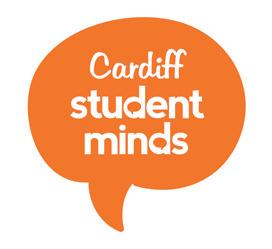
have a two day training course, with two on-going training evenings each year. Being a volunteer will give you transferable skills that can be used in a work place, including good listening skills and the ability to tackle difficult issues. ey also have social events for the volunteers so you are able to meet the people who do the same job you do.
ere is also an opportunity in February to apply to work promoting Cardiff Nightline around campus and at public events such as Fresher’s Fayre.
(Source:

Volunteers sign up to do a night shift from 8pm8am once a month “

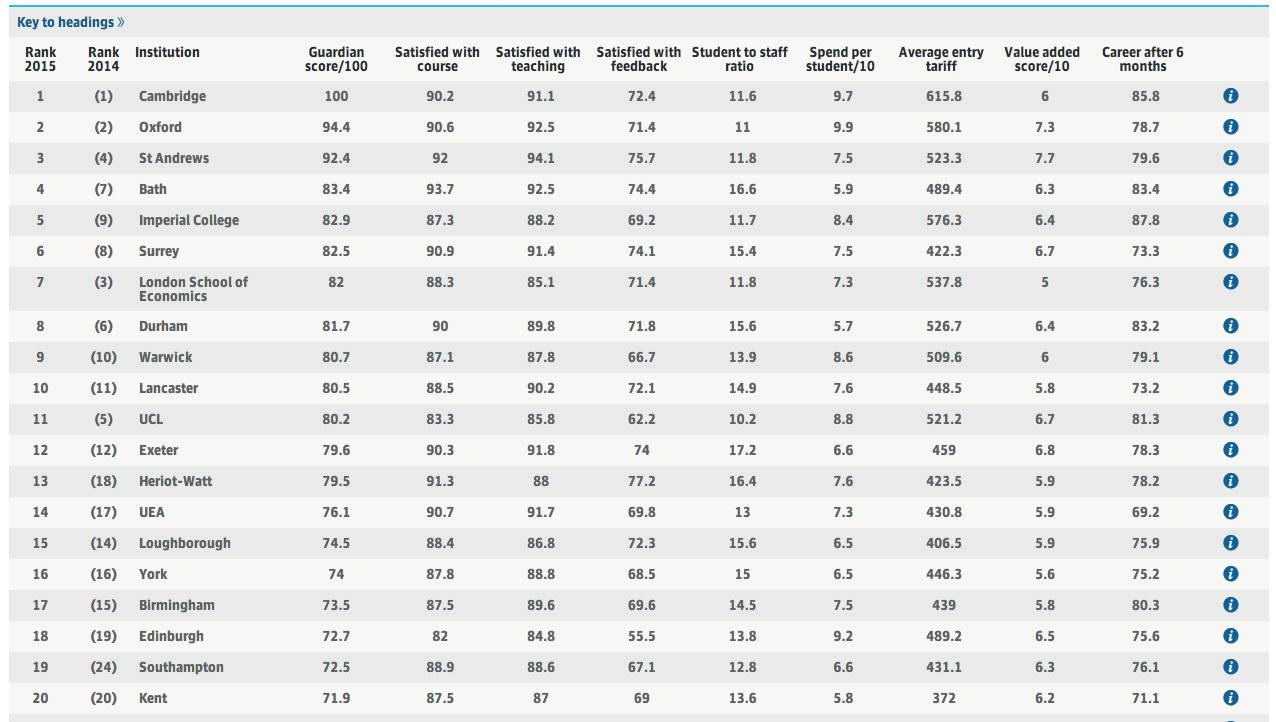
Here is a system that distributes research funding by rewarding beneficial research.
To me, that seems rather logical
Should we see take notice of Cardiff ’s recent REF results?
So Cardiff is in the top five in the UK for university research in the recent Research Excellence Framework (REF). No matter how you spin the results, I did feel rather smug at this news and happily gloated to my friends of this fact. But there have been criticisms. Some have had a rather nonchalant view to it, seeing it as an undeserved pat on the back.
Admittedly, the whole presentation of the REF results by Cardiff Uni was an enormous PR show that screamed self-commendation – but we did do well. Even if you factor in the potential for manipulating the results. Cardiff does produce research of influence.
There have been serious concerns that the demands of universities on academics are unacceptable as a direct result of REF submissions. Although it does sound rather callous to say ‘tough luck’ to hard working lecturers, it should be as an accepted part of being in academia. If you are at such a level within your field to be doing research and are lecturing on it, of course there will be pressure on you. Take any profession and observe someone who is at the top of it – they will be in high demand to provide results, achieve targets and have success.
REF asked academics to submit their four best papers since 2008. It is hardly the “publish or perish” that has been used to describe the work associated for submitting the necessary research. In addition, these are fields where most active lecturers will be publishing several papers a year.
What REF actually highlights is work that could have been potential-
ly overlooked by the academic community. In the boundaries of REF, it studies the impact of all research that is undertaken within specific categories of a university. It enables academics to get the credit that they deserve.
Here is a system that distributes research funding by rewarding beneficial research, and to me that seems rather logical. How else would you distribute finance for research? Unlike grants that are given on the basis of future promise and aspirations, money given due to REF is reflective. It is evidence-based giving that it is a legitimate way to give resources to researchers that are directly accountable for a specific study.
Just take a look at the fact that Cardiff jumped 17 places from the last REF in 2008. Yes, this wasn’t achieved without an increase in expectations from lecturers’ output, but no matter how you attempt to spin this figure – there was at the minimum some sort of improvement and increase in research considered to be world leading.
It matters where universities are in league tables – it would surprise me if not all students had looked at one in some shape or form whilst applying through UCAS. The prestige of universities don’t just merely rely on how modern their buildings are or what significance they hold historically.
Producing results and proving that they are an institute that formulates new, ground breaking research is fundamental to both the university and the standard of education students receive. It’s necessary to differentiate what sets out individual universities from each other.
‘The Research Excellence Framework (REF) is an instrument of punishment and reward that distorts the things it seeks to measure”, says University College Union’s (UCU) policy officer, Rob Copeland.
A rather damning statement, but academics seem to agree. Responses to a UCU survey from 153 higher education institutions reflected concerns about the detrimental effect of REF – on working conditions, career progression and the increasing threat of punishment for not reaching expectations.
According to its website, “Cardiff has secured a podium finish” in 5th place and has broken into the “Golden Triangle” of Oxford, Cambridge and London as a world-leading university. Under scrutiny of the results, this is questionable. When power is included in the statistical analysis - the number of submissions to be scored for each university - Cardiff places 17th in the rankings table.
REF was designed to distribute research funding, a system to evaluate research outputs, but the inclusion of ‘impact’ has been heavily criticised. REF measures whether research is world or nationally leading. Expectations are now placed on academics to produce research that will score highly in REF and be ‘high impact’. If they do not, staff may not reach the goalposts set for promotion and risk unemployment.
As an early-career researcher myself, I already feel these pressures. My work is ‘nuts and bolts’, studying basic molecular mechanisms that underpin a rare genetic disease. is is unattractive to business-driven universities; I am unlikely to publish in glamorous journals and get high impact scores in
the REF framework. Producing a drug to target this genetic disease will take twenty years, but without long-term research, how can we ever get there?
Peter Higgs, Nobel Prize winner in Physics, said he doubted whether “a similar breakthrough could be achieved in today’s academic culture, because of the expectations on academics to collaborate and keep churning out papers”.
e death of Professor Stefan Grimm, a toxicologist at Imperial sadly reflects how serious the situation has become for some. In the months leading to September last year where Grimm was found dead at home, he felt the University were harsh and unfair, placing him on performance review amidst threats of dismissal. He had fallen short of the ultimatum to secure £200,000 of research grants and publish in high impact journals.
An email from Grimm was released posthumously by an anonymous source, outlining his poor treatment and disgust with the current system of “publish or perish”. “ is is not a university anymore but a business with very few up in the hierarchy… profiteering and the rest of us are milked for money.”
is top-down management of universities as a result of the REF framework is stifling academic freedom and instead simply encourages short-term thinking. It damages the career of budding young scientists as well as highly regarded professors such as Stefan Grimm, with tragic consequences. In my opinion, REF results are not a true reflection of the quality of research and are a spin on statistics to boost university rankings in an assessment not fit for purpose.
This topdown management of universities as a result of the REF framework is stifling academic freedom
As the No More Page Three campaign once again enters the limelight, Comment reflects on The Sun’s determination to stay in the past
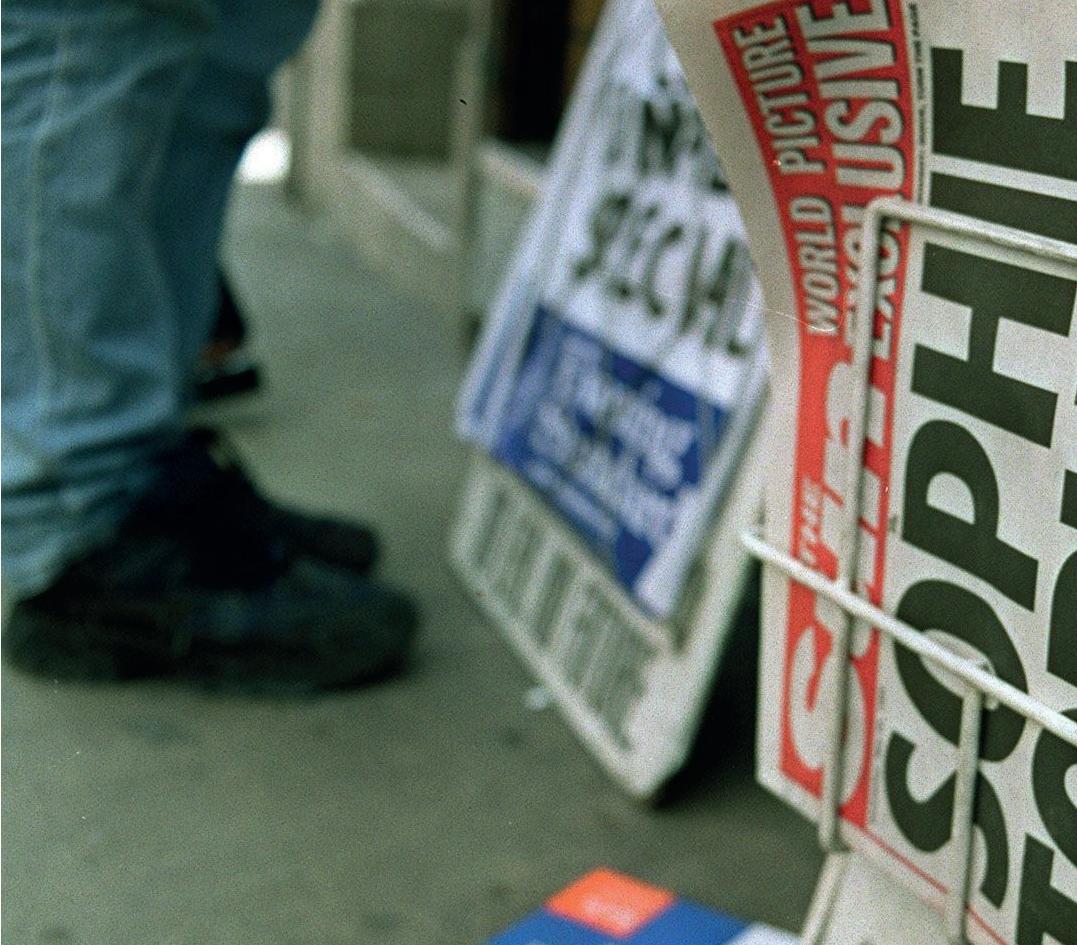
TThe ‘No More Page Three’ had been working hard since 2012 to dissolve a British newspaper institution - The Sun’s daily fix of naked women. Despite being a feminist, I have the view that while the media works to exploit women by showing their bare breasts to the world, that they should be free to act as they want.
Surely the problem with page three lies in the individuals who look at it, rather than the women who choose to model for it “
I will never be an advocate for the objectification of women. I am still subject to the age old joke of ‘Make me a sandwich’ on a regular basis, I still want equal pay in a job of equal worth and I know that women are the majority of victims of domestic violence. However, as long as these women on page three are choosing to present themselves to the nation, then I do not have a right to comment on their bodies. They are free to use them as they wish, and to show them to whoever they want.
Surely the problem with page three lies in the individuals who look at it it, rather than the women who choose to model for it. Women such as Katie Price have made their names from modelling on page three - and while I do not see this as an aspirational career, I do understand that women
have made their money from their page three work. I can’t help but feel that what is a whole lot worse is the men who pick up The Sun just to look at page three. I knew people at school who did it. The Sun is the most popular newspaper in Britain by circulation - followed by the Daily Mail and the Daily Mirror - embarrassing, really. Surely, then, the images on page three are seen by members of families - from the youngest to the oldest. The idea of a young girl seeing a bare breasted woman exploiting herself for her ‘career’ makes me feel queasy, to say the least. So those who want to look at page three should think of those around them before they do so.
I do not see a problem with the women choosing to model - they are there by their own free will. They are using their own bodies in the way they want - and I believe that that is one of the core aspects of the feminist movement in our society today.
Nathan McGill, a third year student at the University of South Wales, said that he was frustrated at the fact that, just because certain people found page three offensive, that our whole society had to reject it. While I believe that
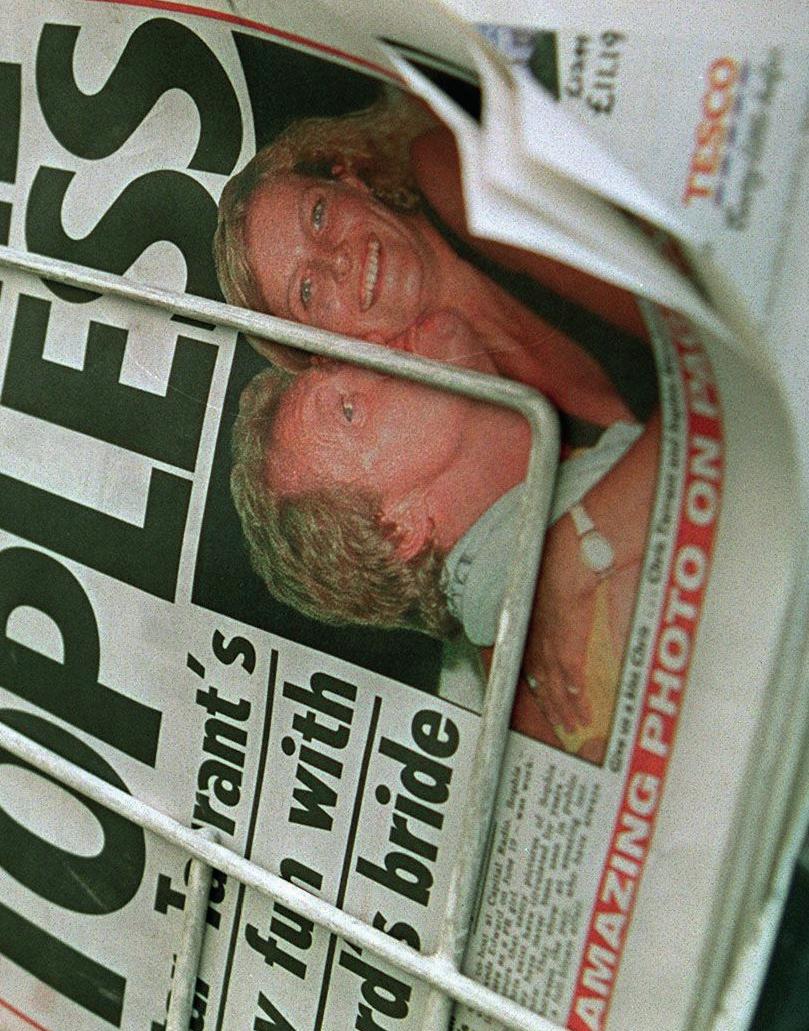
the idea of taking advantage women on page three for entertainment is wrong; we’re not animals in a zoo, women’s choice to be there should not be criticised. If I am offended by the images I can simply turn the page - or, even better, not buy The Sun There is a backlash against the exploitation of women in the media. Women’s magazines such as ELLE are spearheading a modern feminist movement for young women. That said, magazines that choose to display sexualised images of women still exist. Ways to please a man, body shaming and how to lose weight as quickly, and, ultimately, as ineffectively as possible, are splashed all over the newstands. And men do not escape either - they are told by fitness magazines to have the perfect, muscular body. These images and articles surely have a negative effect on our society - but they are not censored in any way. Surely these articles are still concerning our bodies - so why should they be freely published while page three is censored?
Magazines displaying women’s nude bodies are decreasing in circulation. Nuts magazine closed its
doors in 2014. Surely pornography and sexting are influencing the spread of nude images - not just page three, which has been in existence since 1970. So despite the positive publicity that the ‘No More Page Three’ campaign has experienced, the objectification of women will continue elsewhere in the media. The problem, therefore, lies in the media industry which is exploiting women, as opposed to the individuals who have modelled for it.
Far worse than page three is the invasion of privacy women are subjected to from the media all over the world. There was outrage when the Duchess of Cambridge was pictured topless on holiday last year. I found it to be an unnecessary and inappropriate invasion of privacy. No matter who the person is, it is wrong to take advantage of them.
So with The Sun effectively trolling everyone, the ‘No More Page Three’ campaign has a long way to go to ensure that people are not exploited by the media. I am not a Sun reader, and I do not agree with everything they publish. But I can make the decision to not buy their newspaper.

What do you think? Have your say: letters@ gairrhydd.com
n the 3rd December, George Osborne introduced plans for a new government loan for prospective postgraduates, to be introduced in 2016. According to this statement, Osborne’s aim is to ‘increase the number of highly-skilled workers’ in the UK by ‘removing the financial barriers to postgraduate study’, resulting in greater opportunities for a wider variety of students. The loan could be up to £10,000, providing a new opportunity for up to 10,000 more students wishing to pursue further study. But with the recent rise of tuition fees and living expenses, is this enough?
For many, the scheme is long overdue in a society where postgraduate education has long been a privilege
For many, the scheme is long overdue in a society where postgraduate education has long been a privilege for those able to pay for it outright – despite the fact that many specialised jobs in sectors such as medicine and scientific research require a Masters as one of their most basic prerequisites. The result being, of course, that these higher paid roles remained unattainable for the majority of people with lower personal or family incomes. So how have people been managing up until now?
Uproar was caused last year when young Oxford undergraduate Emily-Rose Eastop tried to beat the cycle by ‘crowd funding’ a Master’s
degree in cognitive and evolutionary anthropology. Despite attending a comprehensive secondary school, Eastop attracted insults such as ‘posh brat’ for wanting to pursue academia, rather than ‘getting a job like the rest of us’. Ironically, her overall aim was, of course, to increase the chances of reaching her dream career, as many aspire to. However, due to lack of funding and opportunity, high-paid ‘dream’ jobs often have to make way for their mediocre counterparts which pay the bills.
The new loan seems to be an exciting solution to these issues. Studying at Cardiff University, a one-year English Literature MA would cost £5,850, which the proposed loan would amply cover. This figure does not, however, include the cost of living. Like many universities, however, Cardiff offers a range of funding opportunities to help support its students, though these are predominantly to cover the cost of the course rather than living, and do not cover all courses.
In the interest of wider access for students from varied backgrounds, how does entry into the country’s elite universities, Oxford and Cambridge, fit into the discussion? Forever seen as an unattainable aspiration for many students across the UK,
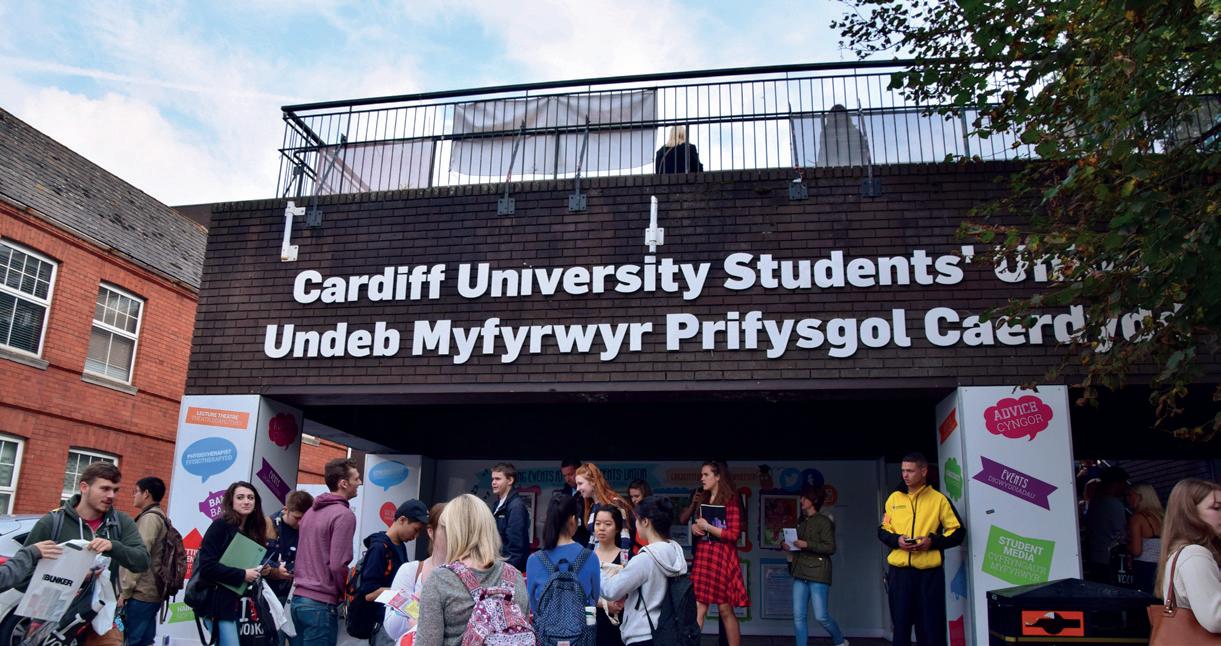
the equivalent of a full-time English Master’s at Oxford will set you back £6,335 – a figure comparable to Cardiff’s. However, upon acceptance you will also have to pay a mandatory ‘college fee’, something in the realms of £2,800, making the total £9,135. Like Cardiff, however, this does not include accommodation, bills, food, books, or any other necessity concurrent with living and studying. And in the absence of a maintenance loan, like that provided for undergraduates, we are left once again in the same position as before; students are either going to have to work alongside their full-time degree, or rely on some pre-existing cash.
In the absence of a maintenance
loan or extra bursary system, it seems that many will still have to pay for the privilege of higher education. Therefore, the loan will only benefit those who have the means to cover extra costs themselves – already the case with Undergraduate degrees, and a further barrier to truly wide access. And continued study above a Master’s? Even with the full £10,000, the loan is nowhere near enough to cover both a PhD and the Master’s required to gain access to it. Therefore, a loan which creates access for 10,000 students able to supplement living costs from their own pocket, whilst still not giving opportunities to those with nothing, is perhaps too little, too late.
Should we care that every nominee at this year’s Oscars is caucasian?Em Gates
LThe nominees haven’t been this white since 1995 or this male since 1999
ooking at the success of the past few years, the Academy had started to demonstrate diverse representations of all people at the Oscars. But is it enough? In 2012, 9 year old African-American Quvenzhané Wallis was nominated for best actress, and last year Barkhad Abdi was not only the second actor born in Africa to be nominated for an academy award, but also the second black actor to be nominated in a debut performance. Films such as 12 Years A Slave, Beasts of the South, and The Help all shone beacons on unseen talent of people of all ethnicities and genders, signalling a change of dynamic in the stereotypical image of Hollywood. But not much has changed. The nominees are Caucasian. And male. And probably in a film that revolves around a Caucasian male… So yes, we were very disappointed indeed. The 87th Academy Awards nominations were released last week, and it’s content catered to the shock of many. With not one non-white nominee in all four acting categories and the five directors and fourteen screenwriters nominated all being spectacularly male, it’s very clear to see that diversity was not at the forefront of the Academy’s mind. In fact, the nominees haven’t been this
white since 1995 or this male since 1999, meaning the Academy has literally regressed almost 20 years. This was a time before Obama, before Beyoncé and back when Will Smith was the Fresh Prince of Bel-Air.
And mostly, if there is one entity that you don’t want to annoy in lieu of diversity, it’s the Internet. Twitter was in uproar with the hash tag “#OscarsSoWhite”, with some people tweeting that The Lego Movie would have received an nomination if the trademarked yellow figures had been altered to white, and another asking if it would be appropriate to change the signature golden Oscar statuette to ivory to reflect the colour of this year’s talent.
The worst part of this all is the snubbing of David Oyelowo, whose appearance as Martin Luther King in film Selma was not only moving but also inspiring. The film regards the fight for racial equality and civil rights, ironically something the academy must have missed when choosing the nominees. Selma is nominated for best picture, but ignores Oprah Winfrey as director, instead nominating four white men who have made films about white men, and one Mexican man who again made a film about a white man.

That seems to be diversity of Hollywood this year, one Mexican man. Cheryl Boone Isaacs, the first African American president of the Academy and third female, was expected to showcase more diverse nominations. However this year’s nominations looks like they were picked by someone pointing to one end of a colour chart and zeroing in on XY chromosomes.
Boone Isaacs has since released a statement saying she ‘would love to see a greater cultural diversity among all our nominees in all of our categories’, but the worries stem from the Academy being 93% Caucasian and 76% men,
meaning that they are going to vote for actors and films that they themselves relate with; the white male protagonist. Boone Isaacs says that she wants the Academy’s diversity ‘to slide forwards, not backwards’, but nonetheless it seems to tackle the issue would mean taking a detailed look into who is voting for these nominations rather than the films themselves.
I personally hope that this year is just an anomaly on what was looking to be a great streak of diversity in Hollywood, and that next year a much more diverse selection of nominees is selected. Academy, please don’t let us down.
Rents starting from£230 per person per month


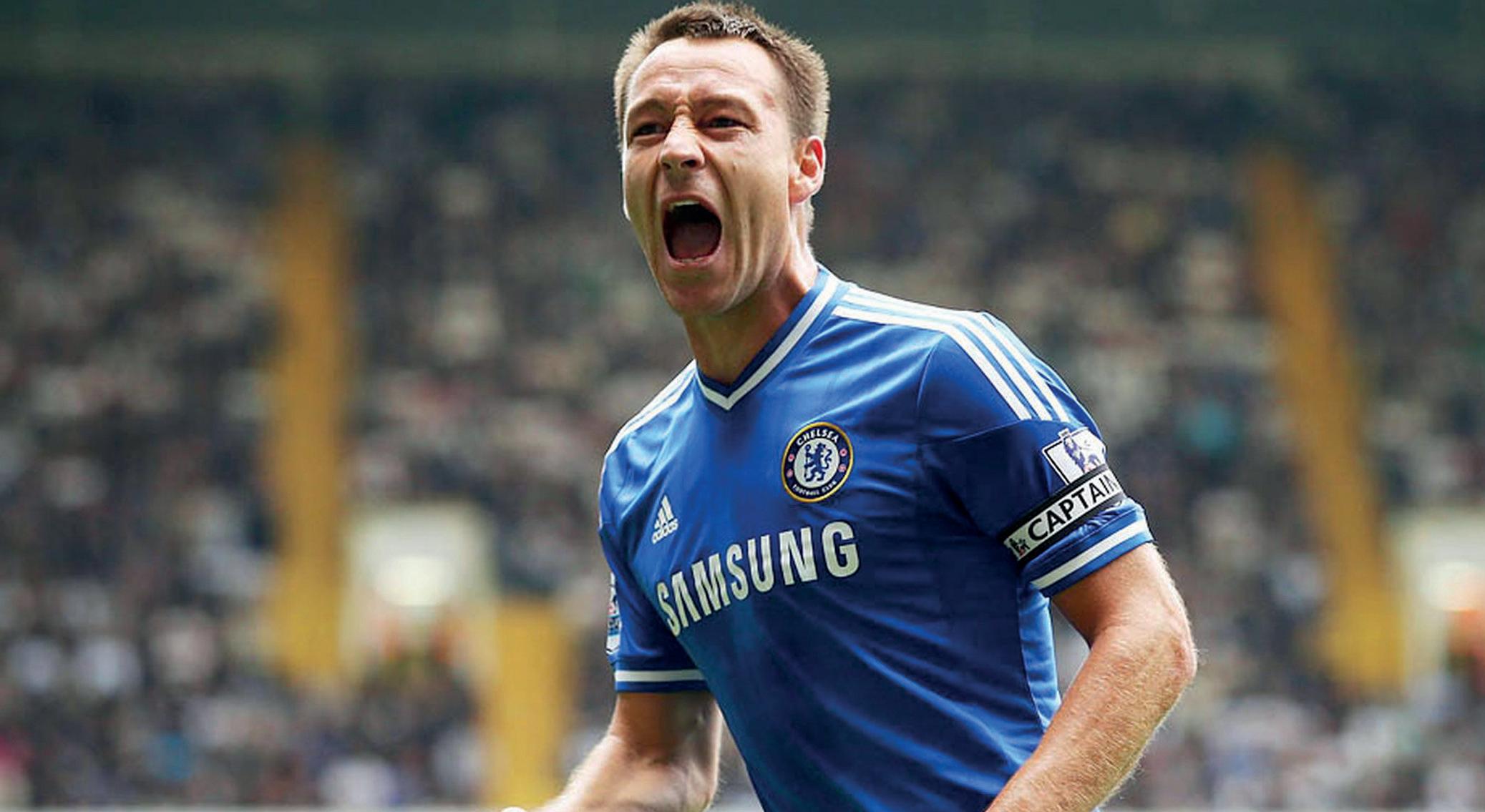
The rise of the information age is challenging our relationships with our favourite famous peopleJason Roberts
FCelebrities are under more scrutiny than ever to stay out of trouble, or at least employ a really good public relations team
ifty years ago this Friday, Winston Churchill died. And as you might expect, this Friday there will be a commemoration of sorts where political types will say words and maybe cry a few tears, while freedom-hating pinko bloggers will take to their keyboards and decry Churchill as a racist, imperialist butterball. This is, of course, nothing new. For as long as the human race has existed, people have needed to interpret history differently, either to justify their future actions or simply to make themselves feel less guilty about their past indiscretions.
The difference now, is that with the advent of the Internet and the mass media, an event can be documented by thousands of people and seen by millions in the space of minutes. As a result, if you’re a person in a position of prominence and you do something you shouldn’t, there’s a good chance that somebody is going to find out about it and tell the entire world. And then it will be stored forever in the bowels of the Internet, accessible in a few clicks. So if you’re famous and you screw up in whatever way, it’s now much harder to repair your reputation because there
will always be that mark against you.
The Internet basically acts as a permanent record for famous people. This brings us back to Churchill. The details of his legacy and the fact that it’s an incredibly complicated one are kind of beside the point, insofar as we’re not trying to examine and judge it. The problem for us is that the image of Churchill we have in our heads is profoundly different to what’s presented to us when we type his name into Google. It’s much harder to picture Churchill as one of the greatest Britons ever when you know that he was known to say a few things that may have been a teensyweensy bit white supramacisty.
The cognitive dissonance that prominent figures cause is become more and more of an issue because their past actions linger in the public consciousness for much longer than they once did. It’s visible pretty much wherever there are famous people, and most of us are consciously aware of it. My favourite footballer is John Terry, a player best known to the non-football watching public as a man who boned his team-mates girlfriend and also racially abused another player. One
of my favourite musicians is Eric Clapton, who once shouted at a gig, “Throw the wogs out, keep Britain white!” Both of these incidents are given prominent positions on each of their respective Wikipedia pages, just in case we ever forget.
The problem as a fan of an athlete, musician, actor, politician or whomever, is that so much of your emotional investment goes not just into a persons actions but into the person as a whole. So when you have to divorce the two from each other, your emotional attachment is pretty much gone. When you’re watching someone’s actions, but not caring about what their actions mean to them, you cease to become a fan and start to become an analyst.
But although this abundance of information is challenging our relationships with the rich and famous, there are certainly some positive aspects to it. With so much of a celebrities public standing being forged by their public image, and their every movement tracked and documented, celebrities are under more scrutiny than ever to stay out of trouble, or at least employ a really good public relations team.
This isn’t that much of a deal when dealing with mere gossip, but when celebrities commit crimes and serious offences, the fact that it’s reported properly and documented is important. Because although some of us are able to forgive celebrities for their wrongdoings, others can’t.
And that’s okay. How we deal with cognitive dissonance and celebrities is usually dependent on the specific failings of the celebrity in question, their failings in relation to the strength of our own beliefs, and the importance of the celebrity to our lives. If a video emerged tomorrow of Sue Perkins stealing money from homeless people, I’d never watch
The Great British Bake Off ever again. If it was John Terry? That’d leave me with some difficult decisions, but they’d be mine to make and mine to deal with. But then I’m sure that people would still watch
The Great British Bake Off, even if it were revealed that Sue Perkins liked to burn down primary schools for fun. Because as long as people have access to information, who they like and who they hate is something that they only have to justify to themselves.
Pictured: John Terry, Chelsea footballer accused of sleeping with his teammates girlfriend and racial abusetweet us @GairRhyddPol mail us politics@gairrhydd.com or visit us online at gairrhydd.com/politics
It is about ensuring that all generations have an equal voice and equal weight in political decisionmaking Simon Thomas AM
In a talk regarding young people and democracy, Mr. Thomas made an interesting remark “engaging with young people is not about political advantage for the left. It is not about stacking the odds against older people or other groups. It is about ensuring that all generations have an equal voice and equal weight in political decision-making.” Young people are often left behind in politics, with low voter turnout; politicians don’t aim many policies towards the younger groups, leading to an even lower turnout and disengagement with politics
The AM makes three proposals, which would almost certainly help engage young people. Firstly, better political education is needed, this being a key element in involvement in the Scottish Referendum campaign, people still in school could vote, and they were better educated over what to do, how to register and better informed of the options. It is vitally important to engage younger people, the Institute for Democracy and Elec-
toral Assistance notes the “three election principle”, if a young person has not voted in their first three elections, they never will: a startling finding. The second response needed is investment. This is the first generation to grow up with televised proceedings of the House of Commons, including the rowdy Prime Ministers Questions every week, and it seems young people are not impressed. Investment is also needed in ensuring young people can make a difference, Mr Thomas suggests sending a tweet or Facebook post thanking the person for voting after doing so, or even introducing electronic voting. In a recent poll by Sky News, 49% of young people responded stating that internet voting would make them much more likely to vote, with another 31% stating they would be a little more likely, proving that some sort of change is needed from the traditional ballot box on a usually rather dull Thursday, to engage younger people.
The third response vitally needed is reform of our voting system, and
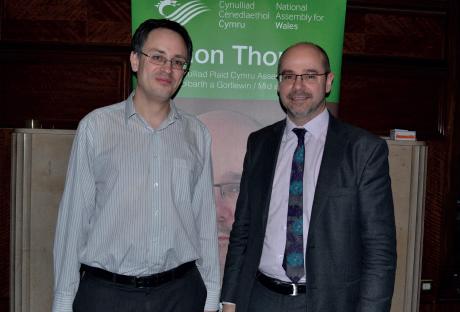
Simon Thomas wants to see proportional voting and the Single Transferable Vote, so that everyone feels like their vote counts, not only the voters in the seats likely to swing. Parties tend to concentrate their campaigning on the most marginal seats, around 80 or 12% of the total seats
available, as 88% of seats are considered ‘safe’ seats, making young people wonder whether they should bother voting at all. We need to get young people involved, and have a revolution at the ballot box, rather than waiting for a more dangerous revolution on the streets.
I think people should vote where they feel at home in, if you feel like you want to make Cardiff or Wales your home, or even for the next three or four years it’s important that you do vote here
“ ”
The Plaid Cymru candidate for Cardiff Central in the upcoming General Election is Martin Pollard (pictured above), currently Chief Executive of the Welsh Centre for International Affairs.
Having moved here in 1995 as a student, Martin has lived here for a majority of that time, and has been a Plaid Cymru member for around 18 months. In his first interview of the campaign, in his office at the Temple of Peace, this is what he had to say:
Do you think students are an important part of your ambition for Cardiff?
Yeah, absolutely, having been a student here in Cardiff, me and my friends fell in love with the city, and also with Cardiff there is a sense of community that you don’t tend to get with other big cities.
Students are vital to this Cardiff, and are essential for the future of Cardiff. I want to see far more students that come to study in Cardiff to stay in Cardiff, no matter where they’re from, with more jobs on offer and affordable homes for them to be able to do that.
Why should students vote in Cardiff, rather than back home?
I think it depends on you personally. I did vote in Cardiff when I was a student. I voted for a number of different parties before joining Plaid Cymru 18 months or so ago. I think people should vote where they feel at home, if you feel like you want to make Cardiff or Wales
your home, or even for the next three or four years, it’s important that you do vote here, and vote where the impact of policies will have an effect on you.
What do you think of the political record of the current MP for Cardiff Central, Jenny Willott?
Well I think, she is been representing her local constituents in some areas, but you have to question when you have any Liberal Democrat MP in a student area and look at the record of the Liberal Democrats as a party, in terms of the promises they broke when they entered the coalition back in 2010. Without wishing to personalize it, Jenny Willott has been a minister within the coalition government, and so has to bare part of that responsibility that has damaged the economy and led to students paying considerably more in tuition fees.
What is your stance on tuition fees?
Well, we think there are two different ways you can answer that. Firstly our ambition is to scrap tuition fees altogether, if we could, we would do that, but at the moment we can’t. And that’s because if you look at the policies of the Westminster Government and the austerity measures in place, its not possible to cut tuition fees. What we want to ensure is that Welsh students, studying in Wales are able to do that for free. And we certainly oppose any increase in tuition fees. However, realistically, at the moment, we can’t stand and say
that we promise to get rid of tuition fees, because it’s not economically possible. One thing we’re noting is that it might be possible if Wales were fairly funded, if you look at the way Scotland is funded and applied that to Wales, Wales is underfunded at the moment by £1.2 billion.
Many students in Cardiff are from outside Wales, should they consider voting for the Welsh nationalist party?
Very interesting thing, I was born in England, but now I consider myself Welsh, an honorary Welsh. Plaid Cymru is the most welcoming party, we haven’t gone along with the mainstream bandwagon, we are not afraid of confronting the norm and UKIP, like other parties are. We think just because you live in Wales you don’t have to consider yourself Welsh or speak the language, but Plaid Cymru are an alternative to mainstream politics, we are pro-immigrants and it’s impossible to have a good strong economy without immigrants.
What is your opinion of Leanne Wood’s leadership of Plaid Cymru? Is she taking the party in the right direction?
She is taking the party in the right direction, and a fantastic job at it. What she brings is real life experience, first hand experience from a real valley community which she can use for people to target and please then. She
is part of a different type of politics, inspiring a new different type of politics, with the SNP and the Greens, that is fighting against the grey three party system.
What would you say to people who might take Russell Brand’s advice and not bother voting at all?
I understand people feeling fed up with politics and traditional politicians. I understand they’re put off but I wouldn’t go with that. We have a democracy, it might have flaws but it’s important to elect politicians to represent your views. Not voting isn’t an option if you feel strongly about anything on the table. We’re in the situation where if you don’t vote, we could end up with another 5 years of the same.
Do you think that if there was an equivalent of the Scottish Referendum here, that we might see young people get involved and would we see that kind of participation here in Wales?
Yes, definitely. Plaid Cymru want the same powers that Scotland has, and 70% of the Welsh public agrees with us. I think here in Wales we’ve got talent and vision and drive for more powers but we need more drive for more powers, and people for effect, not just managers, as our politicians. I think if we have those sorts of politicians, then we will definitely inspire young people to get more involved and support the idea of an independent Wales.
“
Plaid Cymru is the most welcoming party, we haven’t gone along with the mainstream bandwagon, we are not afraid of confronting the norm
Next Week We talk to Liberal Democrats MP for Cardiff Central Jenny Willott
Recent weeks have seen controversy over the format of potential televised general election leader debates, after the broadcast regulator Ofcom initially suggested the Green Party did not have the ‘major party status’ of the Conservatives, Labour, the Liberal Democrats and UKIP. Green Party leader Natalie Bennett described herself as ‘deeply disappointed’ with the ruling, and launched a campaign for inclusion. is campaign proved successful as broadcasters amended their proposals. e latest suggestion is for at least one debate to include seven parties: the Conservatives, Labour, the Liberal Democrats, the United Kingdom Independence Party (UKIP), the Green Party, as well as Scottish National Party (SNP) and Plaid Cymru. e amendment seems more responsive to developments in recent years, which has seen a fragmentation of the traditional two party system. e Green Party have been represented in parliament by Caroline Lucas since 2010, while UKIP have two MPs courtesy of two by-election victories in 2014. UK Polling Report currently has the Greens at 7%, behind UKIP’s 15% but level with the Liberal Democrats. In Scotland, the SNP’s popularity soared around the referendum campaign and is now posing a significant threat to one of Labour’s heartlands. Here in Wales, Plaid Cymru has not had a comparable surge, but constituency polling has still been encouraging for them. David Cameron’s response to the initial decision to exclude the Green Party was to indicate that he would refuse
to participate in debates if Bennett was excluded. e broadcasters have now called his bluff, and at the time of writing he has not made a public reaction to the new proposals. If one thing is certain it is that his backing of the Green Party was not a sudden rediscovery of the environmental credentials he jettisoned so readily once in office; there are many strategic reasons for him to avoid them. With public perceptions of Ed Miliband overwhelmingly negative, Cameron would head into any debate as a firm favourite. From that position there is little to gain. Indeed, all Miliband would have to do is avoid a Rick Perry style meltdown (if you haven’t seen it look it up- it’s worth it) and he’d come out of it well, resulting in questioning of the common assumption that Cameron is ‘more PrimeMinisterial’.
is concern becomes more pressing when Cameron’s debating skills are analysed. Under pressure he is prone to being flustered, often coming across short-tempered and unstatesmanlike. Getting the better of Miliband is no guarantee, and failure to do so would be massively damaging given the expectations. He was widely expected to get the better of Gordon Brown in the 2010 debates, instead Nick Clegg stole the show to begin the brief and long forgotten age of ‘Cleggmania’. Many in the Conservative Party maintain that televised debates deprived them of a majority in 2010. He is also wary of giving more exposure to Nigel Farage and UKIP, who have taken Conservative support more than any other party. Debates
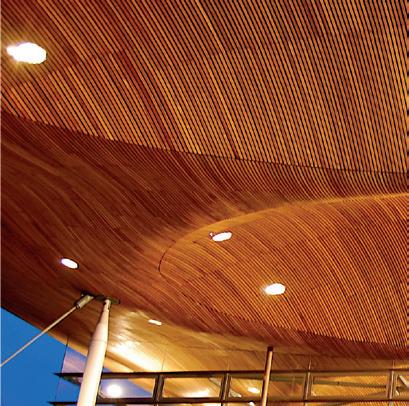

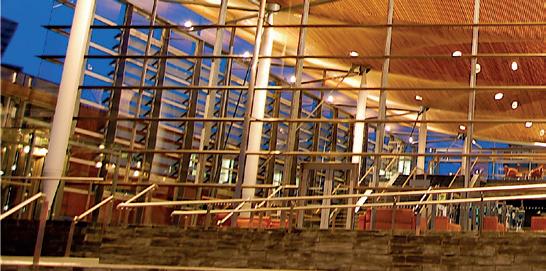


generally favour minor parties, as they benefit from the exposure of having an equal standing to the established parties.
Cameron’s insistence that the Greens must be involved is primarily a tactic to avoid them altogether, but also shows an unwillingness to agree to debates in which he would be attacked by UKIP from the right while Miliband would have no similar attack from the left by the Green Party. Cameron’s dislike of televised debates is well documented. In 2010 he felt they ‘sucked the life’ out of the campaign, and he is likely to resist any attempt to have him share a stage with his rivals. Televised debates rarely change elec-


Cardiff North AM Julie Morgan opened the topic of developing the higher education sector in Wales, with Mr Jones confirming a review of student funding and finance in currently underway with a call for evidence being issued. e AM praised the excellent researchers at Cardiff University, and the Labour Government plan to build on these results throughout Welsh Universities with ongoing investment in the Research sector, that will deliver long term social and economic support for Wales. e First Minister failed to confirm whether the current Welsh Govern-

ment grant for Welsh students will continue past the next election, stating it is a matter for the manifestos before next year’s Assembly elections. Leanne Wood brought the topic of A+E waiting times to the First Minister, with Carwyn Jones thanking Welsh NHS staff for their hard work during these difficult times for A+E’s across the UK. e First Minister stated hard work needs to be done to make hospitals attractive for doctors, in order to get the top consultants, but recruiting 1,000 more doctors, a Plaid policy, is not possible as there’s not enough doctors out there.
Leader of the opposition Andrew RT Davies stated the Welsh Gov-

tion results. Serious mistakes are rare, politicians are generally so well coached that everyone comes out around where they started. But televised debates offer primetime exposure to parties in a way that can only be good for democracy. With the probability of a hung parliament high, smaller parties are likely to have significant input over who becomes our next Prime Minister, meaning opportunities to give them exposure should be encouraged. Televised debates have the power to raise public awareness and raise the standard of political discussion, but threaten to be hijacked by partisan interests in a way that is damaging to the democratic process.
ernment is pumping money into the NHS as a knee jerk consequence of the troubles it has been facing, questioning how people can have confidence in how the £40 million invested a couple of weeks ago will be used efficiently. Carwyn Jones responded saying the UK government has also had to invest extra money into the NHS due to winter pressures, and the flu has been particular severe this year.
Welsh Liberal Democrats leader Kirsty Williams criticized the Welsh Government’s action regarding the foundation phase and literacy levels in Wales, quoting an Estyn report that shows literacy is at the same level in 2014 as it was in 2012. e Minister stated the program has only just started 5 months ago and it needs time to take effect, and will see results in the next few years.
Last week saw a discussion on stage 3 of the Higher Education Bill, which will make provision for a revised regulatory framework for higher education in Wales. e Welsh Government the bill will “assure the quality of higher education provision, enforce tuition fee controls and fee plan requirements and establish a
framework for the organisation and management of the financial affairs of providers of Higher Education in Wales whose courses are automatically designated for student support purposes.” Plaid Cymru proposed an amendment that would ensure that Welsh-medium provision is part of universities’ duties to promote equality of opportunity.
A proposed new racing circuit in Blaenau Gwent, that is scheduled to hold a Moto GP event in 2016 has been put on hold yet again and will go to a public enquiry. Conservative environment spokesperson Antoinette Sandbach led a short debate on environmental concerns over the circuit, and pressed the Welsh Government not to commit further public money to the project.
Having interviewed Plaid Cymru AM Jocelyn Davies last semester, who felt very strongly about pushing forward with this ban, last week saw the Welsh Government confirm that the plan has now been dropped, a disappointment for campaigners.
Televised debates offer primetime exposure to parties in a way that can only be good for democracy
The Islamist terrorist group Boko Haram attacked the town of Baga in Borno State, North East Nigeria on January 19th and continued to attack nearby towns for several days afterwards. e exact death toll is unknown, but the district head of Baga has said at least 100 people have been killed, while other estimates suggest the figure is over 2000. Satellite images show hundreds of buildings that have been destroyed in the attacks in Baga and thousands more destroyed in the neighbouring town of Doro Baga (also known as Doro Gowon), which Amnesty International reports has been “effectively razed to the ground”.
Many fleeing in overloaded canoes drowned, whilst some are trapped on islands in the lake
Borno is one of three states in North East Nigeria that has been in a state of emergency since May 2013 due to the threat of Boko Haram. As a result of these attacks, it is estimated Boko Haram now control 70% of Borno state, displacing tens of thousands of Nigerians. Many refugees have crossed Lake Chad to Cameroon and Chad, and the UN refugee agency reports that 7,000 refugees arrived in western Chad on the 9th of January. Some reports suggest that many fleeing in overloaded canoes drowned, whilst some are trapped on islands in the lake.
e Nigerian terrorist organisation Boko Haram was founded in 2002 but did not start its military operations until 2009 and was not designated as a terrorist organisation by the US in 2013. In 2014 it declared a caliphate in the areas it controlled.
“Haram” means forbidden; Boko Haram believes that all activities related to western society ought to be forbidden: from elections to wearing
On January 19th, Boko Haram forces crossed the border into neighbouring Cameroon, where they kidnapped around 80 people, most of whom were children. Yet while Cameroon’s forces responded quickly and have already freeing some of the captives, the Nigerian government have been criticised for their slow response to the attacks in Baga. President Goodluck Jonathan was quick to comment on the attack on Paris satirical magazine Charlie Hebdo on the January 7th that resulted in the deaths of 12 people, releasing a statement the following day condemning it as a “cowardly and ignoble attack by violent extremists”. However, it was not until the 12th of January that the government released their estimated death toll for the Baga attack of 150 people, a figure that is doubted by some amidst accusations of the government’s attempts to downplay the threat that Boko Haram poses. Jonathan did visit the town of Maiduguri in Borno state on January 15th and spoke to a crowd of IDP’s (internally displaced persons), reassuring them of the government’s efforts to overcome Boko Haram, but it being almost a fortnight after the initial attack in Baga, many doubt the government’s response will be effective.
trousers.
e group’s hatred of western education stems from the colonial period: parts of Nigeria were ruled by Britain. Many parents in these areas still refuse to send their children to “western“ schools. When the Muslim cleric Muhammad Yusuf founded Boko Haram and set up an Islamic school in 2002 many poor Nigerians and poor families from neighbouring countries sent


Media response has also been heavily criticised, given the relative lack of coverage of these attacks compared to the coverage of the Charlie Hebdo attack, particularly in mainstream print and broadcast news outlets. Whilst the Paris attacks made headlines and front page news for several days following the attacks, the Baga attacks received much less attention by comparison. Similarly, the international response has been drastically different in the two cases. Many world leaders joined the millions of people marching in an antiterrorism rally in Paris on the 11th of January, including David Cameron, German Chancellor Angela Merkel
their children there. e school allowed Boko Haram to recruit young Jihadis. e hatred of western education and the education of girls explains the abduction of 300 school girls in 2014. e Nigerian government failed to act when they were warned about the attack. It was not Boko Haram’s only attack on school children; in July 2013 42 staff and students were killed at a government school and in Febru-

and French President François Hollande, many of whom have not commented on the attacks in Baga. e lack of response to the attacks in Baga shows a worrying prioritisation of western tragedies over those elsewhere, and a greater care for western victims of terrorism than victims in Muslim countries or areas, cases which often result in much higher death tolls and occur more frequently. Perhaps more worrying is that the attack in Baga is one of many attacks by Boko Haram, a group which poses an immediate threat to the people of Nigeria and is becoming increasingly violent and dangerous with their growing influence and control.
and the government’s hare-brained ‘pet projects’ “ ”Lauren Boyd
IThe Nigerian government have been criticised for their slow response
ary 2014 they killed 40 school children and many other abductions have been documented by Amnesty International.
When their leader, Muhammad Yusuf, was killed in 2009 the Nigerian government claimed Boko Haram was finished. Unfortunately the attacks only increased under the new leader Abubakar Shekau, and the group forged links with al-Qaeda.
f the Conservative party leave government in May, the incoming government will be left with a large bill to fund conservative ‘pet projects’. e coalition have signed contracts for the construction of privately run youth super-prisons, known as secure colleges, strongly opposed by children’s charities such as the NSPCC, and institutions such as the Royal College of Psychiatrists and the Howard League. Secure colleges would detain boys and girls between 12 and 17. e alliance opposing secure colleges claim they pose “serious and unprecedented safeguarding risks.” e risks would be particularly great for the girls and younger boys detained there, though Penelope Gibbs, chair of the Standing Youth Justice Committee pointed out that “no child should be kept in a 320-bed warehouse”. e plans are expected to cost £85m to roll out with each place costing
£100,000 per year to provide. Sadiq Khan, the shadow justice secretary, said he would cancel plans for the “unwanted kids prison” but cancelling undoing the deals would cost millions of pounds.
ere has been a rush to sign other big contracts before the general election: a £1 billion privatisation of East Coast, which was highly successful when publicly owned; a £500 million to £1 billion deal for mobile phone companies to run emergency services communications and contracts for the £450 million privatisation of probation services amongst others. ere are concerns that contracts will be hastily drawn up and not properly scrutinised like the sell off of the Royal Mail. e coalition has doubled outsourcing to the private sector to £88 billion but outsourcing services does not necessarily bring value for money. According to the National Audit Office the
government is exposed to the possibility of widespread fraud. e chair of the public accounts committee said it was “utterly extraordinary” that G4S and Serco were allowed to bid for government contracts whilst being investigated by the Serious Fraud Office.
A new government coming in after the election may also have budget problems because of short sighted spending cuts. Aid to Sierra Leone to tackle Ebola has already had to increase by £100 million to provide treatment centres, safe burials and “urgent needs”. Conservatives and Labour MPs agree that the costs are down to the cuts to health aid for Sierra Leone, a former British colony, from £22 million in 2010 to £14 million that left Sierra Leone unprepared for a health crisis.
Cuts to social care, lack of investment in GP services and cuts to walk in services
are being blamed for the 830% increase in A&E admissions in England since 2010. e new system of university funding may prove more expensive as people are unable to pay back their loans. e government is deferring costs to future governments without ensuring the sustainability of their plans. It is not only the coalition guilty of short termism when making spending decisions. Private Finance Initiatives brought in by the Labour government allowed them to spend less in the short term but has led to more spending, and will lead to more spending in the future. e electorate need to be wary of short termist economic policies. Governments will continue to make unsustainable economic plans as long as they continue to win votes and deferring costs to future governments remains an easy trick.
No child should be kept in a 320-bed warehouse
Penelope Gibbs

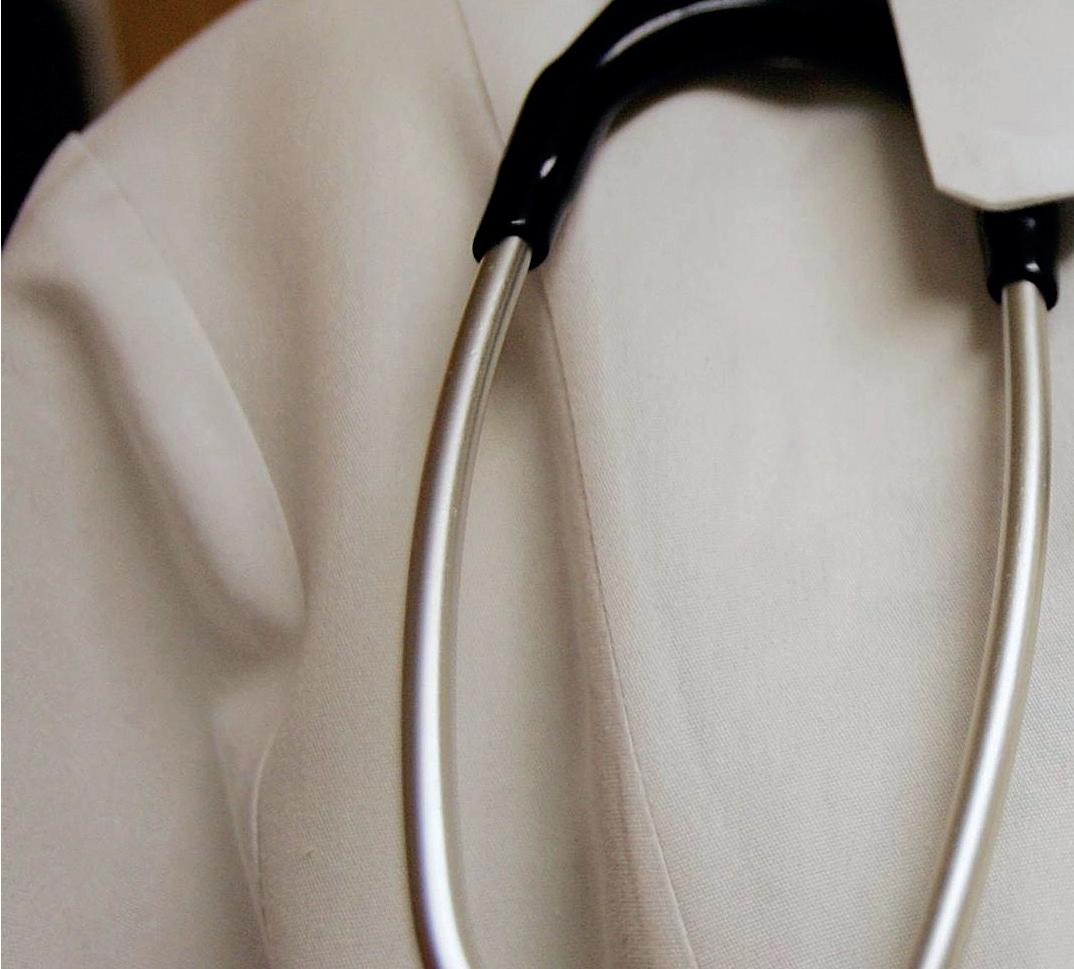
Pictured:
An example of why you shouldn’t always listen to science journalists (Source: xkcd.com)
Shanna Hamiltontweet us @gairrhyddsci
email us science@gairrhydd.com or visit us online at gairrhydd.com/science
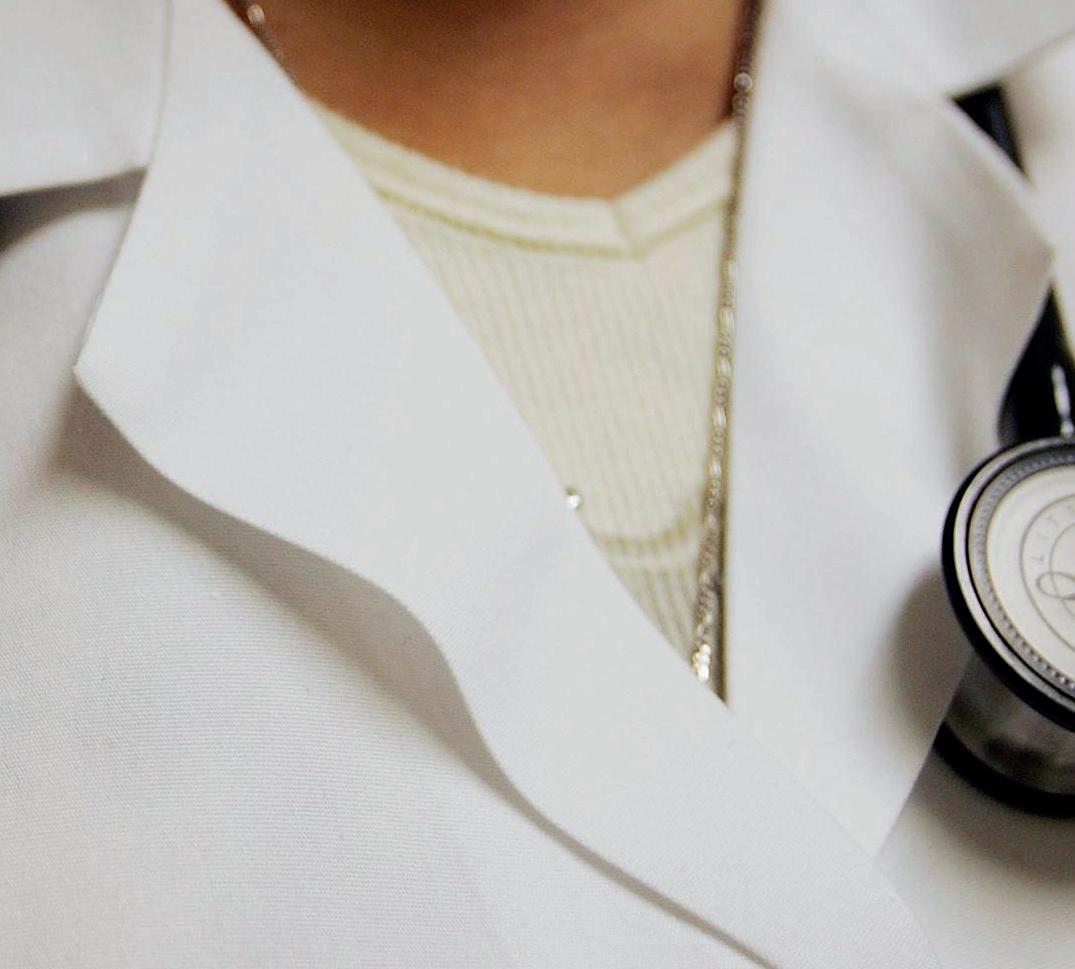
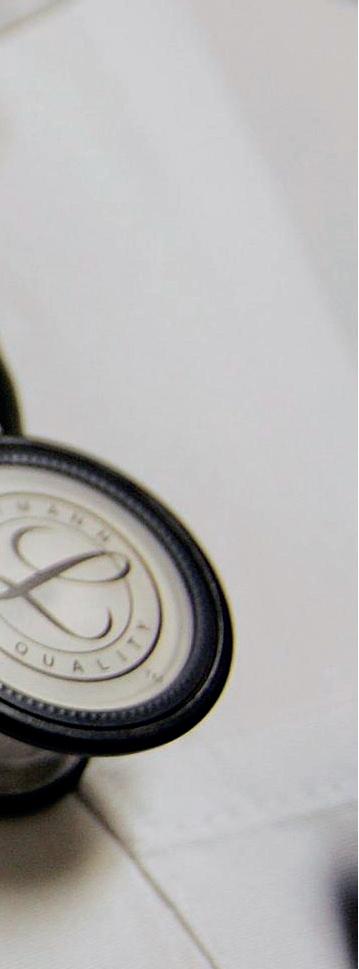
“Bad luck cancer” and the perils of bad health
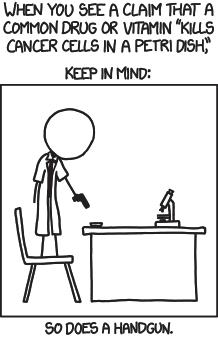
Without a doubt, poor health journalism is dangerous. ere is no question that reckless media coverage of the (disproved) link between MMR and autism, based on a poorly understood scientific paper, contributed to the decreased uptake of the vaccine seen today and potentially the deaths of many children from measles.
With this in mind, you would hope that journalists had learned their lesson. But as a paper broke into the media mainstream over the New Year, it has become clear this is not the case. We all need to remember what research findings actually mean in the greater scheme of health and science, what journalists should publish and what readers should believe.
A research paper published in major journal Science suggested that simple bad luck could explain two thirds of cancer. e message suggested that some cancers could not be prevented.
Sensational headlines prevailed: BBC News reported, “Most cancers bad luck”, while e Guardian went with the bold statement, “Two-thirds of adult cancer ‘down to bad luck’ rather than genes.”
According to biostatistician Bob O’Hara and science blogger GrrlScientist, “…these headlines, and the stories, are just bollocks. e work, which is very interesting, shows no such thing… Please journalists, get a clue before you write about science.”
Many other scientists were quick to point this out too. e study didn’t include all types of cancer, including the two of the most common, prostate and breast. e study also made no such claim that the majority of cancer cases are down to “sheer luck”. e data simply suggested there is a relationship between risk of cancer and number of cell divisions, with no mention of the proportion of cancers due to this division.
Although rather unclear and arguably easily misinterpreted, the study concludes that only a third of variation between tissues is attributable to the environment or genes. e media has jumped from talking about cancer rates in different tissues to cancer rates in people, a claim that is not substantiated by this work.
e International Agency for Research on Cancer, part of the giant World Health Organisation, published an unusual press release stating that it ‘strongly disagrees with the report…. is position could have serious negative consequences from both cancer research and public health perspectives.”
Some might argue that this is far off the scale of dangerous reporting in comparison to the MMR scandal. However, when members of the pub-
lic take to twitter and state ‘THANK YOU BBC!! Smoking doesn’t cause cancer. It’s just bad luck”, you cannot argue with the effect these stories can have. is contradicts the message of many organisations including Cancer Research UK: that “we can stack the odds of avoiding cancer in our favour if we embrace a healthy lifestyle”.
A recent study in the BMJ suggested that there is a strong association between this frightening hype in health reporting and exaggerated press releases. Press releases are normally the first story on a study, published by the university’s PR department and usually fact-checked by the research authors. Catherine Collins of the NHS argues that “academics should be ac-
countable for the wild exaggerations in press releases of their studies.”
However, Ed Yong, a prominent science blogger, was quick to remind journalists of their role in publishing accurately. “Blame is not a zero-sum game. Errors can arise anywhere; they are meant to end with us. We are meant to be bullshit filters. at is our job.”
Whoever wins the blame game, writers and scientists alike need to be aware of the damaging effects of hype in health journalism. In the words of e Stats Guy, a medical statistician blogger, “for the media to give the impression that lifestyle isn’t important, based on the misunderstanding of what the research shows, is highly irresponsible.” Readers beware.
Are the results based on human tests?
If the research wasn’t conducted on humans, there’s no guarantee the results apply to humans.
Correlation does not imply Causation
Even though two things happened at the same time, it doesn’t mean that one was the cause of the other.
One source or multiple sources?
Reliable scientific results can always be replicated
Is the test group representative?
If the study was conducted exclusively on 45 year old women, the results may well not apply to teenage boys.
Be wary of sensationalist headlines
If the story sounds too good to be true, it probably is!
Whoever wins the blame game, writers and scientists alike need to be aware of the damaging effects of hype in health journalism
Last December it emerged that the Conservatives have committed to repealing the ban on fox hunting if they are re-elected in May 2015.
e hunting ban has become a divisive political issue with disagreements often exacerbated by class divisions and a lack of understanding between country and city dwellers. is means that any discussion of the science surrounding fox hunting is often heavily coloured by personal agendas. But is the hunting of foxes on horseback with hounds an effective and necessary way to control fox populations and protect livestock?
First it is important to consider the impact that wild foxes can have on domestic animals and the livelihoods of farmers and smallholders. A 2002 study revealed that predation by foxes caused losses of only 0.4% of lambs and 0.3% of piglets born in any given year and 0% and 0.04% of chicken and turkey flocks respectively.
More importantly though, aside from lamb predation, no link was found between levels of predation
and fox population density meaning that almost all predation of livestock is likely due to problem individuals rather than all foxes in an area. is leads to the major question: is hunting with hounds an effective way to control fox populations and is control even necessary? When they were legal, traditional hunts carried out on horseback actually accounted for a near insignificant number of foxes killed every year when compared to more efficient methods.
A maximum of 22,000 foxes were killed every year by mounted hunts, which is a very small portion of the 340,000 foxes killed by humans every year. Motorist kills five times as many foxes every year than were killed by mounted hunts.
A study conducted by Baker and Harris in 2006 found no evidence that culling reduces fox numbers because foxes are capable of replacing lost numbers through a combination of migration from other territories and birthing large numbers of cubs. e fact is that whilst the killing of problem foxes is sometimes arguably necessary to pro-
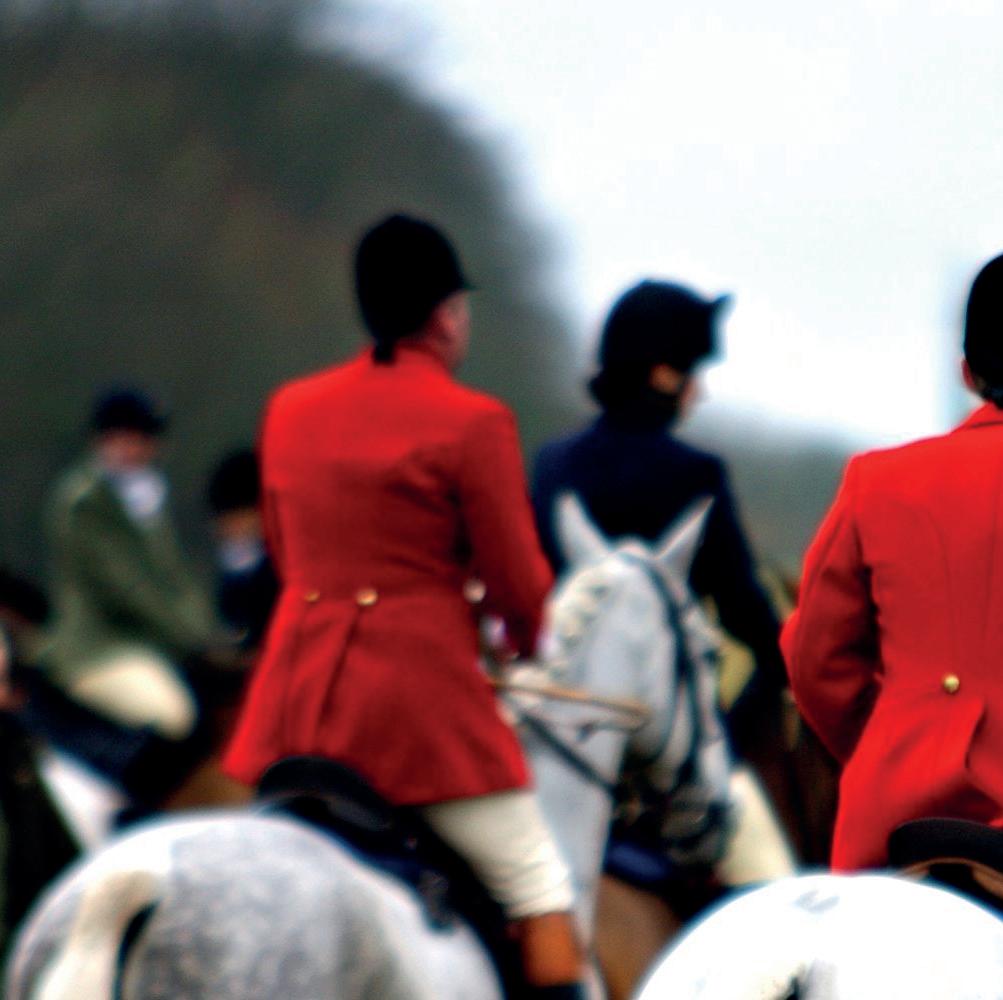

tect livestock, this is best done by a trained marksman using an appropriate firearm.
e only suitable control for wild fox populations in general is ‘countryside carrying capacity’, which is the number of foxes that any given area can support due to limitations such as food and den sites. If fox populations do rise too high then many females struggle to provide enough food for their young and numbers go back down again. To suggest human intervention is necessary to control fox numbers is a fallacy.
By ignoring questions of class, economics, and “community” that so often dominate the fox hunting debate, it becomes obvious that not only is

hunting patently cruel to the foxes, hounds, and horses involved but also that it is ecologically unnecessary. Like so many other species, foxes can only be controlled by the environment that they inhabit. Foxes themselves act as a control for species further down the food chain such as rabbits which would explode in numbers were foxes to disappear.
Such a nuanced and complex interplay between species cannot possibly hope to be replicated by 50 people on horseback. is is one of the myriad reasons why, if they are re-elected, the Conservatives must not repeal the most effective piece of animal protection legislation history.
“
... any discussion of the science surrounding fox hunting is often heavily coloured by personal agendas ”Shanna Hamilton
Over the holiday period, three young men died unexpectedly in southeast England after taking what they thought were ecstasy pills, red tablets stamped with the Superman logo. Police immediately investigated and suggested this tragedy may be linked to a further death on Christmas Eve, caused by a dangerous batch of drugs.
What the men assumed to be MDMA (3,4-methylenedioxy-methamphetamine) tablets, the chemical abbreviation for ecstasy, were actually tablets containing PMA (paramethoxyamphetamine). is drug has emerged as a toxic ecstasy substitute and has been responsible for more than 100 deaths in the UK. It also likely that deaths reported recently in the media from ecstasy are actually from PMA overdoses.
MDMA works by increasing activity of chemical transmitters in the brain. It causes these transmitters to be released from storage sites and increase activity. One of these transmitters, serotonin, is important in mood, sleep, pain and appetite. An excess release of serotonin, as seen in MDMA use, causes the elevated mood and euphoric effect associated with the party drug, as well as the unwanted risks of overheating and dehydration, or aller-
gic reaction.
PMA however, works slightly differently. Although the desired effects of serotonin production are induced, as in MDMA, PMA blocks the action of certain enzymes that counteract this. is means that PMA is far more toxic to the brain, causing the dangerous serotonin syndrome more quickly, where the body overheats and organs fail. e drug is also far more potent and slow acting than MDMA, with users often taking far too much too quickly before the effects of the drug even kick in.
Although relatively unheard of in mainstream media, PMA has been around for over 50 years, after being tested for beneficial mood effects and as a substitute for the hallucinogenic effects of LSD. e drug was discarded after failed experiments and made illegal under the United Nations drug convention.
Professor David Nutt, the outspoken neuropharmacologist who specialises in the effects of drugs on the brain, has said that these deaths “are a consequence of our current illogical and punitive drug policy.” Speaking about PMA and its close relative PMMA, he argues “their re-emergence is directly due to the international community’s attempts, via UN conventions, to stop
the use of MDMA by prohibiting its production and sale.”
e UN conventions have banned a number of precursor drugs to MDMA. As supplies of precursors diminish, drug chemists have turned to alternatives. Using aniseed oil as a substitute in the MDMA production process has led to the manufacture of PMA instead. Nutt says, “these substances only exist because of the bloackade of MDMA production. at in itself wouldn’t particularly matter if they were not more toxic than MDMA.
Nutt was sacked from the Advisory Council on the Misuse of Drugs in 2009 for his controversial criticism of current drug legislation and sugges-
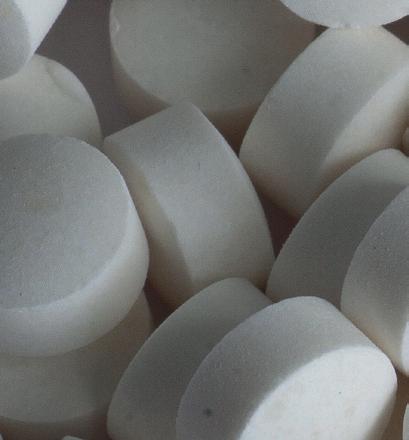
tions that alcohol is the most harmful recreational substance to society, ahead of both heroin and crack. He suggests that testing facilities should be made available to the public without fear of prosecution, as well as a more radical approach where safe doses of pure MDMA are available to registered users via pharmacists and drug use is decriminalized.
e Home Office however, condemn all forms of methamphetamine; “MDMA, PMA and PMMA are all illegal class A drugs. ey destroy lives, cause misery to families and communities, and this government has no intention of decriminalising them. No drug-taking can be assumed to be safe.”
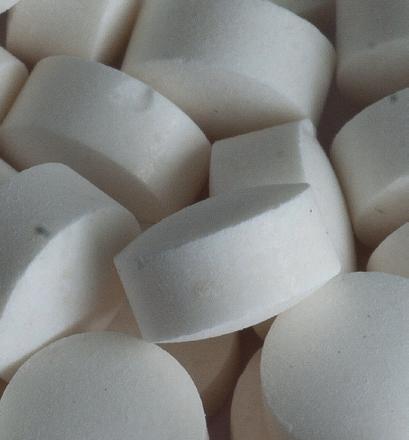
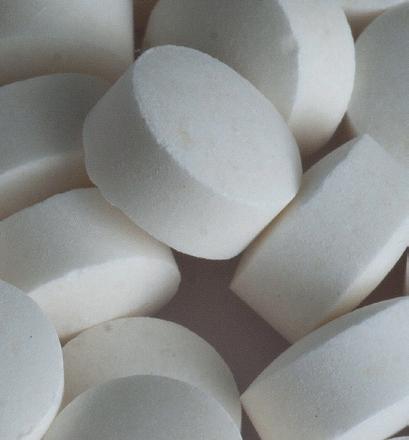



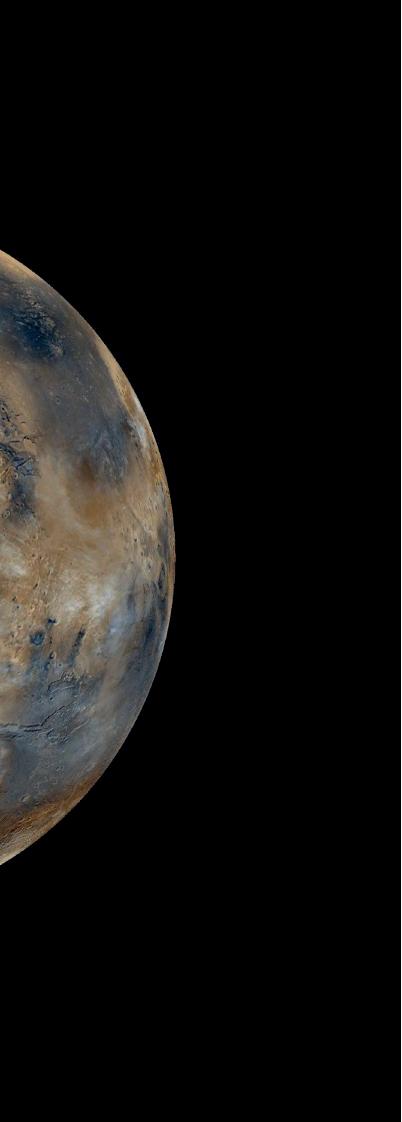
Space exploration has arguably never been so exciting. My passion for all things NASA has exploded; what began as a vague frustration reading lunar landing conspiracy theories, has snowballed to serious procrastination, live-streaming the Orion shuttle take off instead of running experiments in the lab. Although my PhD might be lacking attention, my critical outlook as a scientist hasn’t dissipated. Is it really possible for humans to reach Mars in our lifetime?
I fear that it’s going to be a little disillusioning for people, because it’s presented as if it’s for sure it’s going to happen...
2014 was a particularly eventful year in space investigation. e world held its breath as the Philae probe bounced and finally landed on a giant comet, after travelling a distance of 500 million kilometres over seven years. NASA successfully launched its new Orion spacecraft and it landed safely back on Earth in a mission to test its exploration capabilities. Astronauts Reid Wiseman and Alexander Gerst spacewalked in low orbit, leaving the International Space Station for several hours to carry out essential repairs on the craft. All amazing feats of technology that have left many, like myself, excited for what is to follow.
According to the 2014 Strategic Plan, “humanity’s future in space is bright and NASA is leading the way”. ey have ambitious and bold plans for the next two decades; to capture an asteroid and send astronauts to explore it, and send humans to Mars.
In the next 10 years, the Asteroid Redirect Mission (ARM) aims to capture an asteroid, redirect its orbit to make it circle the moon, and send astronauts to explore the alien terrain.
NASA chief scientist Ellen Stoffan says: “ e mission has critical technologies that we need to develop for our ambition to get people to Mars.” Sounds a little like the blockbuster Armageddon, and much like the film, the organization plan to demonstrate planetary defense techniques to deflect asteroids
and protect Earth if need be. e asteroid retrieval mission has already raised eyebrows and received widespread criticism. Committees chairman Lamar Smith of the NASA Advisory Council made a particularly damning statement: “ARM has many skeptics within the scientific community. And the experts who advise NASA recently stepped up their criticism. e NASA Advisory Council warns that NASA ‘runs the risk of squandering precious national resources’ if they move forward with ARM. One expert, Mr. Tom Young, went so far as to say that the ARM proposal “dumbed down NASA.”
It’s not just the ARM under scrutiny. Private organisations are now claiming that a human mission to Mars will be closer than NASA anticipates. Elon Musk, the CEO of American space transport company SpaceX, says: “I’m hopeful that the first people could be taken to Mars in 10 to 12 years, I think it’s certainly possible for that to occur. But the thing that matters long term is to have a self-sustaining city on Mars, to make life multi-planetary.”
SpaceX have been linked to the audacious private not-for-profit company Mars One, which rose to fame after announcing it had received over 200,000 applications for the chance to visit Mars on a one way trip with no return. e company claims that by 2025 it will send 4 members of the public to begin colonizing the planet, sending further groups every 2 years. It suggests costs will meet the $6 million mark, despite NASA suggesting it would cost hundreds of billions more.
Of course, this mission caught the attention of the public around the world, who poured in donations and uploaded their video applications, pleading to sacrifice their lives to take part in deep-space exploration. But after examination, the Mars One objective and the company itself seems
ominous to some. It has a core staff of only 3 people and details remain vague about the technology required to travel the 400 million kilometers from Earth. Most proposals on their website are theoretical, with companies listed as suppliers, including SpaceX, holding no current contracts with Mars One.
Commander Chris Hadfield, the astronaut famous for singing David Bowie on the International Space Station, is particularly critical of the Mars One project. “I fear that it’s going to be a little disillusioning for people, because it’s presented as if it’s for sure it’s going to happen…Going to Mars is hard.” An independent assessment of the feasibility proved his skepticism well founded, when it concluded that the oxygen required to grow plants on Mars would rise to deadly levels, and that colonists would die from asphyxiation only weeks after arrival.
If we do make it to Mars, whether it is with Mars One colonizing the planet, or with NASA as a flying visit, will humans be capable of surviving? Is it ethical to send us there?
e health implications of spending time in outer space have already been well documented. e list is extensive. Long-term weightlessness due to a lack of gravity causes muscles to waste, bones to thin and body mass to decrease significantly. e cardiovascular system slows as a drop in blood volume shrinks the heart muscle, with less to pump around the body. Fluid redistribution forces bodies to change shape, astronauts looking a little like the cartoon Johnny Bravo, top heavy, with ‘moon-faces’ and struggling to balance.
Furthermore, the risk of going blind is all too real: cosmonaut Valentin Lebedev lost his eyesight to progressive cataracts, brought on by a crushed optic nerve during his 211 days in orbit. is is all without mentioning the crippling space adaption syndrome that the majority of space travellers suffer, with
nausea, hallucinations and disorientation blighting them for days.
e unpleasant afflictions mentioned are far from a comprehensive list and it’s worth noting that the environment on Mars is very different to that of the Moon or Earth’s low-orbit. Galactic cosmic rays are a key issue for NASA to tackle, with “unacceptably high dose of radiation, mostly due to cosmic radiation on the journeys between Earth and Mars”, according to Ellen Stofan. In the outbound trip alone, an astronaut would be exposed to 15 times the annual radiation limit for a nuclear plant worker, in just 180 days.
Technical incidents with risk to humans occur in space too. Although 2014 was an unquestionable feat of space technology, there were several accidents that cannot be ignored. VSS Enterprise - a Virgin Galactic SpaceShipTwo test flight vehicle - catastrophically broke apart mid-take off, injuring the pilot and killing his colleague. e Falcon 9 of SpaceX crashed after attempts to land the reusable rocket on a floating barge failed, scuppering plans to recycle parts.
Even this month, 3 astronauts had to take refuge in the Russian segment of the International Space Station, after the detection of a potentially hazardous ammonia leak threatened their safety.
Catching an asteroid and landing humans on the moon are clearly difficult missions that many argue, at this moment in time, are not feasible, or safe. As David Parker, Chief Executive of the European Space Agency points out: “ e history of space exploration is marked by both success and failure.” e sentiment from John F Kennedy in 1962 is as relevant now in 2015 as it was then: “We chose to go to the moon in this decade and do the other things, not because they are easy, but because they are hard.”
Mars is the planet most like Earth in our Solar System (Flickr)
Humanity’s future in space is bright and NASA is leading the way
tweet us @gairrhyddsoc email us societies@gairrhydd.com or visit us online at gairrhydd.com/societies/
Monday 26th January
A Cappella Society ‘Refreshers’ A Cappella Taster Session
6pm – 8.30pm Large Chemistry Theatre, Main Building
Student Enterprise
Think Green noon - 5pm Graduate Centre, Students Union
Skills Development Service
Personal Effectiveness Course In a week!
26th January 2pm - 30th January 4pm Bute Building and Students’ Union
Skills Development Service
Communication Course In a week!
26th January 5.30pm - 30th January
7.30pm Bute Building and Students’ Union
Global Health Student Network
We Have A Drug Problem! 7pm - 9pm
Tuesday 27th January
Erasmus Society Curry Night
7pm - 10pm Kismet Indian Cuising
Wednesday 28th January
Tea Society Board Gaming at Rules of Play
1.30pm - 6pm
Meet outside the SU at 1.30pm or at Rules of Play, Castle Arcade at around 2pm
Tamil Society Pongal Galatta 2015 6pm - 10pm Kumar’s Restaurant
Thursday 29th January
Fashion & Beauty Society Paris Trip 29th January midnight - 1st
February midnight Paris
Student Enterprise Financial Planning 6pm - 8pm 4J, Students’ Union
Jazz Society Jam Night
Non-members entry £1
8.30pm-11.30pm YARD Bar, Brewery Quarter, CF10 1AD
Student Minds Meet and Greet
6.15pm – 7.15pm 4F, Students’ Union
Friday 30th January
Act One
The Count of Monte Cristo
See article for more information 7.30pm – 9.30pm YMCA Theatre, Roath
Saturday 31st January
Cardiff University Students’ Union LGBT+ History Month: Welcome to History Month 8pm - 3am Bar Icon, Charles Street Cardiff

Heath Park Fair
If you’re one of our Heath Park students, come along to our fair to join clubs and societies, as well as finding out more about Union services. Let’s just say we’re going to be giving away some sweet freebies.
26th January noon-2pm IV Lounge
Ice Skating in Y Plas
Y Plas is being turned for one day only into a fully functioning synthetic Ice Rink. Sessions are half an hour long and cost £5 including skate hire.
27th January noon-8pm Y Plas
Companies Fair
Featuring external organisations including free pizza from Dominos, Santander, Target Jobs, Teach First, Endsleigh and Blackwells. Also, internal departments and community companies.
28th January 10am-4pm
Welsh Varsity Launch Party
Welsh Varsity takes over YOLO for one night only. Wear red and get ready for the big build up to tickets going on sale. Say no more: we’ve got a few amazing surprises planned.
28th January 9pm-3am
Clubs and Societies Fair
ought you missed out by not signing up to your dream club or society in September? It’s not too late! You can find a club or society that suits you at our clubs and societies fair! 50 of our best sports clubs and societies will be in Y Plas. You’ll get a 50% discount on Guild or AU fees, plus if you sign up on the day you could win Amazon vouchers and other prizes.
29th January 10am-4pm
Welsh Varsity tickets on sale
29th January 10am-4pm
Dodgeball Tournament
Our Annual Dodgeball competition is back for Refreshers!
Channel your inner Ben Stiller and get involved in one of the most loved events on the AU Calendar. Yes societies, it’s open to you too.
£30 per team, so £3 each. Find more information on cardiffstudents.com
29th January 6pm-10pm Great Hall

Have an event you want covered? Email: societies@ gairrhydd. com
ESN (Erasmus Student Network)
Cardiff is a society that welcomes Erasmus, International and Home students to participate in a number of fun events, whether it be trips around the UK, language socials or nights out. It’s a great opportunity to meet new friends from all over the world.
We currently offer membership for £6 which includes discounted prices for members on our trips, free access to language tandem cafes (£1 for nonmembers) and we also have ESN discount cards which offer our members lots of European wide discounts for an entire year. Our most prominent offers are with British Airways, Brussels Airlines and Blah Blah Car. For more information on discounts, visit esncard.org.
Every three weeks we hold a language tandem cafe which is really popular with both Erasmus students and home university students who are keen to practice their own lan-
guage skills, we offer a wide range of languages and everybody is welcome, even if you don’t speak another language there are always people looking to practice their English. We have free snacks and occasionally free entry into the YOLO club night for those who want to continue the fun!
We offer reduced-price trips to var-
ious places that Erasmus and International students want to go in the UK. is semester we’ve asked the current Erasmus students where they’d most like to visit and having taken this information on board we’re currently organising trips to Dublin, Manchester and Liverpool, Cambridge, Bristol, Big Pit and a day trip to the Gower.
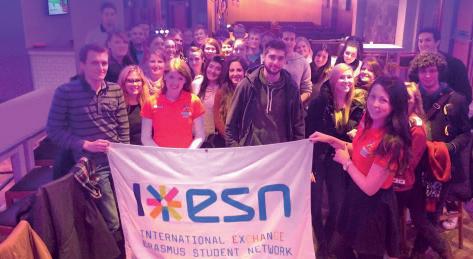
Alongside these trips we hold weekly socials, be it curry evenings or something slightly more traditional such as Afternoon Tea with homemade cakes, and of course we host the occasional night out.
As a European wide organisation, we also organise trips with our other UK sections. Last semester we participated in a UK wide trip to Edinburgh with other students from various UK universities. e trip was a huge success and this semester we’re organising another ESN trip, this time to Amsterdam from the 5th-8th March. e whole trip only costs £132 including transport and accommodation with breakfast, and VIP entry into club nights.
We really can’t wait to meet all the new Erasmus and International students arriving this semester and show them all the amazing things that ESN Cardiff has to offer!
For more information, search ESN Cardiff on Facebook.
Rhiannon Lewis Pictured: ESN membersBook Club is a small, friendly society that meets every Wednesday. ey choose books to read together based on topical themes. For example, in October they read books related to Black History, and in November they read books related to Halloween.
is year they have a lot of exciting activities lined up! On 28th January they will be visiting the Bay to
explore the Roald Dahl landmarks. is is a free Give It A Go event which is also listed below. ey will be meeting at the front of the union at 2.30pm and all interested are encouraged to attend!
In February, their book theme is LGBT+ history month, and as well as reading some great books, they’ll also be making book marks and learning more about the authors and people

All events must be signed up to in advance. To sign up and for more information, go to cardiffstudents.com/giveitago. Unless specified, events are free and no special equipment is needed.
Sports
Rugby Union
4.30pm 30th January 2015, Talybont 3G
You will need: Appropriate sports clothing, trainers/moulder studs and a bottle of water.
Email: parsonssr@cardiff.ac.uk
Fencing Club
5.30pm Every Monday / 7.30pm Every Friday, Talybont Sports Centre
You will need: loose tracksuit bottoms (no shorts), a comfortable top and trainers and a bottle of water.
Email: callinae@cardiff.ac.uk
Jiu Jitsu Club
6.00pm Every Monday, Talybont
Dojo
You will need: Loose sports clothing, avoiding jeans and belts, and a bottle of water.
Email: PengBF@cardiff.ac.uk
Lacrosse Club
6.30pm 27th January, Talybont Astro
You will need: Appropriate sports clothing and trainers, mouth-guard if possible. All other equipment provided.
Email: anjulis@aol.com
Complete Fitness
4pm 1st February, Strength and Conditioning Centre (Park Place)
You will need: Appropriate gym clothing, a drink and desire to become better.
Email: president.cucf@gmail.com
Tae Kwon-Do Club
7.30pm 26th January, Talybont Sports Centre
You will need: Appropriate gym clothing and a bottle of water.
Email: cutkd@outlook.com
Scuba Diving Club: Underwater Hockey
6.30pm 28th January, Talybont Sports Centre
Cost: £5
You will need: swimming costume and towel.
Email: SubAqua@cardiff.ac.uk
Creative
Anime Society Film Screening
7pm Every Friday, Large Shandon Lecture eatre, Main Building
Email: Animesocietynew@cardiff.ac.uk
Anime Society Workshop
6pm 27th January & every two weeks, Room 4G, Students’ Union
Email: Animesocietynew@cardiff.ac.uk
Manga Society Library
6pm Every Monday, e Lounge, 3rd Floor
Students’ Union
Email: Animesocietynew@cardiff.ac.uk
Book Club Visit to the Bay!
2.30pm 28th January, Union Front Steps
You will need: Warm clothing & money for travel
Email: PalmerA10@cardiff.ac.uk
behind the stories. eir regular meetings begin on the 4th February at 6pm in room 4H of the Students’ Union.
If you enjoy reading, and want to meet people who are interested in books, then come along. e joining fee is currently £3, for more information please contact BookClub@cardiff.ac.uk.

Creative Writing Society
6.45pm Every Tuesday, Union Front Steps
Email: B.guymer@Cardiff.ac.uk
Sci-Fi & Fantasy Society
6.45pm Every Monday, Union Front Steps
Email: B.guymer@Cardiff.ac.uk
Music, Dance & Performance
Slash Hip Hop Dance Society
8pm Open Class Every Monday CF10 in the SU, 28/01, 8-10pm.
You will need: appropriate dance clothing, footwear and a bottle of water.
Email: slashdance@hotmail.co.uk
Expression Dance Society
5.30pm 28th January
Cathays Community Centre
Cost: First Class is FREE
You will need: appropriate dance clothing, footwear and a bottle of water.
Email: gloverba@cardiff.ac.uk
FAD Dance Society
3pm 28th January, Y Plas
You will need: appropriate dance clothing, footwear and a bottle of water.
Email: emma.birch@live.com
DanceSport
Every Tuesday. Great Hall, Students’ Union
6.00pm Salsa £1
7.15pm Latin & Ballroom £2
9.00pm Technique £2
You will need: appropriate dance clothing, footwear and a bottle of water.
Email: cardiffdancesport@gmail.com
A Cappella Society
6pm 26th January, Union Front Steps
Email: cuacappellasociety@gmail.com
Opera Society
2pm 1st February, Room 4J, Students’ Union
Email: OperaticSociety@cardiff.ac.uk
City of Cardiff Concert Band (Windband) 6.30pm 28th January, Concert Hall, School of Music
You will need: Your instrument Email: WilliamsMS2@cardiff.ac.uk
Languages
Give it a Go Conversation Class: Welsh
Every Wednesday Afternoon, 1.30pm Wednesday 28th January, Sir Donald Walters Boardroom, Students’ Union
German Film Series: Evet, ich will Run by the School of Modern Languages 6.30pm 27th January
2.03 John Percival Building
Healthcare Basketball (Heath Based) 2pm Every Saturday
Heath Sports Hall
You will need: Appropriate sportswear, trainers and a bottle of water.
Email: okorochaci@cardiff.ac.uk
Healthcare Orchestra (Heath Based) 7pm Tuesday 27th January 2015 Chapel (B5) Heath Hospital
You will need: Your instrument and music stand.
Email: cardiff_healthcare_music@hotmail. com
Healthcare Singing (Heath Based) 7pm ursday 29th January 2015 Chapel (B5) Heath Hospital
You will need: Your instrument and music stand.
Email: cardiff_healthcare_music@hotmail. com
Medics Ladies Hockey (Heath Based) 4pm Every Sunday Talybont AstroTurf
You will need: Appropriate Sportswear and Trainers
Email: cmlhc2014@hotmail.com
ought, Discussion & Culture
Debating Society 7pm Every ursday, Bute Café Email: debatingsociety@cardiff.ac.uk
Model United Nations Society 6pm Every Tuesday Students’ Union, Room 4H Email: rabbitta@cardiff.ac.uk
Terror in the Name of God, Krishna Consciousness Society 6.15pm 26th January, Room 4G, Students’ Union Email: ruparelia@cardiff.ac.uk
Sikh Society: Feed the Homeless 2.30pm Every Wednesday, Back of SU, by Magic Wrap
You will need: Warm clothing Email: midlandgarseva@cardiffsikhsoc.org. uk
Welfare & Volunteering
Jailbreak Introduction (SVC and RAG) 28th January from 3:30pm, Room 4J, Students’ Union
LGBT+ Event: Brunch 11am Every Saturday, Tucker - Salisbury Road
tweet us @gairrhyddsoc email us societies@gairrhydd.com or visit us online at gairrhydd.com/societies
Abhishek Sharma C
ardiff University’s Asian Society competed in an inter-university Bollywood Fusion dance competition called ‘Just Bollywood’. e competition was held at Imperial College on the 13th of December 2014. e talented team representing Cardiff University consisted of eighteen students who trained exceptionally hard for three months to form a flawless dance routine. e team captain and lead choreographer, Priya Patel, was aided by Siri Potluri (arts coordinator), Harpreet Kaur and Harshil Mazny to choreograph the challenging routine. Each team in the competition was given a unique theme and a prop to
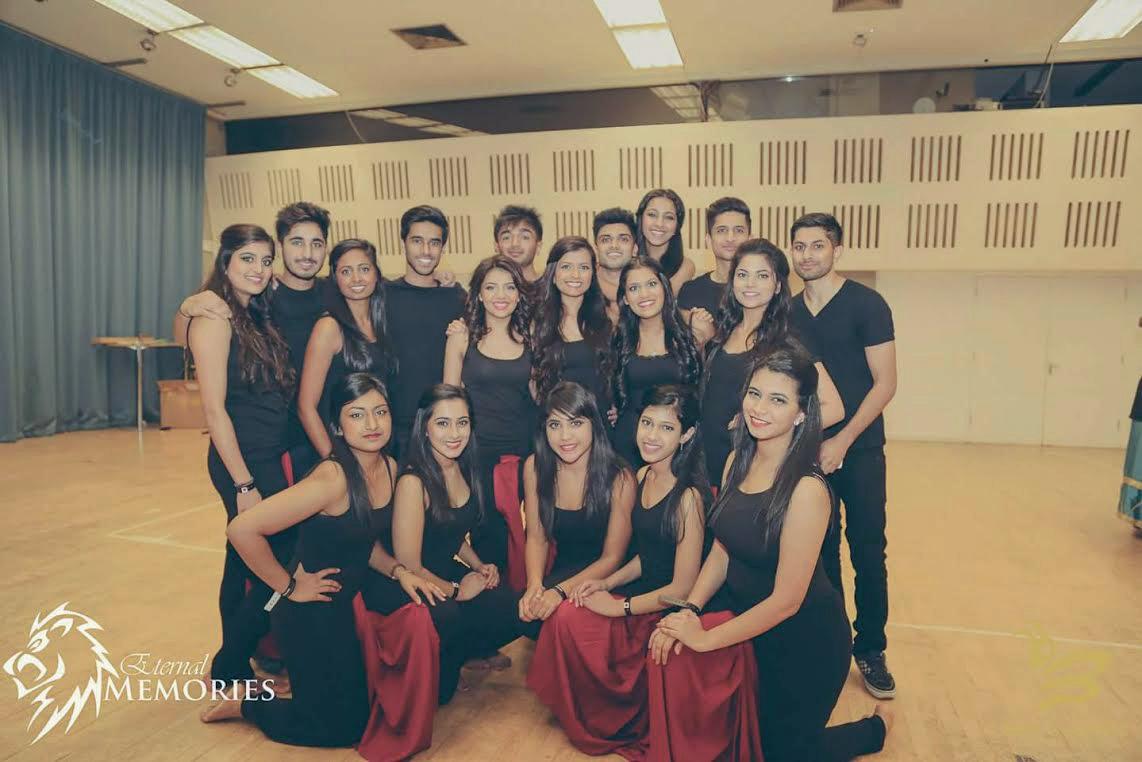
facilitate their dance routine. e theme assigned to Cardiff University was ‘Brad Pitt’ and the prop was ‘a book’. e first task placed on the Asian Society’s team captain was to select the best team of dancers. Auditions were held in October where numerous members of the society auditioned. Following the selection of the dancers, the group had to master a difficult yet mesmerizing routine to be successfully selected to perform at the national competition. A total of 14 universities applied to enter the competition however only six were selected to perform in London.
‘ eRhys
Aretelling of the classic novel ‘The Count of Monte Cristo’ by Alexandre Dumas is coming to the YMCA Theatre in Roath on Friday 30th January.
Cardiff University’s theatrical society Act One presents a brand new production which reimagines the well known revenge thriller, setting it in the poisonous world of investment bankers. The play has been adapted by Cardiff University Journalism graduate Rhys John Edwards and is performed by a talented cast selected from Act One. Unlike the novel and the popular 2002 film starring Jim Caviezel and Guy Pearce, this adaptation follows a young journalist interviewing renowned serial killer Edmond Dantes, who recounts his tale of betrayal and greed.
The director, Rhys Edwards comments: ‘the real challenge in adapting this piece and setting it in modern day was attempting to
Priya Patel states that: ‘one of the biggest challenges was having dancers of different abilities and backgrounds and teaching them dance genres that could be completely new to them. It is also hard to control such a big group of people’ However, she felt she overcame these challenges by ensuring everyone was focused during practice sessions. e team also needed to ensure that as students they did not fall behind on their university projects and exams as a result of taking time out to practice for hours every day.
Cardiff Asian Society’s main aim was to put Cardiff University on the national university map,
something they undoubtedly acheived. Following the competition they have had several offers such as choreographing a dance routine for a new Hindi movie and invitations to compete in other competitions including the Battle of Bollywood in the famous London’s O2 arena.
I would like to say a massive congratulations to everyone in the team for putting their best foot forward, no pun intended, and beyond all, enjoying the experience. e standard of the competition was very high and Cardiff University finished in an excellent 4th place. You can view Cardiff ’s performance at: http://youtu.be/Y4f5Mq2m7ZE
find a place in our world in which these characters could inhabit. The villains of Dumas’ tale are aristocrats, but nowadays societal hierarchy is a lot more complex: the monarch are no longer the oppressors of our society, more often considered a waste of time or celebrated for wearing nice hats at the races. The villains of our generation are those selfinterested and greedy corporate entities-in this case-bankers. As soon as I found the place of our modern day villains, the rest began to gradually fall into place.’
Performing for ONE NIGHT ONLY at YMCA Theatre, The Walk, Roath, Cardiff with tickets £5. Doors open at 7pm with the performance starting at 7.30pm. Dan Huntley, the assistant director adds: ‘it’s actually a lot of fun, certainly not what you’d expect. It will be enjoyable for those who are fans of the original and those who have never heard of it!’


 Pictured: Asian Society Just Bollywood Team
Pictured: Asian Society Just Bollywood Team
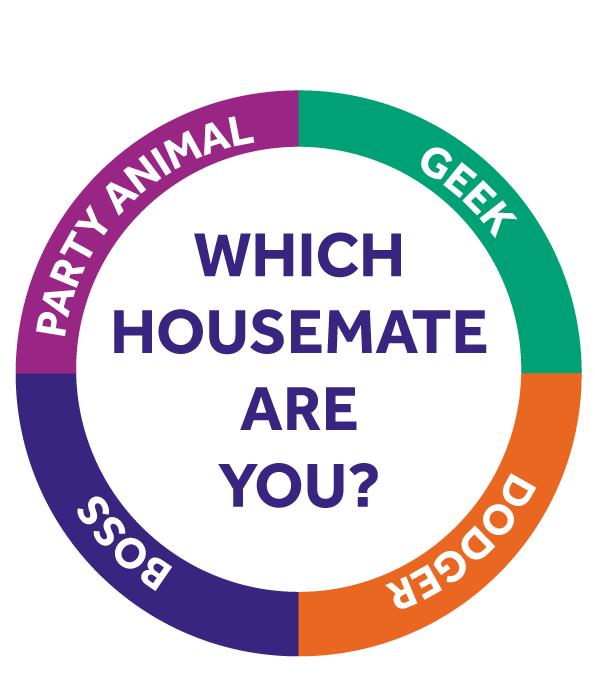





tweet us @HeathparkCSU email us nagletj@cardiff.ac.uk
Hello and welcome back to Park Life! I hope everyone had a lovely Christmas break and for all of you who had January exams, I hope they went ok!
It’s that time of year again, nominations for my job are open. If you fancy running for my role or want to know more about it, please email on VPheathpark@cardiff.ac.uk or call into see me on the third floor of the Students’ Union for a chat. I have also recently written a blog that talks about what I have been up to in my role so far, make sure you check it out as it will give you a really good insight into my day to day activity. e blog can be found on http:// www.cardiffstudents.com/news/ article/6013/Why-VP-Heath-ParkCampus-is-the-best-job-in-theworld/.
Lots of really exciting things are
coming up in the next few months at the Heath! On February the 21st we have the Heath Park Games which is a sports tournament for anyone and everyone to get involved in, there will be football, netball, egg and spoon races and tug of war! Tickets will be going on sale for this very shortly so keep your eyes peeled.
We also have Heath RAG coming up too between the 16th and 21st of February, this year we will be raising money for the following charities: St Jerome’s, SKIP, Anthony Nolan and the official Cardiff RAG charities which include: War Child, Help for Heroes, World Child Cancer and Place2be. e money raised will be split four ways between St Jerome’s, SKIP, Anthony Nolan and Cardiff RAG charities. Drop me an email if you want to get involved.
Have a great fortnight!
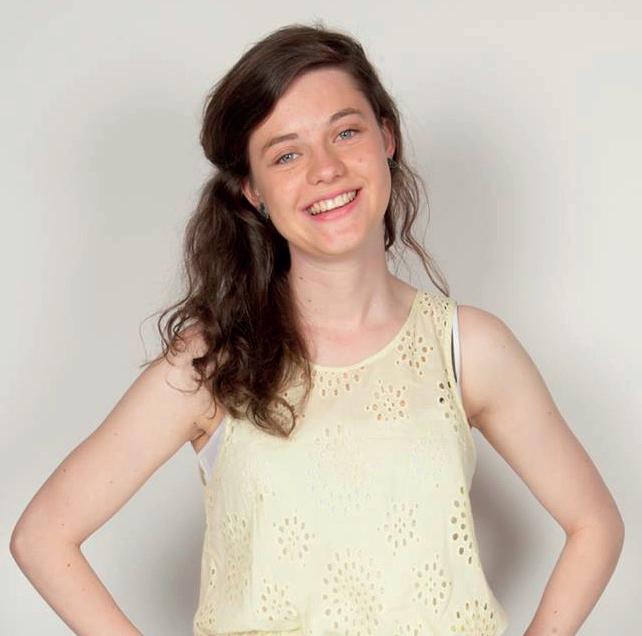
You are probably aware that at the moment nominations are open for next years officer team within the Students’ Union. You are also probably aware that the officer team consists of full and part time roles giving students the opportunity to represent sports, societies, women, mature students, students with disabilities, postgraduate students, education, student welfare or, as President of the Students’ Union, the entire student body within the Union and University. All students at the University are eligible to stand for a position and studying a course at Heath Park campus does not restrict you to only running for VP Heath Park Campus. is year there are two Heath Park students who are part of the officer team with the Students’ Union. Claire Blakeway, a radiographer is currently working in the full time role of VP Heath Park and, another radiographer, Vidya Brainerd is this years students with disabilities officer, a part time role she is completing alongside the second year of her degree.
Claire spoke to Park Life towards the end of last year about her time so far in the role and believes that she is developing a wide range of skills that will help to progress in her future career. As well as representing students she has the responsibility of being a
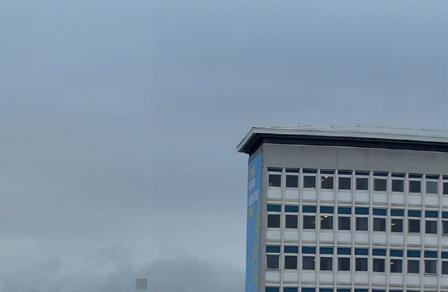
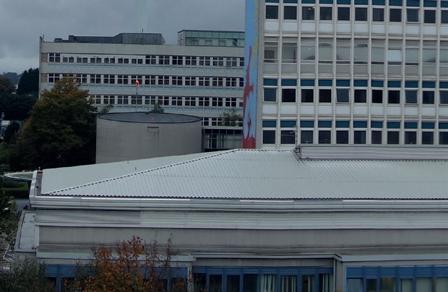
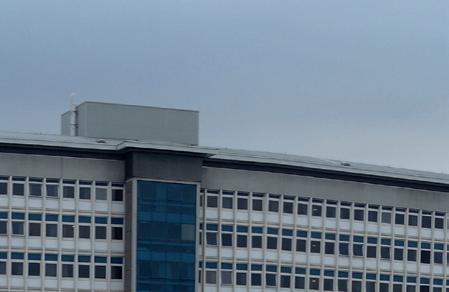
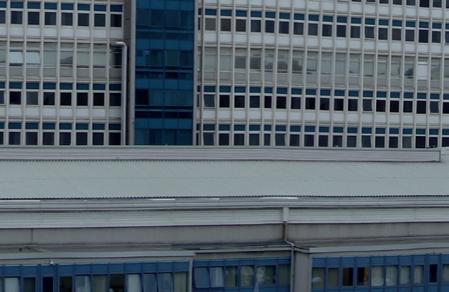
director and trustee for the Students’ Union, helping to ensure that the Union is run in a way which is sustainable, protecting its existence for future generations of Cardiff students. Claire has organised several events for students already during her time in the role such as Medics’ Varsity, Union services events in e IV, ‘Where’s Wally’ at Playzone and is currently working on events for Heath Rag and Re-Freshers.
It is not just the sole responsibility of the VP Heath Park Campus to represent Heath students and improve our student experience.
VP Welfare, Faraz Allaudin is proud that he has been able to arrange some welfare events at the Heath and was pleased that the meditation event, held as part of Mind Your Head Week was so well attended. He agrees with Claire in that the experience he is gaining as a trustee and director, so early in his career is invaluable and is a unique opportunity that students or those about to graduate should seek as it can only serve them well. One of the aspects of the job he enjoys the most is ‘the freedom to pursue projects, starting them from scratch and building them up has a fulfilling feeling and a great skill to carry into any job’.
At the start of this academic year the Students’ Union presented their
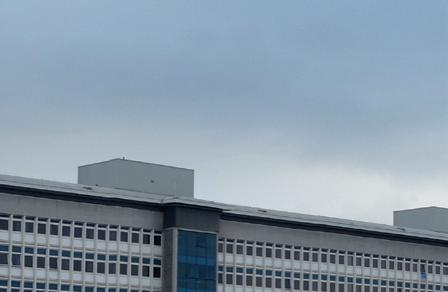

three year strategy and this has a section devoted to improving the student experience at Heath Park. e current SU President, Elliot Howells was part of the team which devised the strategy as well as leading this years team in implementing its delivery. Elliot is proud that he has witnessed ‘a real drive across the whole organisation’ in working to engage more with Heath students and deliver this part of the Union strategy. He is excited, as is Claire, that this strategy also includes a focus on ‘developing physical spaces’ and that the university also see the need for an ‘increased student-owned space and a students’ union on site’ as a growing priority for students at Heath Park.
Elliot describes his time (almost two years) as a full time officer as ‘hugely transformative and rewarding’ and is clearly passionate that all students should run for whichever position they feel they can make the biggest impact for students in. He has developed skills in finance, HR and corporate governance as well as becoming more diplomatic and assertive when negotiating, skills which may take greater time to acquire in other graduate roles. Certainly, as Elliot has yet to graduate and will be returning to his final year of study in September, they are skills he would be unlikely to be




taught as part of his degree.
e skills which the full time officers develop are formalised in a qualification from the Institute of Leadership and Management which can be completed during their time in office and is highly sought after by leading employers.
ese skills that can be learned or developed are skills that many of us as healthcare students, working as part of professional teams while on placement already have and can be easily transferred to a leadership role within the Students’ Union. ere should be few barriers preventing you to run for VP Education or VP Sports because you are a physiotherapy student, medical student, nursing student or midwife rather than studying history, journalism or physics.
Apart from having a large picture of yourself on the Students’ Union building, developing skills, gaining new experiences, achieving a qualificaition and being paid to live the student life for a year there is one more reason why everyone should consider running: Elliot, as SU President sits on many university committees one of which is called ‘the University Masterplan committee’ – if that fills you with intrigue (and make you want to do an evil laugh) then run!
Nominations close on 5th February.


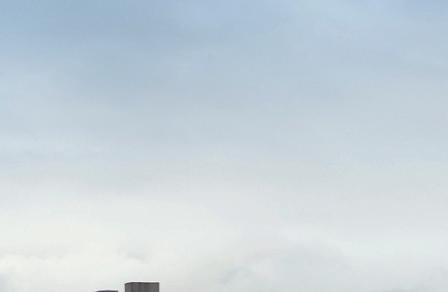
 Pictured: Clare Blakeway, VP Heath Park
Tim Nagle
Tim Nagle
Pictured: Clare Blakeway, VP Heath Park
Tim Nagle
Tim Nagle
And more importantly - should they?
In a recent edition of Gair Rhydd
I wrote about the use of Twitter by healthcare students. Just after writing this, the Assistant Chief Constable of Avon and Somerset Police, Paul Netherton took to Twitter complaining that there were no mental health beds available for a child who needed help.
I found this story interesting for several reasons. Firstly, the fact that a child (or any person) can be kept in a police station as a place of safety under the Mental Health Act for longer than a person can be detained under arrest without charge is shameful. The police have a really difficult role under the Mental Health Act in that they are responsible for the safety of the public and the person who is unwell. If there are no available hospital beds for the person then a police cell will be safe but the police are not mental health professionals and are not sufficiently trained to help an individual crisis. If you are in crisis and spend up to 72 hours over the weekend in a police station, do you really believe that it
would be an environment conducive to any kind of recovery? A constant flow of people being brought to cells drunk after a night on the town would be pretty scary to a 16 year old girl, locked in a cell and distressed.
That this came to my attention from Twitter is also interesting. It would appear as though there is a criticism of local CAMH (child and adolescent mental health) services as the Chief Constable is questioning whether it is right that this girl has been left for so long with police. Without knowing full details of services within the area, I would imagine that inpatient services have been cut and restricted heavily in recent years. NHS Trusts are, rightly so, reluctant to place young people in an adult psychiatric ward, general hospital wards or A&E departments are not set up to be able to help those in crisis.
The Twitter account appears to be an official account for the Police force so this is not the voice of an individual but the voice of a professional. I do not think that I
John Steele on how you can improve your employability with SDS
would ever be able to, or want to use Twitter in this way as a nurse. Talking about patients and their situation or discussing services seems to come close to the line of what the NMC would allow but I really do love this guy! He has had a person in custody, initially arrested but later considered unwell and he wanted her to have help. His team would have tried all they could have to find a bed by speaking with the local CAMHS team but when this failed did something else. The tweet caught the attention of the press and a suitable bed was found.
In the Park Life before Christmas we interviewed Sheila Hunt, the former Dean of the School of Healthcare Sciences. She said that health professionals need to be advocates for our patients, the NMC also state this in the code of conduct for nurses and midwives. This tweet is a great example of a professional advocating for a vulnerable person in his care but it is debatable whether it would have been an appropriate comment for a nurse, for example,
to have made. Would it have been against their professional code of conduct or would that nurse have been advocating for their patient in a responsible way?
A recent report by the Health Select committee has found massive problems with children getting access to CAMHS services as these have been hit heavily by financial cuts. A bed, if available may be in a distant part of the country or on an adult ward, waiting times are increasing to access community services, early intervention services are merging or disappearing altogether and all of this while demand for these services appears to be rising.
I saw a comment on Twitter in reply to Sky News report of this story questioning if it is newsworthy as it probably happens all the time. YES it is newsworthy! Any time we fail a vulnerable person it is worth examining the situation and learning from it. We should not hide away from the difficult issues such as where is considered a place of safety for those
We should not hide away from the difficult issues such as where is considered a place of safety for those in crisis. It is time to change!
 John Steele
John Steele
The Skills Development Service (SDS) will be running a course in personal effectiveness at Heath Park in February and March. The course, which is free and has no exams, awards a certificate of professional development signed by the Vice-Chancellor and SU President, and will demonstrate you have skills such as team-working, problem solving, effective time management and a level of commercial awareness – all skills which future employers inside and out of healthcare settings are seeking. The course will run over five Wednesday afternoons from 18th February and will be between 2-4pm. If you are looking to answer
questions such as ‘Why am I always doing my essay at the last minute?’, ‘How can I be flexible enough to complete tasks I don’t like doing?’ and ‘What differentiates an optimist from a pessimist?’ then this short course may be of use.
A CBI survey recently found that 35% of employers were dissatisfied with the business and customer awareness of graduates, skills that are needed in all fields of work in order to be competitive and deliver value for money.
To book a place on the course, or for more information please contact John Steele at sds@Cardiff. ac.uk. Places on the course are limited so please get in touch soon!
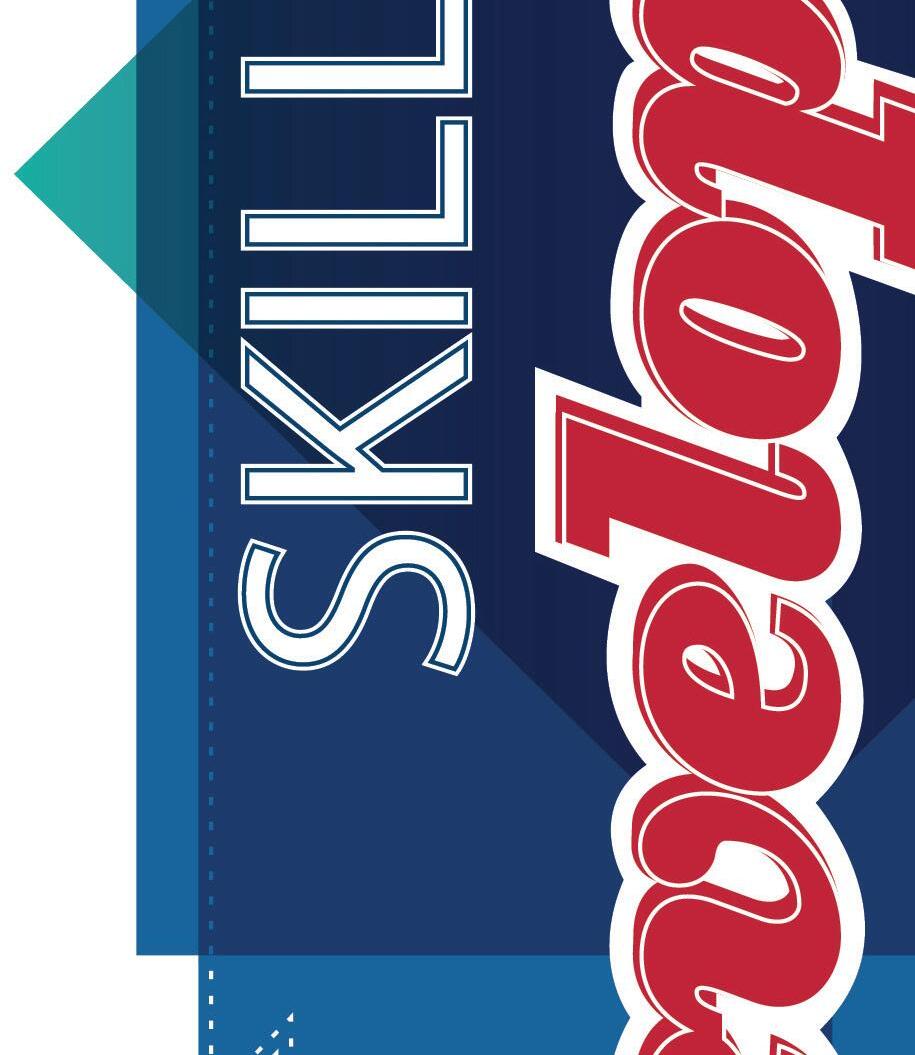







Wednesday 22nd April
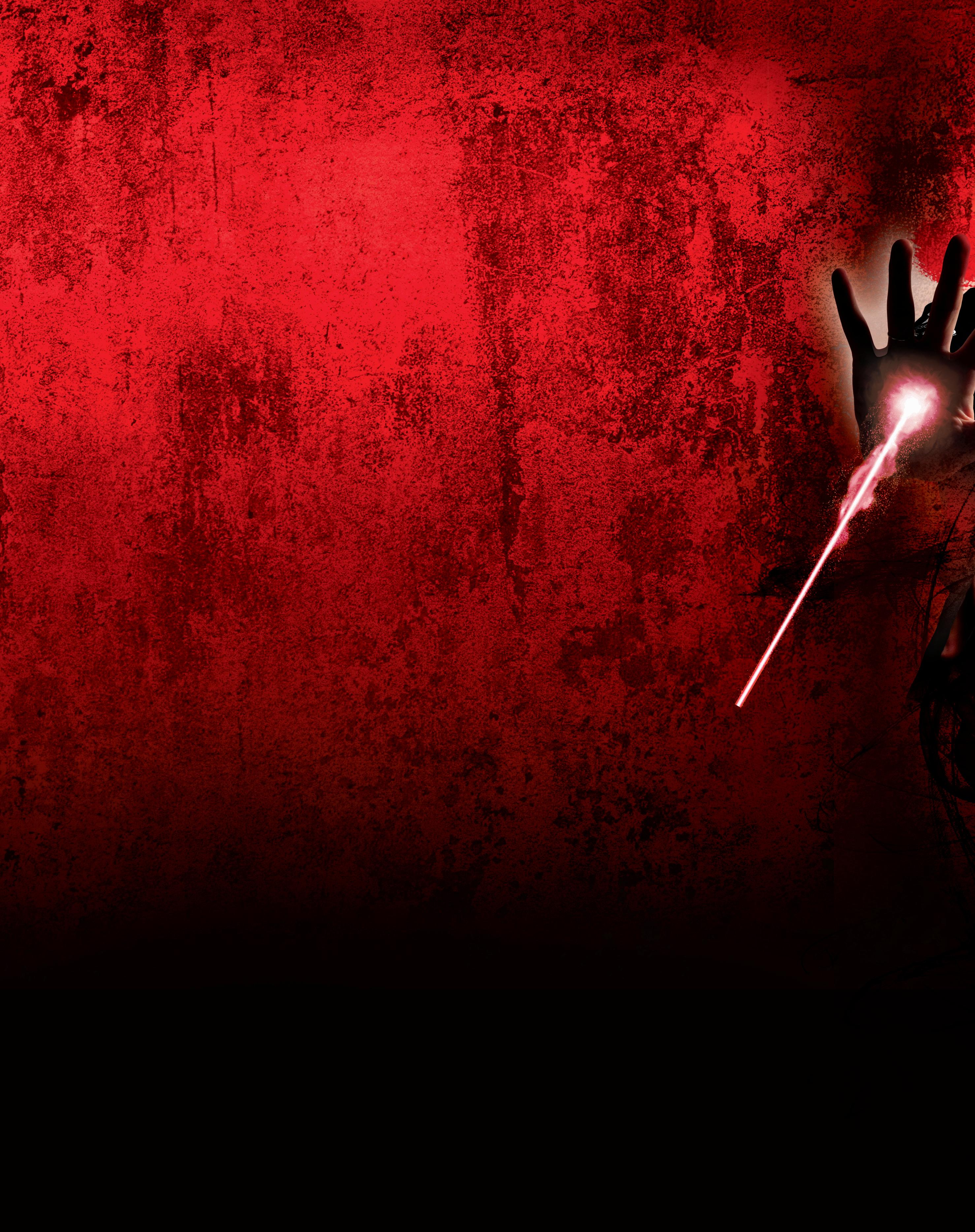
#teamcardiff

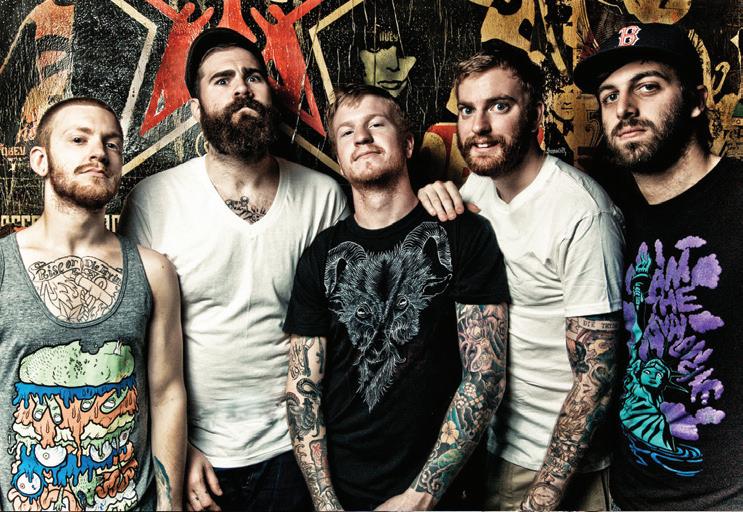
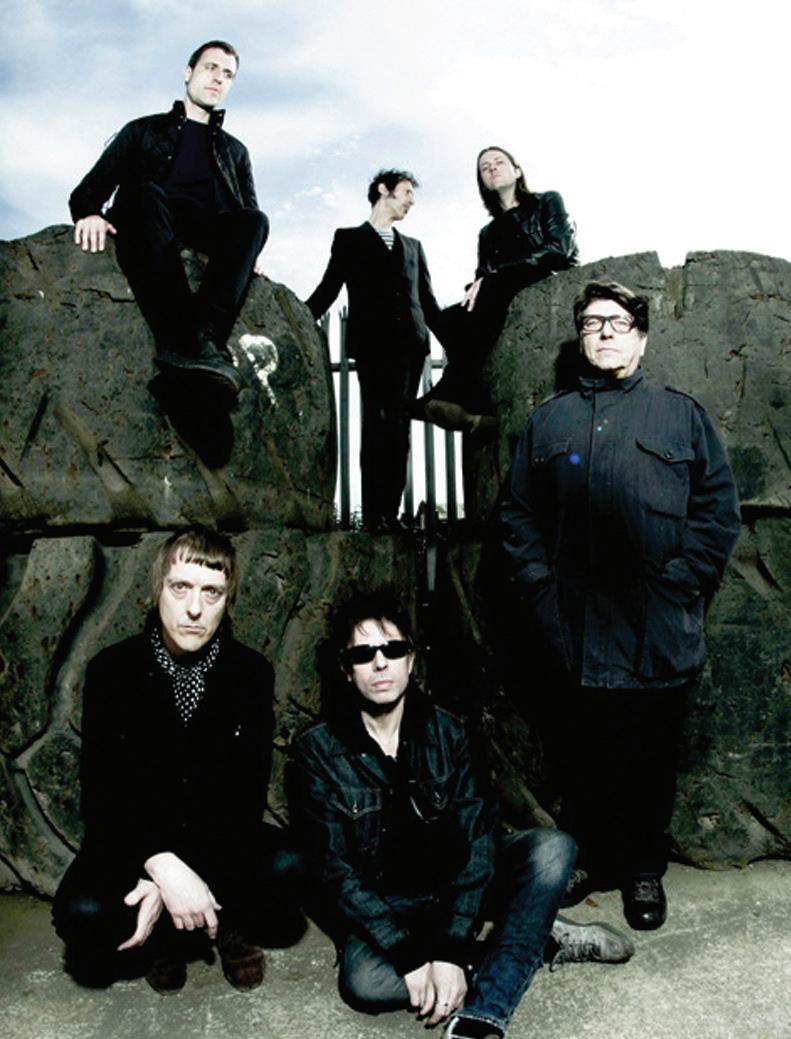


Neck Deep 26/01/15, £10.50 ADV
KERRANG! Tour 2015 13/02/15, £16.50 ADV
Enter Shikari 17/02/15 - SOLD OUT
Chelsea Grin 17/02/15, £10 ADV
The Jesus And Mary Chain 27/02/15, £25 ADV
Treatment presents... Ten Walls Live 27/02/15, £18.50


Stiff Little Fingers 08/03/15, £18.50 ADV
The Stranglers 10/03/15, £23 ADV
Sleaford Mods 10/03/15, £10 ADV
Halestorm 13/03/15, £15 ADV
Four Year Strong 24/03/15, £14 ADV
Lower Than Atlantis 09/04/15, £12 ADV
Limehouse Lizzy vs Livewire AC/DC 17/04/15, £20 ADV
Continued from back page

No one can deny that Tan has removed the financial uncertainty that plagued the club in the 2000s, but many supporters feel that the rebrand damaged the soul of a club that has played in blue since 1908, while the movement away from the traditional bluebird to the Welsh dragon as a symbol of the club also riled fans.
Supporters groups have performed a number of marches against the rebrand, and at Christmas announced a stepping up in these protests, leading Tan to initially reaffirm his commitment to red before performing a u-turn in the New Year.
In a statement Tan said: ‘My mother, Madam Low Siew Beng, a
devout Buddhist, spoke to me on the importance of togetherness, unity and happiness. Cardiff City is important to me and I wish to see it united and happy.’
is seemed to be the basis for the decision to revert the club’s colours and badge, another example of Tan’s eccentric leadership style that seems to be based on a mix of strong business decisions and superstitions in equal measure.
“We’ll always be blue” has long been the chant emanating from all four corners of the Cardiff City Stadium, and Tan will hope that his reversal in colours will in turn result in a reversal in fortunes for a City team
experiencing a season of inconsistent results under Russell Slade, whose mid-season appointment has done little to improve the team’s chances of promotion.
However, in the Championship, supporters will only stick around in large numbers along as the club is giving them a reason to, and Slade is hoping that the sudden resurgence in support will spur his team up the league.
ere is a feeling though that Tan’s decision is financially motivated at its core and is only the minimum expected at a time of fan unrest where Cardiff City are struggling to live up to expectations.

The sport is enjoying a real boost in popularity, particularly with young people
The Cathays-based Cardiff City Table Tennis Club are aiming to re-launch their sport as the new student sport. Having opened two years ago as the only dedicated table tennis centre in Wales, they have yet to fully capitalise upon their location in the student heartland, on the cusp of Talybont and Cathays.
Table tennis is among the large number of minority sports that have seen a boom in both exposure and participation since the London Olympics in 2012. is may be helping the sport and its athletes in being taken more seriously, as according to Club Director Nathan omas, “People seem to think of table tennis as more of a game than a sport.”
A major part in this increased popularity for table tennis specifically has been an emphasis on its social aspects, as omas pointed out: “With table tennis bars opening all across the UK at the moment,
Wthe sport is enjoying a real boost in popularity, particularly with young people. We’re really keen to be a part of that and so we’re hoping to build
a strong base for the club within the student community.”
omas, himself an international para-athlete, added that the club
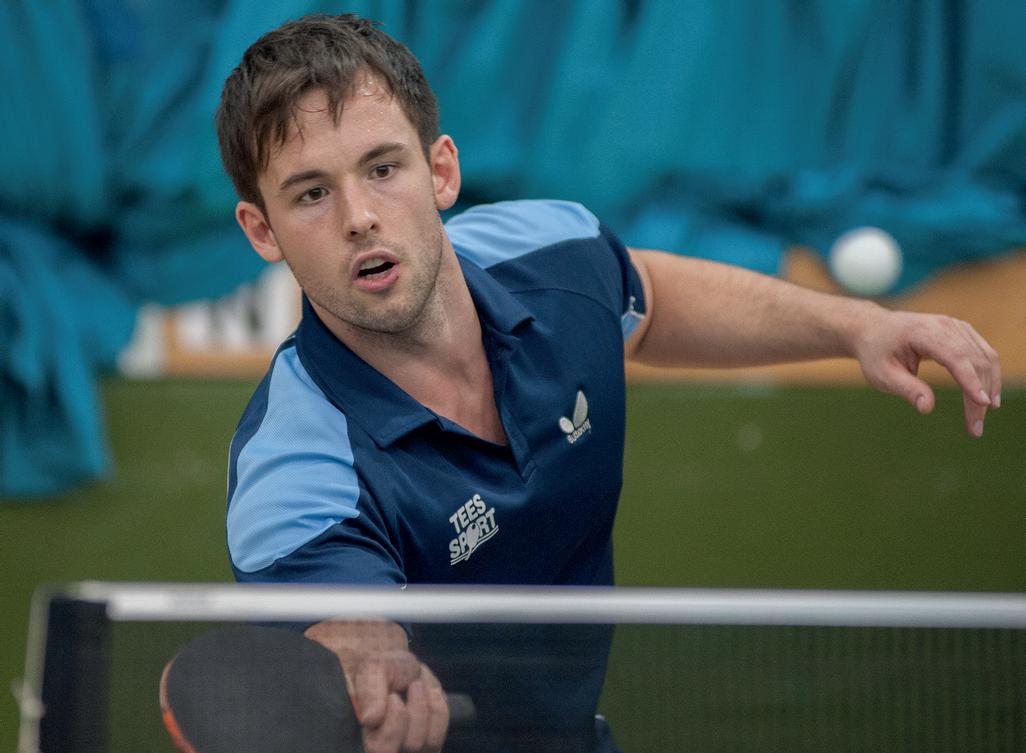
are looking into getting an alcohol licence with the possibility of hosting beer pong nights in the future. Inter-university beer pong tournaments could also be in the pipeline.
e club are not only interested in the recreational side of the sport, however, with their teams competing at the highest domestic level in the British league system and several international-level athletes based with them on Maindy Road.
A welcoming attitude towards all is clearly the aim of the club, with omas commenting, “It’s very much something that can be played at all levels. It’s proper exercise that doesn’t really feel like exercise. It’s fun, no matter what a player’s ability.”
More information about Cardiff City Table Tennis Club, including the times of their sessions and their prices, can be found on their website, as well as their Facebook and Twitter accounts.
arren Gatland has named his squad for the 2015 Six Nations Championship, which start in Cardiff when Wales host England on February 6th.
e Welsh Director of Rugby has named four uncapped players in his squad this Spring, including New Zealand-born Cardiff Blues fly-half Gareth Anscombe. ere were firsttime call-ups also for Scarlets’ Rob Evans, Dragons’ Tyler Morgan and for Blues’ Kristian Dacey, who have all impressed in recent months for their respective regions.
Sam Warburton will once again captain the side and forms part of a familiar yet threatening set of forwards. e front row boasts experience aplenty in the shape of Gethin Jenkins, Paul James, Richard Hibbard, and Samson Lee, who was so dominant in the Autumn, and looks set for another big series. It’s difficult to look past the pairing of Alun Wyn Jones and Jake Ball teaming up when England visit the Millennium next month, but Wasps’ Bradley Davies and Racing
Metro’s Luke Charteris do add strength in depth in the second row. Faletau, Lydiate, Tipuric and King make up the remainder of forwards.
Despite turning in improved performances of late, Wales’ 95 timescapped prop Adam Jones was once again excluded by Warren Gatland and his chances of making that World Cup squad look all the more slimmer as a result. To the surprise of many, there was also no inclusion of Cardiff Blues’ Josh Navidi: the young back-rower has been a star performer for Mark Hammett’s Blues side this season, but it seems he will have to wait a while before adding to his one national cap. It is to the bemusement of most though that Blues’ Scott Andrews has earnt a call-up. Andrews, 25, has not started a Pro12 match this season and has in fact played more minutes for Welsh Premiership outfit Cardiff RFC than the Blues.
In the backs, Mike Phillips and Rhys Webb picked themselves at scrum-half, but the major talking point prior to the announcement, was the men he would
choose at outside-half. Ospreys Dan Biggar always looked likely to be called up, however the inclusion of Scarlets’ Rhys Priestland was not so nailed on following a recent series of uninspiring performances in the national shirt. Leicester’s Owen Williams had put in a number of hugely impressive displays in the Aviva Premiership of late and was up for consideration, but “Gatland’s Law” as it is widely known, meant the twenty-two year old always faced a difficult task in persuading the New Zealander that he deserved the call-up over home-based Biggar, Anscombe and Priestland. Gloucester’s James Hook also appears to have suffered as a result of this.
In the midfield, the inclusion of Morgan is Gatland’s only addition from the Autumn, with Roberts, Davies, Williams and Allen all in once again. George North and Alex Cuthbert are likely to partner on the wing in two weeks time, however young full-back Liam Williams, who has been one of Scarlets’ top performers this Pro12 campaign and is beginning to make a
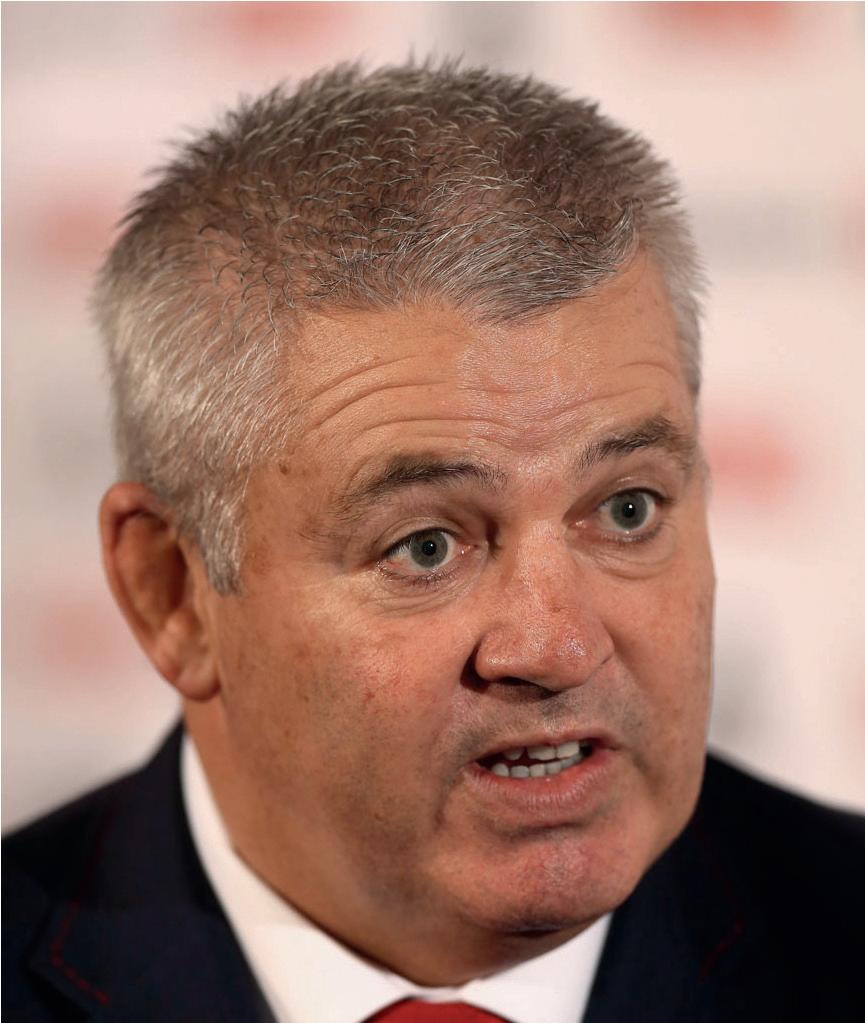

name for himself, could start in place of either the Saints’ or Blues’ pacemen. Leigh Halfpenny is of course included and will surely take on full-back and kicking responsibilities for most of the tournament, while Hallam Amos is also in the squad as back-up.
It is to the bemusement of most that Blues’ Scott Andrews has earnt a call-up
tweet us @gairrhyddsport email us sport@gairrhydd.com or visit us online at gairrhydd.com/sport
Cardiff Blues..............................104 Rugby Rovigo Delta.....................12
Friday 16th January saw an impressive victory for the Blues, crushing Italian side Rugby Rovigo Delta with a recordbreaking score of 104-12 at Cardiff Arms Park. The Blues scored a total of 16 tries and 12 conversions.
As strong favourites against the Italian side, the Blues knew the importance of securing the win as well as a valuable bonus point, with London Irish currently top of their European Challenge Cup group.
The region’s previous highest points total in European competition was the 62 they registered en route to beating Calvisano back in 2009. Their winning margin of 92 points was also a record, far surpassing the 58-point margin over Connacht in 2008.
The Blues had made a total of 12 changes to the team that suffered defeat in their previous game in the Pro12 against Leinster. The first
breakthrough came in the eighth minute with Lloyd Williams going over the line followed by many of his team mates. Williams later scored a second, with Richard Smith scoring a hat-trick and Ellis Jenkins claiming a brace.
The impressive performance was not simply a result of the Blues’ attacking dominance, but also in defence, with instances such as Cory Allen racing back over 60 metres to stop the opposition scoring a try after they had intercepted.
The bonus point was earned within 20 minutes and it was not until the second half with the Blues up 73-0 that Rovigo were able to claim back two tries and a conversion.
Despite such efforts, however, the Italian side were unable to hold off the impressive Blues from going over the 100 score mark with replacement half-backs Gareth Davies and Lewis Jones going over the line in the last four minutes.
The next stage in the European Challenge Cup will see the Blues
look to take momentum from this impressive performance when they will travel to France to take on Grenoble in the final match
of the pool stages. This will be a more difficult game for the side but their record win has certainly placed them in a good position.

Tathan McShane’s side has qualified for life in Division 1 for the second half of the IMG season, and have set theirsightsonthetrophy,despitestiff competitionincludingCUCCFC.
What is your role as captain?
As a captain I was responsible for designing and finding sponsors for our new kit this season, as well as setting up training sessions and finding out people’s availability before games. I did my hamstring last semester so there was a lot of sideline shouting too!
What is your toughest job as captain?
e toughest part is making sure everyone gets a fair amount of game time. Our squad is about 20 strong, but recruiting can be a bit of a struggle because our school is 80% girls.
Who do you look forward to facing the most?
hopefully we can do the double.
What is your highlight for the season so far?
So far this season it is probably the 3-1 win against JOMEC, but we’ll try to improve again in this next part of the season.
Who is the most skilful? e biggest tackler? And the biggest character?
e most skilful by far is our striker Wrayon Vassell; he has bags of ability and is very strong on the ball. e biggest tackler would be Luke Simpson, and our biggest characters has to be Nizam; I’ve never seen anyone get quite as passionate about IMG as he does.
Who is the Raheem Sterling of the team?
foot you just know it’s going straight off target.
If you could pick any Liverpool player to join OPSOC who would it be?
I guess right now I’d pick Coutinho just to have that magic moment when you’re one down and knackered. No one can run anymore just to get you that chance.
How has the season gone up to the halfway point?
We were a bit disappointed not to make the top league. We threw away the game against Law A and dropped some points in a poor draw against Opus. We tailed off towards the end of the first phase.
What are your targets for the second phase?
Lloyd We threw away the game against Law A and dropped some points in a poor draw against Opus. We tailed off towards the end of the first phase “
Our biggest rivals have to be Pharmacy; we have a rivalry that comes from having a varsity every year, which we won this year so
The Cardiff Blues’ challenge for the Pro12 play-offs may realistically be over given their lowly position of ninth in the table. However, the Cardiff-based region are still very much in the hunt for a place in next seasons Rugby Champions Cup. The top six positions in the Pro12 ensure automatic qualification into next season’s premier European club competition, with the seventhplaced finishers being jettisoned into a wildcard qualification playoff with the seventh-placed finisher in the Aviva Premiership.
e Sterling would probably be Mark Duff y - he has pace to burn and can run all day but finishes a bit like Sterling with his left foot! Mark is the sort of player who you give the ball in your half, he’ll beat three people with pace, get into the box, have an easy square option but because of his left
The winner of that Anglo-Celtic fixture will face a two-legged play-off against the seventh-placed finisher in France’s Top 14 for a place in next season’s Champions Cup. Mark Hammett’s side currently trail sixthplaced Connacht by 11 points, and they are six points behind seventhplaced Edinburgh. Qualification for the Champions Cup must now become their priority, with the second-tier Challenge Cup lacking the quality of opponent and by extension the crowds and the money of the Champions Cup.
We’re really optimistic for the second phase and we think every game is winnable. ere are a lot of good teams in our division and we know we won’t have an easy game. Despite that we think we can have a good go at winning our division; fingers crossed we don’t pick up any injuries!
Despite a fairly disappointing season up to this point, there are minor signs that the Blues may finally be on an upward curve. With former All Blacks hooker Mark Hammett being reasonably new to his role as Blues Director of Rugby, it was always going to take some time for the hard-nosed Kiwi to enforce his structure and gameplan upon his squad. Against Leinster in a recent Pro 12 fixture the Blues may have slipped to defeat due to lock Jarrad Hoeata’s sending off, but the Blues played with a huge

amount of cohesion and pattern, whilst their pack of forwards look a far more combative and physical unit than they did at the start of the season.
However, with the quality of player the Blues have on their books they must now begin to turn promising performances into winning results. Hammett’s side may be eleven points adrift of sixth place, but they will meet three of their rivals for European qualification in the latter part of the Pro12 which very much keeps the Blues’ season alive.
Raheem Sterling in action for Liverpool
 Steffan Thomas
Pictured: Richard Smith registered a hat-trick
Pictured:
Steffan Thomas
Pictured: Richard Smith registered a hat-trick
Pictured:
With two Welsh Olympians being cleared of knowingly taking banned substances, elite athletes face new concerns over how to push the boundaries
Aweek before the opening ceremony of the Commonwealth Games in Glasgow last summer, it was revealed that Welsh 800m runner Gareth Warburton had failed a drugs test. Two days after the opening ceremony, it emerged that his teammate Rhys Williams, the reigning European Champion in the 400m hurdles, had also fallen foul of the testers.
Despite the pair protesting their innocence, both were branded as cheats and a shadow was cast over the Welsh athletics team, of which Williams was captain, that was only lifted by Sally Peake’s silver medal in the women’s pole vault on the penultimate day of competition in Glasgow. Media suspicion was immediately cast upon the South Wales-based supplement company Mountain Fuel.
Last week, UK Anti-Doping published a report that cleared Warburton and Williams of knowingly taking banned substances, concluding that a Mountain Fuel energy drink used by both athletes had been contaminated with an anabolic steroid.
e report also concluded that the athletes were guilty of negligence for
The
line between hero and villain exacts a ruthless distinction that is constantly shifting
not having been stringent enough about what they put into their bodies. ey have now served bans of four and six months respectively as punishment for this negligence and are free to return to competition this year.
While it is pretty common for athletes who have failed drugs tests to claim that they are the victims of contamination, this is the first wellpublicised case where the athletes’ assertions of innocence have been proven to be correct. It is unlikely that it will be the last.
is case has brought to the fore some of the most pertinent dilemmas facing elite athletes today. ere is more and more pressure on athletes to push the boundaries of what is acceptable within the rules of their sport in order to maximise their potential. Athletes’ dedication to gaining an advantage over their rivals has made the use of supplements increasingly complex and widespread.
For these two particular athletes, taking this particular supplement was a step too far and saw them publicly branded as cheats, while their peers who applied the same philosophies to their training were glorified as heroes.
With a view to returning to competition, Williams and Warburton
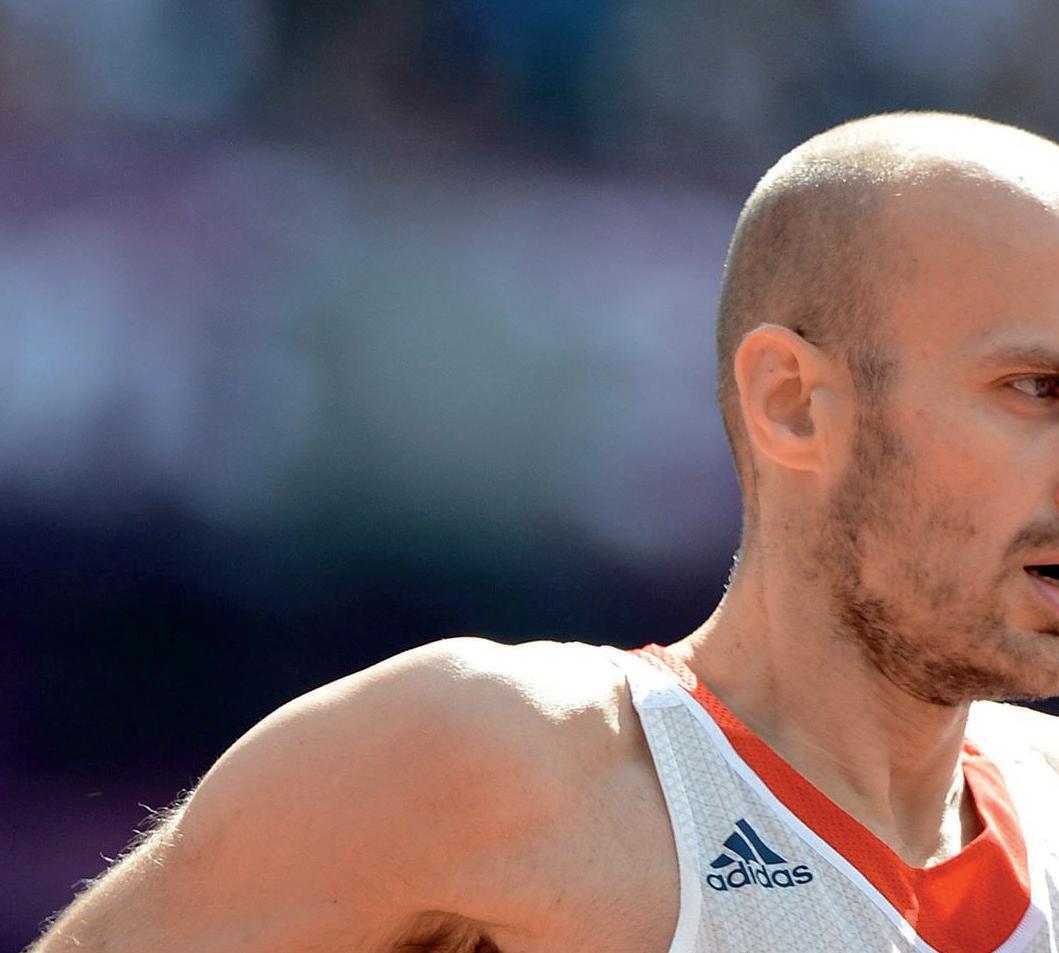
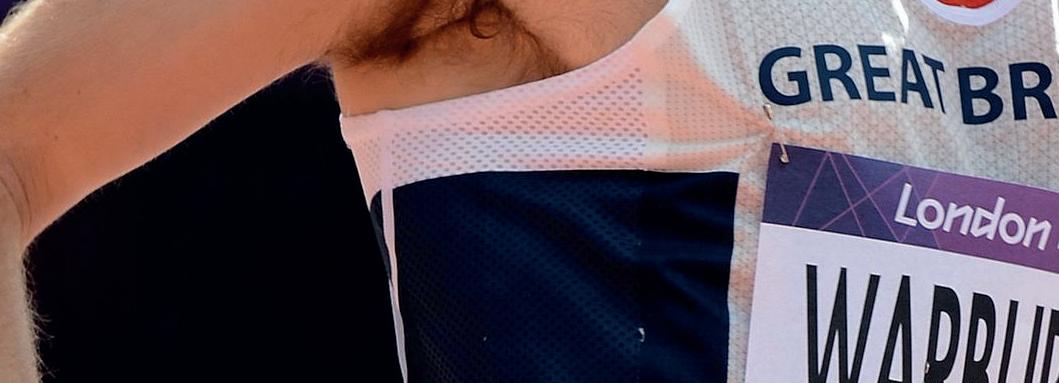

Winter is often a season of discontent in football. If you are a Cardiff City fan though, this winter may continue for some time yet.
Keeping just one clean sheet over the Christmas period, 13 goals were shipped, including 5 on the road to former Championship leaders Bournemouth. From a possible 9 points at home, Cardiff could only manage a draw against Rotherham, in what must have been one of the dourest games in recent memory. is was followed by back-to-back defeats to fellow promotion-chasers Brentford and Watford. Cardiff even threw away a
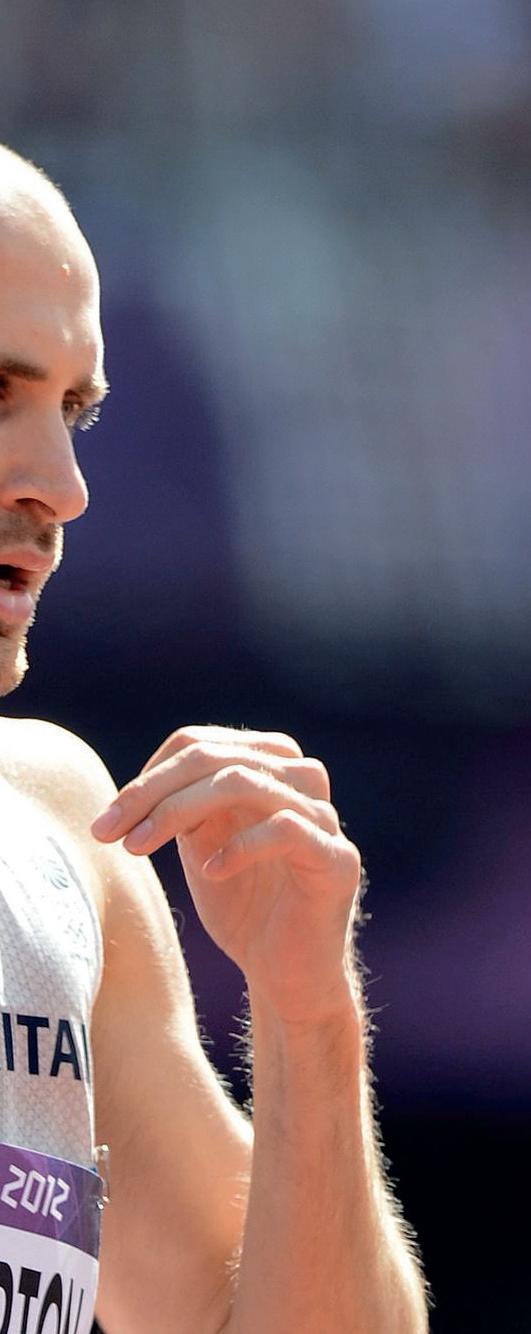
chance at a rare away win by conceding late-on at Charlton for a draw.
Although Cardiff possess players many managers would put at the top of their wish lists, gems like Bruno Manga and Fabio found themselves out in the cold.
e only thing Adam Le Fondre no doubt asked Santa for were new shooting boots, having managed just one goal all month, making it a disappointing two in 25 league games.
Slade went bargain hunting early in the January sales, signing full-back Scott Malone from Millwall and striker Alex Revell from Rotherham, spending a little

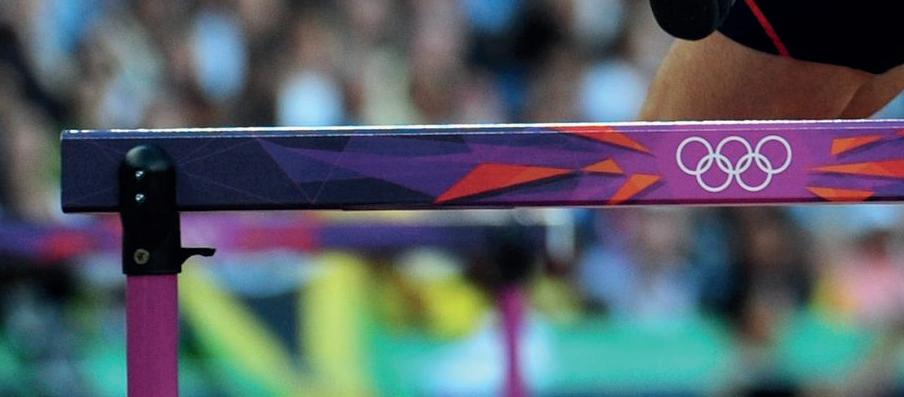
have both openly encouraged other athletes to avoid all supplements and have stated their intentions to do so in future. Considering the harm that has been done to their careers as professional athletes and the heartache they may have suffered personally, other athletes may do well to heed their advice.
e world of sport is often akin to soap opera or pantomime and the line between hero and villain exacts a ruthless distinction that is constantly shifting. Last semester, Gair Rhydd’s Joe Atkinson questioned whether we now hold sportspeople to too high a standard. We are all too ready to chastise them for their mistakes.
In a reality where sportspeople are routinely bought and sold for millions of pounds and athletes are often encouraged to behave more like machines than people, compassion and understanding struggle to find a place in sport and sport media.
Almost every single athlete in Russia was recently lumped together in the category of sporting villain after a German television documentary alleged that ‘99 per cent’ of their national team engaged in doping that was systematically covered up by the Russian Athletics Federation. ese allegations were made without testing
over £200,000 on the pair, while costly Solskjaer signings like Juan Cala and the talented Mats Daehli were either released or sold at losses. A solid performance against a lacklustre Fulham saw Cardiff claim three points at home for the first time since late November, with Malone in particular giving a spirited performance. ough Slade continues to gel a group of individuals into a team, fans were treated to the continued improvement of youngsters Joe Ralls and Kadeem Harris, as well as goalkeeper Simon Moore. Harris in particular has taken his firstteam chances with aplomb, scoring the
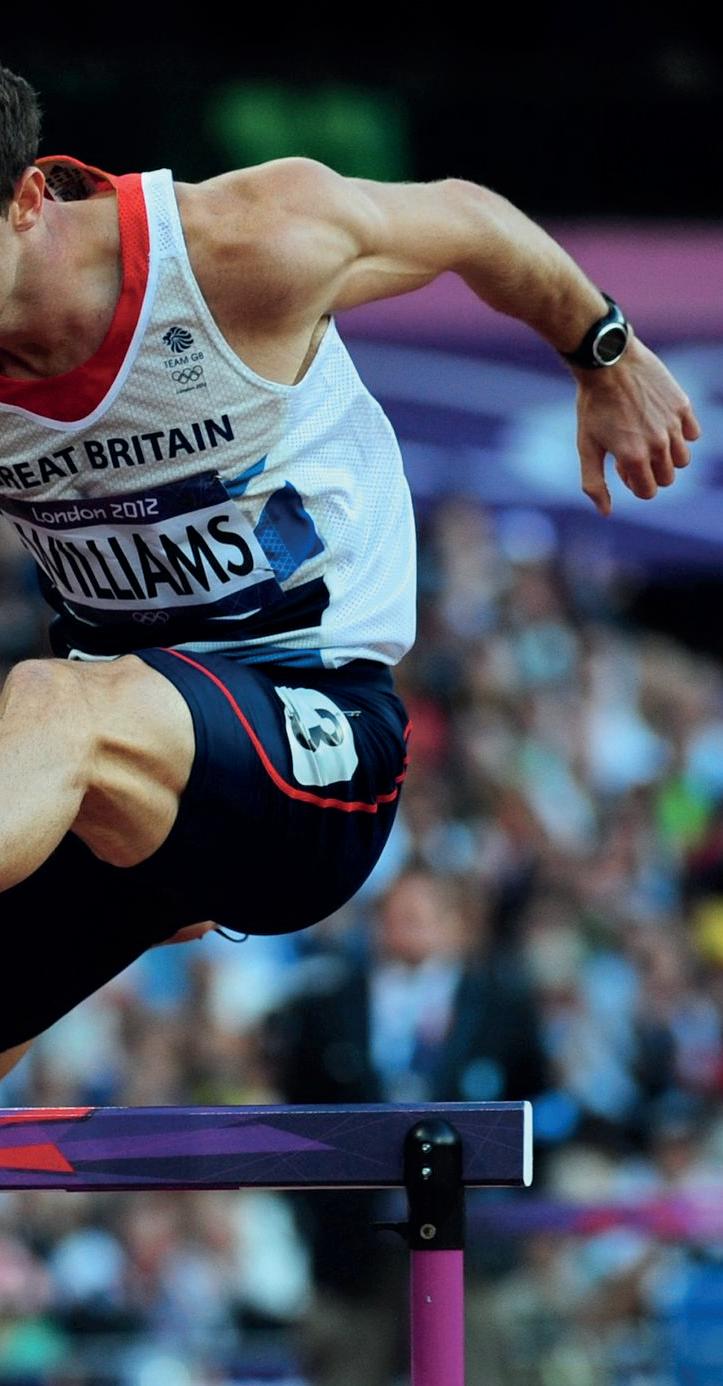
being carried out and without the existence of solid evidence, but the judgement of the small but dedicated athletics community was brought down on Russian athletes generally nevertheless.
If ongoing investigations find these allegations to be true, then these athletes and those who helped to cover up their deception are obviously far less deserving of compassion than Williams and Warburton. However, the principle that the public vilification of sportspeople is too intense, too generalised and is carried out a little too hastily continues to the Russian example. is is a dangerous state of affairs when Germany has recently proposed introducing criminal convictions and possible prison sentences for sportspeople found guilty of doping. e ethics around doping have never been more complex or more heated. With this in mind, Williams and Warburton are victims as much of timing as of circumstance. e ultimate fault in their undoing must of course lie with the athletes themselves. e lesson of their case must surely be that self-policing must play a significant part in working towards resolving the scourge of doping in sport.
second in Cardiff ’s disappointing defeat to Norwich.
Revell also opened his account against the Canaries, but only time will tell if these seemingly short-term fixes prove to be a catalyst to City. Moore, meanwhile, proved himself to be an able replacement for the injured David Marshall.
Although there are some 20 games left, time is fast running out for Slade’s men to mount a play-off challenge, and salvage something from this turbulent season- a task which is quickly becoming less and less of a possibility with each point Cardiff drop.
Dan Heardtweet us @gairrhyddsport
email us sport@gairrhydd.com or visit us online at gairrhydd.com/sport

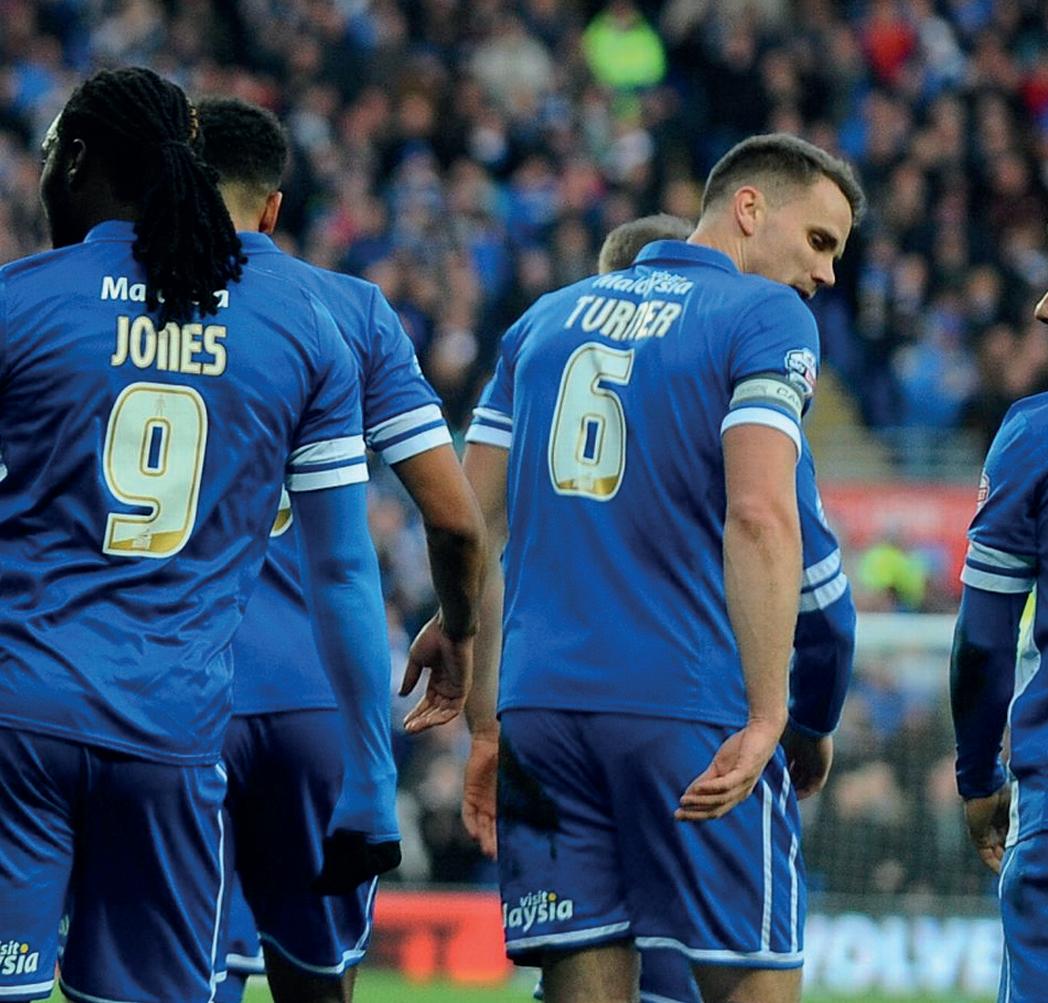

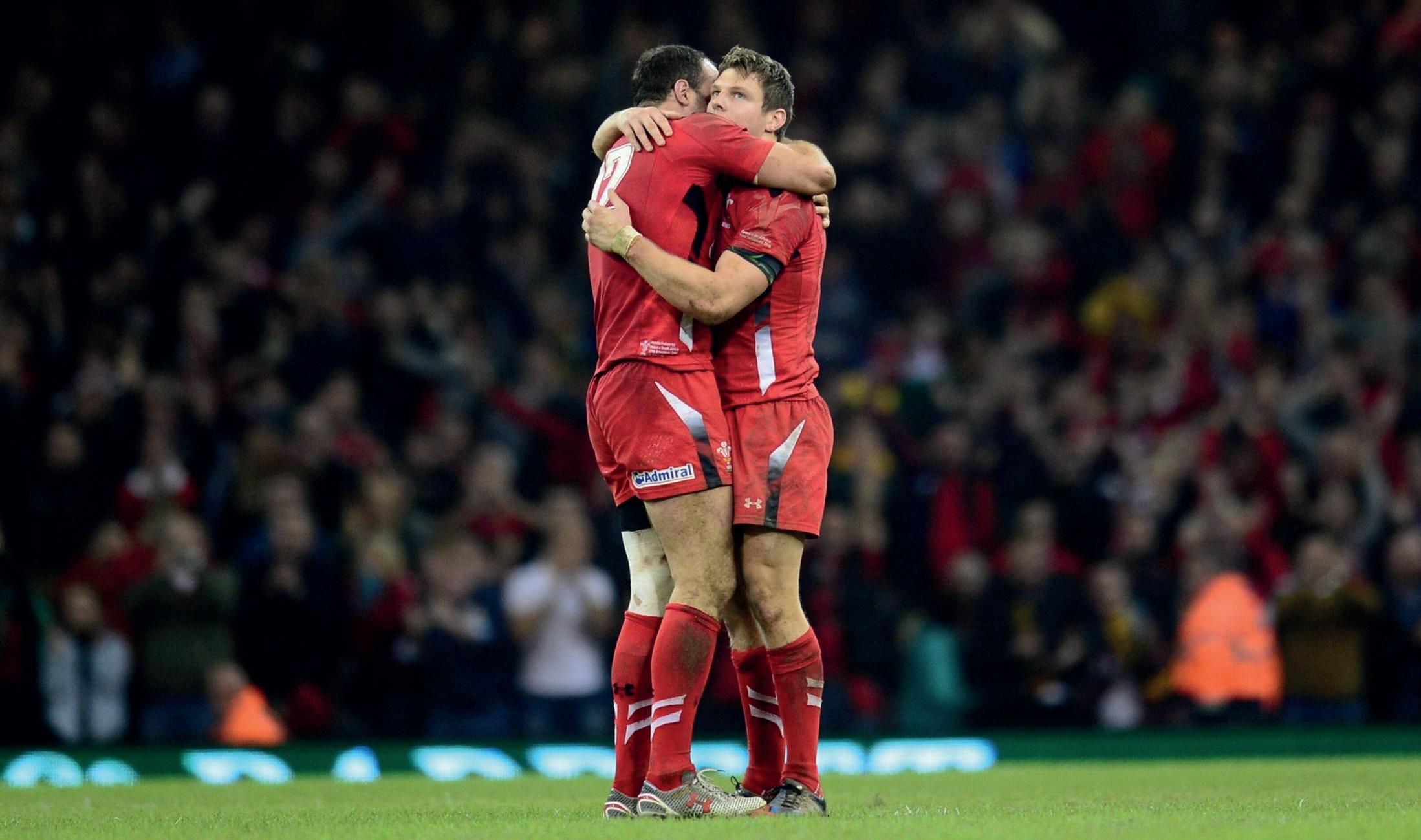
“We’ll always
Cardiff City have reverted to the club’s traditional colours, but was the decision motivated by supporters or finances?
Cardiff City owner Vincent Tan cited the influence of his Buddhist mother as he opted to change the club’s colours back from red to blue after two-and-a-half years of supporter unrest over the Malaysian’s decision to rebrand the club.
e decision, made on January 9th, was welcomed by fans of the club who have continuously campaigned for a
return to the Bluebirds’ traditional colours, and they turned up in numbers for City’s 1-0 victory over Fulham at the Cardiff City Stadium on the team’s return to blue.
Cynics have pointed to the 4,194 turnout at the F.A. Cup win over Colchester earlier in the month as a reason for Tan’s reconsideration –this was the club’s lowest attendance since its relocation from Ninian Park
in 2009.
e game against Fulham certainly vindicated this theory: the attendance increased five-fold to 22,515 as supporters clamoured to be a part of the historic reversal of Tan’s rebrand.
Following his takeover of the club, Tan toyed with the idea of changing the colours, justified by his belief that the change to red would boost brand identity in the Asian market, as well
as his own superstitions. He initially played down plans in May 2012 before going ahead with the rebrand just a month later.
e owner proceeded to step up his investment in the club following the decision, and proceeded to bankroll the club’s 2012-13 promotion to the Premier League and then invested over £50 million in a failed attempt to keep them in the division.

Continued on page 33
